

City & Town


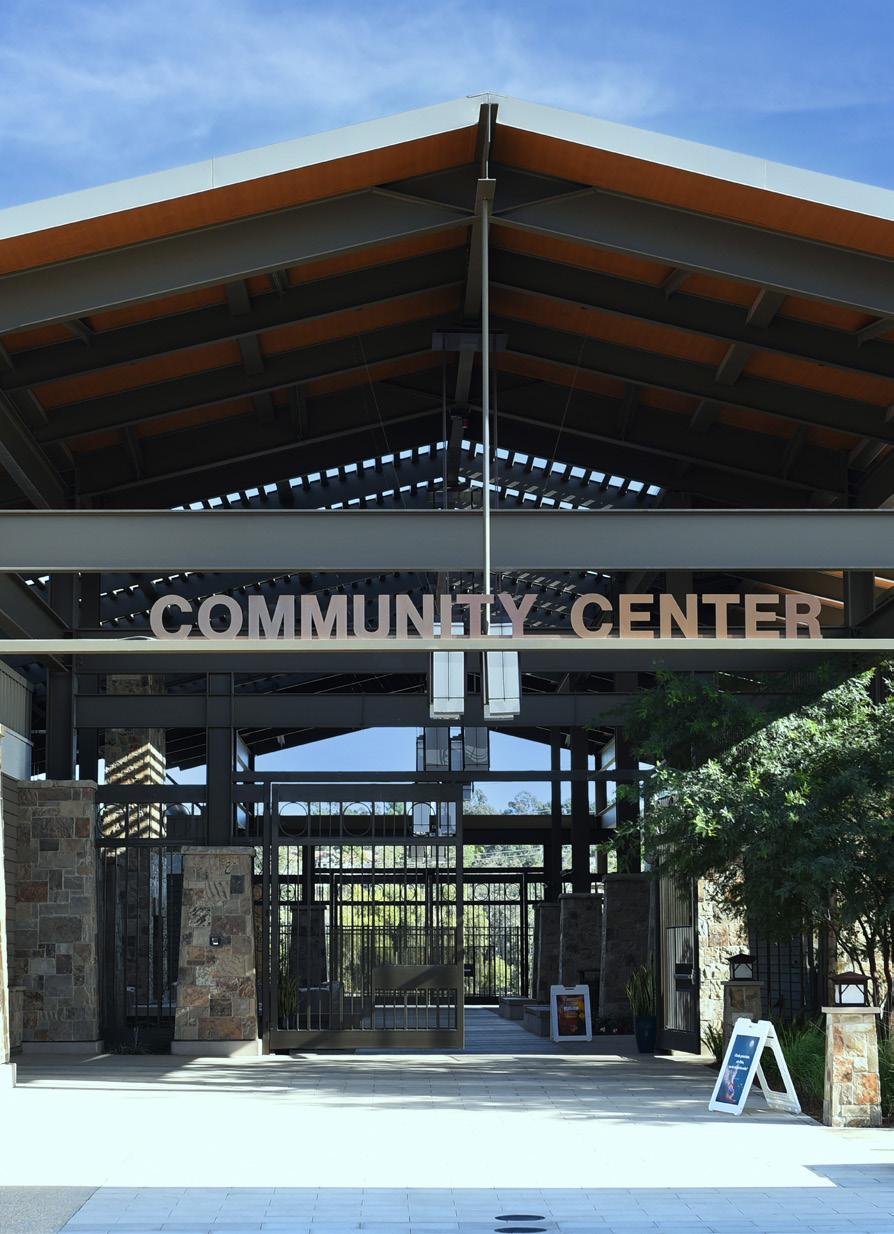
Public finance goes beyond numbers – it’s about investing in the future. Crews & Associates offers funding solutions to power the projects that matter most. From water systems and community centers to ensuring public safety, we help municipalities access the capital they need to make a lasting impact. Ready to build something great? Reach out today!


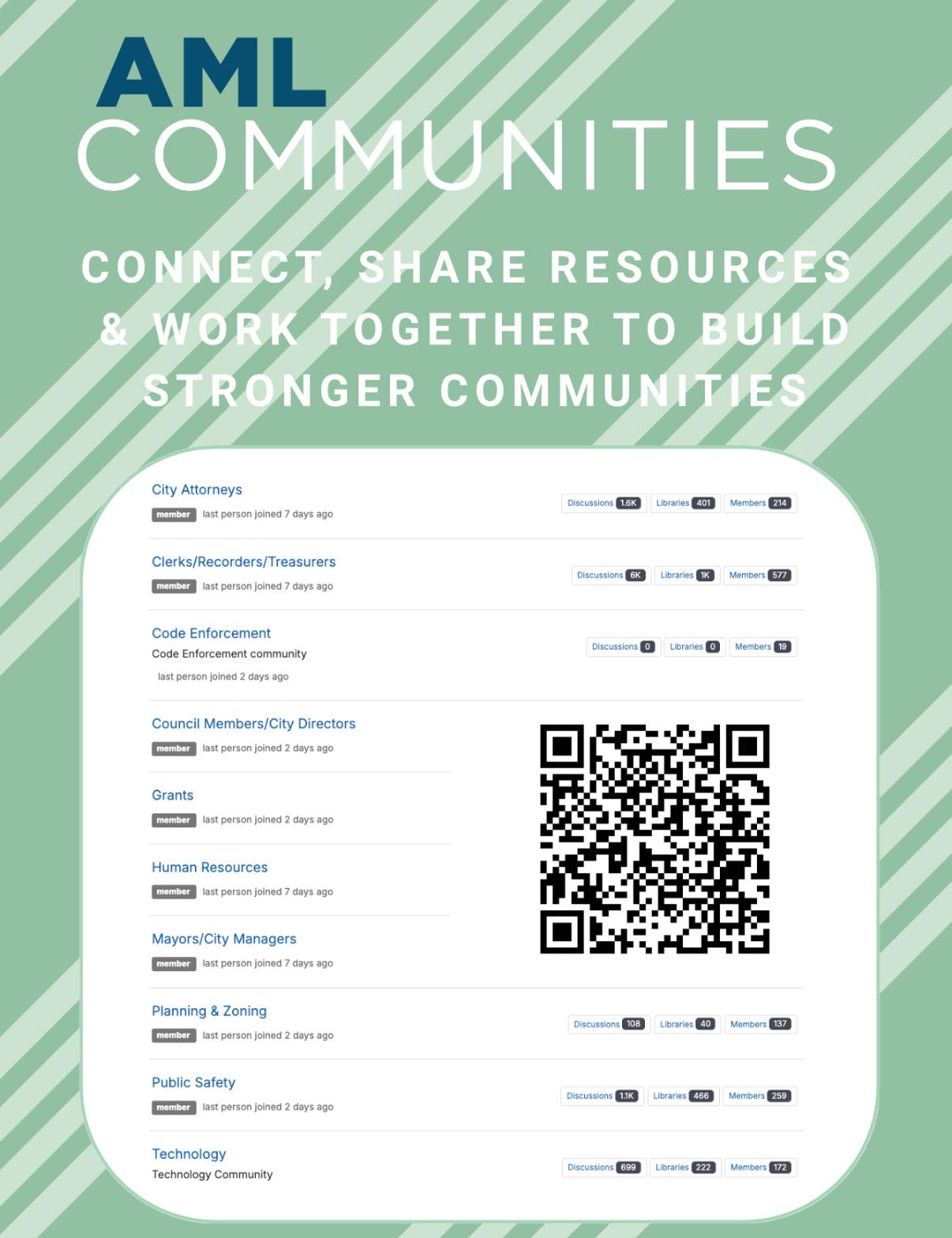
City & Town
Publisher
Mark Hayes
Editor
Andrew Morgan
Designer & Web Editor
Mel Jones
Member Engagement Team
Sheila K. Boyd Chief Operations & Programs Officer
Valerie Shively Director of Member Engagement
Ben Cline Assistant Director of Member Engagement
Mary Deloney Logan Marketing Coordinator
Andrew Morgan Senior Editor & Photographer
Lexie Mosby Multimedia Content Producer & Social Media Manager
Mark R. Potter Communications & Graphics Coordinator
Advertising Mary Deloney Logan
The Member Engagement Department integrates the Events and Communications teams to facilitate conventions, conferences and regional trainings; support League programs,including Municipal Health, Municipal Law, Municipal Workers Comp, Municipal Vehicle & Property, the ACE Hub and other initiatives that connect and strengthen Arkansas' cities and towns.




BLAKE GARY of Gary Law Firm is associate general counsel for the Arkansas Municipal Power Association.

JERRY JACKSON is mayor of the city of Harrison.
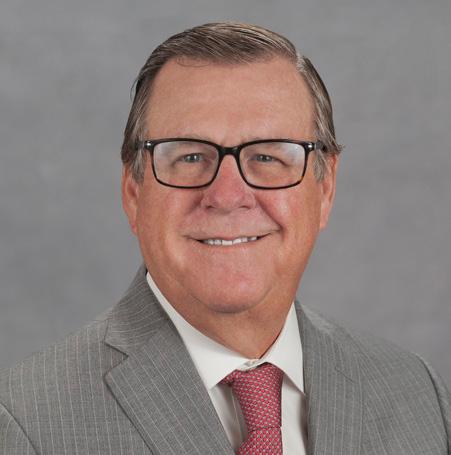
ASHLEY BOOTH NORSE, M.D., is chair of the Department of Emergency Medicine in the University of Arkansas for Medical Sciences (UAMS) College of Medicine as well as clinical service chief for emergency medicine at UAMS Medical Center.
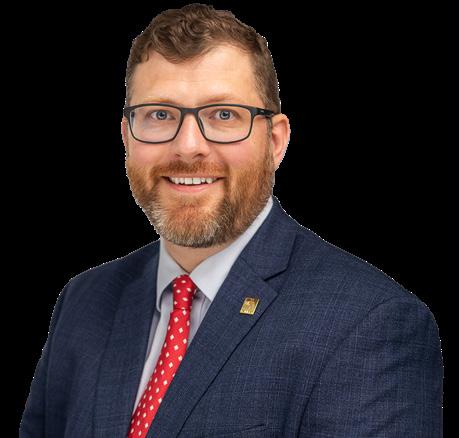
APRIL MCCULLOUGH is a graduate assistant with the University of Central Arkansas Center for Community and Economic Development.
LEAGUE STAFF CONTRIBUTORS
TRACEY L. CLINE-PEW, SPHR, SHRM-SCP, is chief human resources officer for the Arkansas Municipal League. Email Tracey at tpew@arml.org. Read HR Tips on page 66.
CARAN CURRY is senior grants counsel for the Arkansas Municipal League. Email Caran at ccurry@ arml.org. Read about new grant programs on page 23.
KERRIE LAUCK, JD, CMT-P, is education director for the Arkansas Municipal League. Email Kerrie at
CODY TRAYWICK is with McClelland Engineering Consultants.
JIM VON TUNGELN is staff planning consultant and available for consultation as a service of the Arkansas Municipal League. He is a member of the American Institute of Certified Planners. Contact Jim at 501-944-3649 or uplan@swbell.net.
JAMES T. WALDEN, AICP, is urban planning leader with Garver.
klauck@arml.org. Read about the ACE Program on page 18.
DYLAN MCLEOD is a grants and legal assistant for the Arkansas Municipal League. Email Dylan at dmcleod@arml.org. Read about new grant programs on page 23.
JOHN WILKERSON is general counsel and legislative director for the Arkansas Municipal League. Email John at jwilkerson@arml.org. Read the legislative wrap-up on page 25.

Engineers, architects and planners designing a better Arkansas since 1978 1510 S. Broadway, Little Rock, AR 72202 • Phone 501-522-0211 Website: www.etcengineersinc.com • Email: jeremyl@etcengineersinc.com

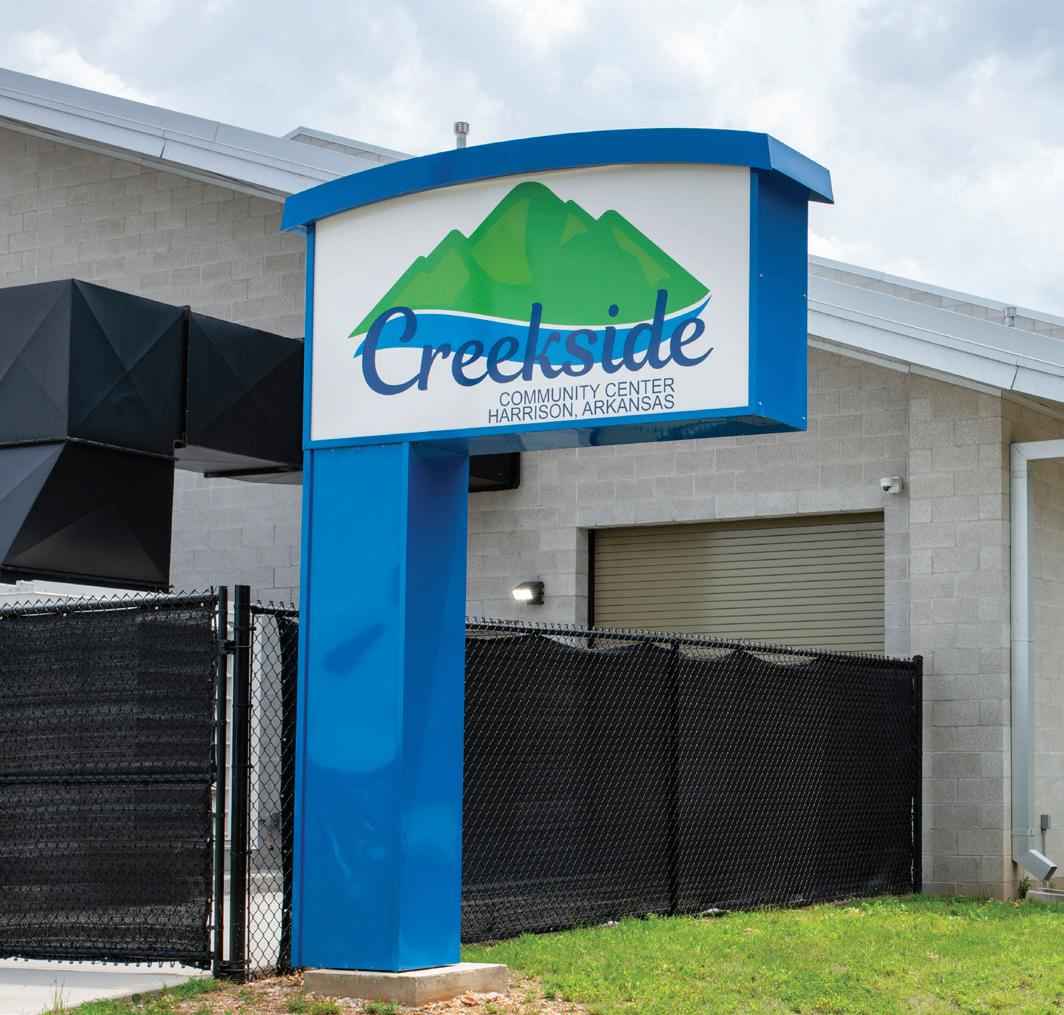

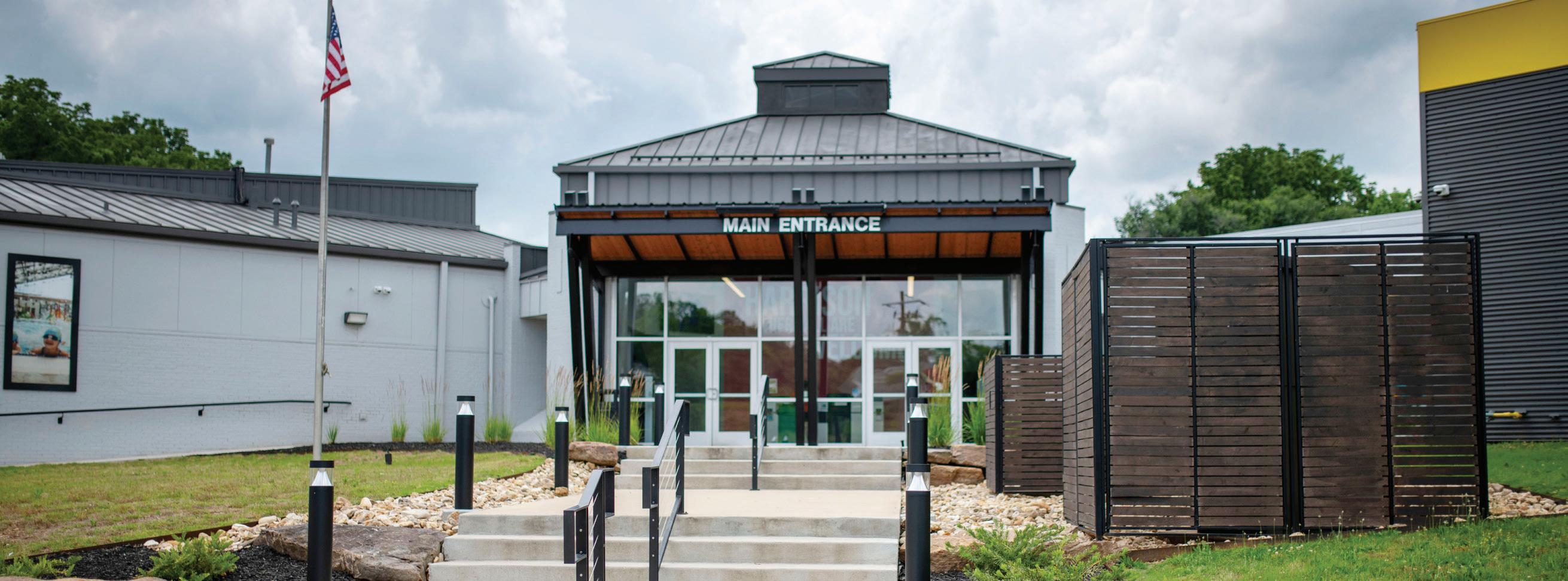



City & Town
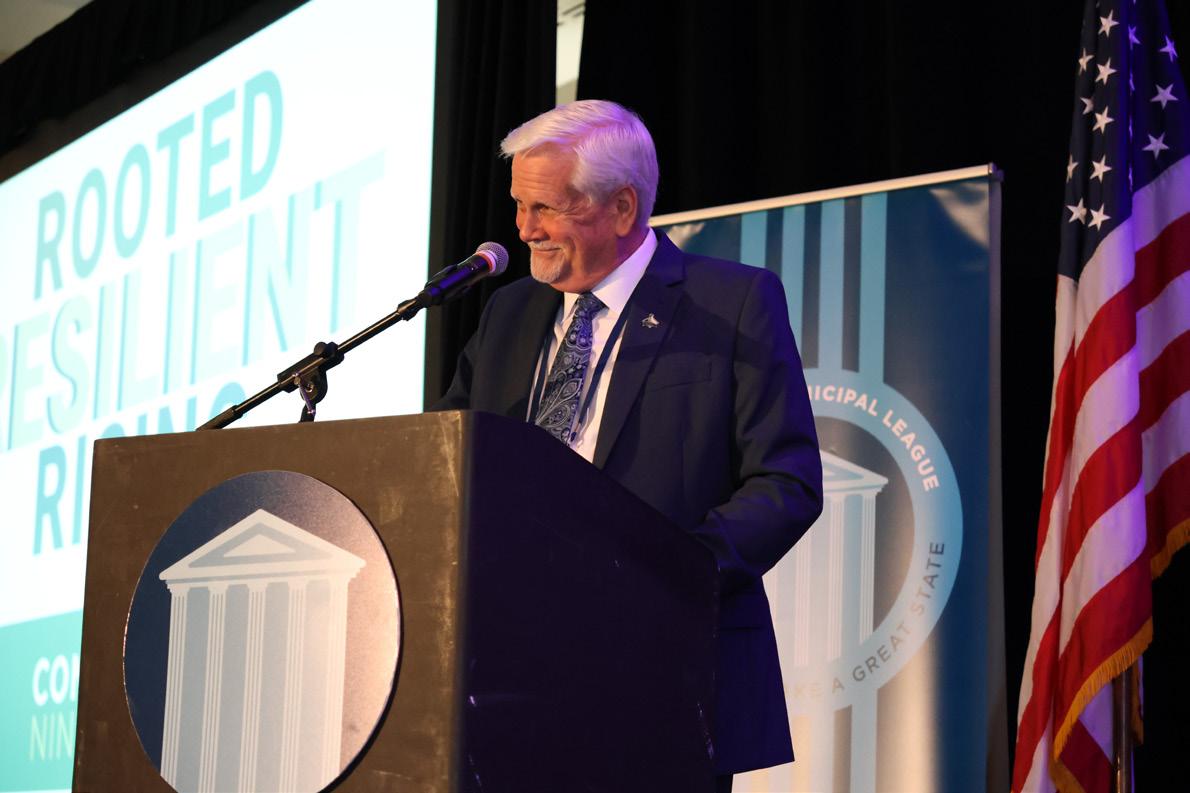

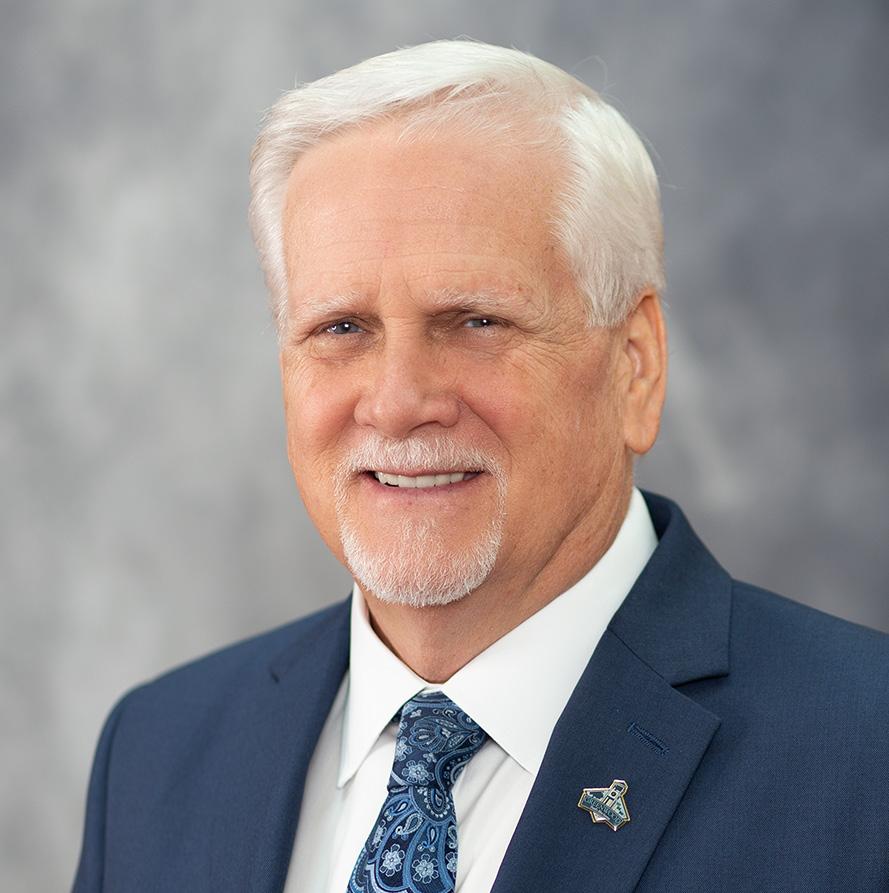
Greetings from Greenwood, Arkansas.
I am still in disbelief that at the League’s 91st Annual Convention I was elected as your president for 2025-2026. I am completely humbled and honored to represent all of you in this role. Although, as you are all aware, one of my traits is indeed “bad dad jokes,” I will do my best to represent the League in a professional manner. (At least most of the time.)
What a Convention! In all my years of attendance, I felt like we had some of the most heartfelt, encouraging and informative sessions ever. The entire League staff knocked it out of the park once again. I’ve gained so much knowledge and enthusiasm during both the summer and winter meetings. Let’s keep that momentum going all year long.
My goal for this year is to be available to you and your communities day or night. The phrase you may hear from me a lot this year will be “Let’s stay connected.” It’s a simple thing, but I believe the more we all stay connected the better off we will be. As promised, I’m committed to praying for each and every town in our great state. So please, if you have a special need, personally or for your community, do not hesitate to reach out.
I would like to highlight as many towns’ accomplishments in my quarterly letter as possible, so we may all celebrate with you! I am inspired each day by the commitment and dedication you all display for the citizens in your communities. Another goal of mine is to visit as many of your towns in person as possible. Kind of a “boots on the ground” approach. We can share a cup of coffee at the office or your town’s favorite lunch spot. I promise not to stay too long!
Our slogan in Greenwood is “Feels like home.” I know you all have an incredible love for your respective towns and it shows. Let’s make it a year of checking in on each other often and getting to know each other better. I firmly believe during the unsettling times in our world, we should be kind to ourselves and others as much as possible.
Please know I take this position of League president very seriously, and I hope I can live up to the honor it is to serve in such a role. I am just a phone call, text or email away if I can ever be of service: 479-806-8622 or Dkinslow@gwark.com.
With kind regards,

Doug Kinslow Mayor, Greenwood President, Arkansas Municipal League
“Be so happy that, when other people look at you, they become happy too.”—Anonymous
Greenwood Mayor Doug Kinslow President
Gassville Mayor Jeff Braim Vice President District 1
Pea Ridge Mayor Nathan See Vice President District 3
EXECUTIVE COMMITTEE: TBA
Officers & Advisory Council Members
Beebe Clerk/Treasurer Carol Westergren First Vice President
Heber Springs Mayor Kasey Griffin Vice President District 2
El Dorado Mayor Paul Choate Vice President District 4
Mark R. Hayes: Executive Director
PAST PRESIDENTS ADVISORY COUNCIL: Mayor Rick Elumbaugh, Batesville; Mayor Tim McKinney, Berryville; Mayor Jonas Anderson, Cave City; Mayor Parnell Vann, Magnolia; Mayor Gary Baxter, Mulberry; Mayor Doug Sprouse, Springdale; Mayor Harry Brown, Stephens; Mayor Gregg Reep, Warren
CITIES OF THE LARGE FIRST CLASS: TBA
CITIES OF THE FIRST CLASS: TBA
INCORPORATED TOWNS & CITIES OF THE SECOND CLASS: TBA
PUBLIC SAFETY: TBA
ECONOMIC DEVELOPMENT: TBA
MUNICIPAL HEALTH BOARD OF TRUSTEES: Human Resources Director Matthew Hood, Cabot, District 1; Finance Director Joy Black, Bryant, District 2; Mayor Fred Teague, Russellville, District 3; Vacant, District 4; Mayor Bill Edwards, Centerton, At-Large Member
MUNICIPAL WORKERS COMP BOARD OF TRUSTEES: Human Resources Director Charlette Nelson, Jacksonville, District 1; Human Resources Director Lisa Mabry-Williams, Conway, District 2, Group Manager; Clerk/Treasurer Sharla Derry, Greenwood, District 3; City Clerk Harmony Morrissey, Hot Springs, District 4; Mayor Hillrey Adams, Mountain Home, At-Large Member.

Looking through a new lens
As always, it is strongly recommended that the reader read the column first and then the footnotes.
In high school I was a yearbook staff photographer.1 Or as it was referred to at Jonesboro High School, the “annual” staff. My family moved to Jonesboro when I was 16 in August of 1976. Yep, the bicentennial birthday of our incredible country.2 I started my junior year within days of having landed at the Memphis airport. My brother and I flew from Milwaukee to Chicago O’Hare International Airport3, wait for it…ALONE. For those of within a decade or so of my age you will recall that kids routinely flew alone with little more than a hug from Mom at the gate and instructions like “just follow the signs.” Today, there are guides, badges and multiple security measures. Not so much for the Hayes boys. Incidentally, O’Hare was the busiest airport in the world at that time. So, Mother Hayes put me and Pete on a prop plane for the 45-minute flight from Milwaukee to Chicago and, in addition to the “follow the signs” advice, says: “Your Dad will pick you up at the front door of the Memphis airport. I can’t remember what kind of car his company car is but it’s blue and a station wagon.” With those precise instructions, Pete and I traipsed through the maze of O’Hare’s concourses and found our flight to Memphis. A 14-year-old and a 16-year-old wandering around one of the biggest cities and airports in the world. What could go wrong?!
My recollection is we flew on Eastern Airlines4 for the first leg of our journey. What I definitely remember was the temperature upon departure: 68 degrees. I also recall walking out to the plane and climbing an aluminum staircase to get on board. I’m pretty sure there was a jetway of some sort in O’Hare and we flew on a jet for the last leg of our trek. Again, I recall the temperature clearly when we walked out the “front door” in Memphis. 1,000 degrees, but at least it was humid. Ah, the good old days. As anticipated, the Local Controller—LC, for those uninitiated and new readers, is my lovely bride—has chimed in with her cheery voice. “Nobody wants to know about your flights to the Mid-South in 1976 nor what airline you may have flown. Eastern?! Really?! You may as well put on a tee shirt that says I’m old!” Best to move on.
Where was I…oh, yeah, photography in high school. New lenses so to speak. When you’re a new student in high school, with a charming Wisconsin5 accent,6 all you want to do is blend in. Let’s be clear. When I say blend in, I mean disappear. No real need to talk to anyone nor to bring attention to yourself. Save for an interaction at the front door of the school with the principal, my tactic lasted about 90 minutes, but I’ll save that story for a different day. By the time I reached my annual staff class just before lunch there was a rumor floating around that a super skinny new kid who 1 At the time my dad had an Olympus 35mm SLR OM-1 and allowed me to tote it to school to assist with my career clicking goals. Within a week, the camera was stolen from the annual staff classroom. With an assist from the insurance company the old man was able to upgrade to an OM-2 and a couple of new lenses. He never said thank you but secretly I think he was kinda pleased. On cue, LC chimes in: “Nobody is happy when their property is stolen. A thank you?! Seriously?! Move on big boy!” Score double points for LC on that one.
2 The bicentennial quarter was a big deal in 1976. All of us cool kids wanted to get our hands on as many of them as we could. For what purpose you ask…I dunno. It was just a cool thing. For the most part those coins are worth about 25 cents today. However, there are some worth quite a bit more. Those with a particular mint mark, a rare error or some other unique characteristic may fetch a handsome sum. armuni.org/4lIpdfB
3 O’Hare was the world’s busiest airport from 1968 to 1998. armuni.org/40K4sYT
4 I feel certain there are some of you good readers who have no idea there was ever an Eastern Airlines. Eastern began in 1926 and ceased operations in 1991. Technically it was resurrected in 2014 and again in 2018 and 2022. Currently there are 18 aircraft in the fleet, although for the most part they haul cargo not people. armuni.org/4kvvgmU
5 Wisconsin is the 20th largest state by population and the 23rd by area. It has 72 counties and shares quite a few of the same traits as Arkansas. Fishing, hunting and water activities are in abundance in Wisconsin. It also has a substantial agricultural economy. Although known as America’s Dairyland for its milk and cheese production, there are many other crops grown, including but not limited to potatoes, green peas (LC does NOT like them), snap beans and cranberries. armuni.org/45VpZkS
6 Think nasal and somewhat caustic.
talked funny was in the hallways. That was confirmed when the teacher asked me to introduce myself as the “new” photographer from out of state. She was even kind enough to ask me to stand so that everyone could put me in their crosshairs. From the wretched accent to the awkward and clumsy untangling from my desk, it was a sight and sound to behold. After some teasing and such, class proceeded. The good news is that the guy in the back of the class (the other photographer) who did an admirable and funny impression of my accent asked me to join him and his girlfriend for lunch. That man remains one of my best friends today. We were seldom apart during our junior and senior years, and we took thousands of photographs. I was seeing the world through new lenses for those 24 months. A perspective-setting experience for sure.
Just recently I had another perspective-setting experience. Talk about seeing through a new lens. Hang out with a 7-year-old for a few days and you’ll have several dear diary moments! We had family join us at the lake. Specifically, LC’s brother7 and his LC.8 The best part is they brought our nephew Ryder. LC has just chimed in: “Of course they brought him! He’s their child! What were they gonna do leave him in Pittsburgh9 with a big bowl of cereal?!” Score one for me! She’s grumbling whilst walking out of the room. Score two for me! Let me tell ya this kid is pretty special. He’s polite. He’s neat and tidy. He likes to dance and loves music. He LOVES dogs. He’s inquisitive and intelligent. I know, I’m biased being his uncle and all, but he’s a pretty cool kid. I don’t have any grandkids so spoiling him over the weekend was FUN!
What Ryder reminded me of is that life has some simple and purely joyful moments. Here are a few that struck me:
• Run to the other end of the hallway cuz the dog is waiting for you!
• Heck, run to whatever fun thing awaits even if it’s just to jump on the couch!
• Play your music loud and sing along!
• Get your cousin (our daughter and a Local Controller in training) to watch goofy movies with you!
• And then get her to play monster trucks on the kitchen floor. Closest to the table wins!
• Hug LC to the point that she almost melted!
• Shed some tears upon departure because he loved our house, the lake, tubing, the dogs, digging for crystals and quartz and generally hanging out with the coolest aunt and uncle on the planet!
That boy does everything full throttle. He hits the ground running early in the morning and then squeezes as much into a day as possible. There is virtually no down time save for a couple of crashes and burns due to lack of food and need for rest. Heck, that’s how most of my days go so it didn’t bother me! He wanted to know everything about Lake Hamilton and Hot Springs. He got to visit downtown Spa City and taste various spring waters. He loves chicken nuggets and wants to share. We really had a great time. He reminded me to slow down, to ask questions, to listen and not judge, and to generally soak up what’s good in this world (that we likely take for granted). Lessons from a 7-year-old. Right on time LC says get to the point! The point. Yes, let’s do that. The next time you are questioning your sanity for running for or being appointed to your municipal position, take a 7-year-old on a ride around the city to see the sights. Let me rephrase that. Don’t “take” a 7-year-old. That’s kidnapping and you’ll go to jail. Find the parents or guardians of a 7-year-old and ask them to join you on a city tour. Bonus: no criminal charges! Do a “here’s what your city does” tour. Give it some thought. Ask yourself, what does your city or town do that kids would like to know about? It’s a bigger list than you might initially realize. I’m sure most of you have heard the idiom:10 “out of the mouth of babes.” Be prepared for the blunt honesty of a 7-year-old. It can be revealing and funny. The questions they will ask are both simple and profound. How much does that cost? Suddenly you’re not only thinking about the actual cost but your budget as well. Why is that sign there? It’s clearly communicating something, but it’s likely part of a much larger system of signs. Take street signs for instance. It’ll tell you your home address, but it’s one of many such signs that are designed to make traffic flow efficiently. Here are a few ideas about a tour:
• A fire station. Kids love to look at and climb all over the trucks and other equipment.
• A police station. Let them turn on a siren and listen to a 911 dispatcher. Well, you might want to screen the 911 call
7 My brother-in-law is a funny, funny guy! We laugh a lot when he’s around. He’s always been a performer of sorts. He made a good living in LA. Not Lower Arkansas. The other one. The California one. He was an actor for many years. He’s now a sales manager for an international company. As he’s pointed out, the word “no” from a potential customer doesn’t really register with him. He says that after thousands of auditions ended with “no” he became immune to it. So, he goes back the potential customer repeatedly until he wins them over.
8 My sister-in-law is terrific. Funny in her own right, particularly when she’s doing accents from other countries. She’ll say it’s French but it’ll be Russian. She gets it right eventually but it’s funny watching her get there! She’s an incredible mom, cook, entrepreneur and a creative whiz. She’s compassionate but can be tough as nails when the need arises. Like my LC, don’t get between them and their cubs! 9 Pittsburgh is known as the “Steel City.” That comes from its rich history in the steel industry. U.S. Steel was formed there in 1901, and the rest is history as they say. armuni.org/4eDX5rE
10 I love idioms. Using a set of words that in and of themselves do not mean what they have collectively come to mean is a wonderful thing. Some of my favorites: break a leg, hit the sack, don’t crawfish me, the ball is in your court, under the weather, it’s the next best thing since sliced bread and go down in flames. When you look at the history of each of those it’s fascinating how they came to be. LC is back. “Don’t. Don’t go through the history of those. I’m begging you on behalf of your handful of readers to stop this madness before it starts.” Few readers?! Madness?! Okay, not sure about the overall score but that took it over the top. Once again, LC for the win!
first. Tender ears and all.
• Water department. Explain that bathtime is a direct result of the work done in that building.
• Splash pads11 and parks. It’s summertime in Arkansas. Is there anything better to cool off with than a splash pad?! I know some of you don’t have one, but you likely have a park of some sort. Ask the kiddo what else they’d like to have in the park. Of course, you might get answers like rollercoasters and dinosaurs, but you’ll also get some pretty good feedback.
Looking through new lenses can be a little intimidating, but it’s sure worth it in the end. Remember this, city servants: You lead because you want a better community. Your work may not grab national headlines, but it does make the life of a 7-year-old better every single minute of every single day. Take the kid12 tour challenge. I bet everyone learns something by seeing through a new lens.
Until next time, peace.

Mark R. Hayes
Executive Director
Arkansas Municipal League
11
Splash pads emerged in the late 20th century. They’ve come a long way! Today there are multiple safety measures that must be in place along with newer and bigger features. Regardless, they are just plain FUN!
12 Again, no kidnapping. That’s bad.

City Summit 2025 is where local leaders tap into industry trends and gain tools to transform their community.

LEARN PROVEN BEST PRACTICES FROM EXPERTS STRENGTHEN YOUR LEADERSHIP SKILLS CONNECT WITH PEERS


Municipal Notes

Standing up for those who step up
BY JERRY JACKSON, MAYOR OF HARRISON
In small towns across America—places like Harrison, Arkansas—we depend on neighbors willing to serve. These are the people who volunteer their time on city councils, school boards, planning commissions, and yes, as mayors. They don't do it for fame or fortune. They do it out of commitment to their communities. But lately, a troubling trend has emerged—one that’s threatening the very heart of small-town leadership.
I’m talking about the steady drumbeat of online attacks, misinformation and personal smears aimed squarely at those who serve. It’s happening in Harrison, and it’s happening in towns just like ours across the country.
Let me be clear: Criticism comes with public service. That’s fair, and it’s part of the job. But what’s happening now isn’t fair. What we’re seeing is a small but loud group of individuals using social media as a weapon to attack not just decisions, but the character, families and reputations of public servants. And they do so under the broad misinterpretation of “free speech,” as though the Constitution is a permission slip to lie, slander or vilify without consequence.
It’s not.
The First Amendment protects speech from government censorship—it doesn’t protect falsehoods from being challenged or outrageous attacks from being called out for what they are: destructive, toxic and wrong.
Here’s the reality: If we allow these voices—often unaccountable, often anonymous and often completely misinformed—to dominate the conversation, good people
will stop stepping forward. And if the decent, balanced, thoughtful members of our community walk away, guess who’s left? The very people doing the attacking. That’s a recipe for chaos.
I know firsthand the toll it takes. As mayor, I’ve seen the baseless accusations, the twisted half-truths and the keyboard cowards who tear down what others work hard to build. And I’ve been expected—like all public servants to take it on the chin, to be the “bigger person,” and to respond with calm professionalism.
But here’s what I’ve come to believe: Silence is not professionalism. It’s surrender.
We must call out this behavior for what it is. It is not civic engagement. It is not patriotism. It is not healthy dissent. It is harassment. It is slander. And it is poisoning the well of small-town leadership.
If we want better leaders, we need to start being better to the leaders we have. That begins with honest conversations, civil disagreement and mutual respect. It means holding people accountable in office, online and in our neighborhoods for the tone and truth of their words.
Harrison, like many small towns, has so much potential. But we will never reach it if we allow a few loud, destructive voices to drown out the many quiet, hardworking ones. Let’s not wait until it’s too late—until there’s no one left willing to serve.
Let’s take our towns back. Not just in policy or in progress, but in decency.
Municipal Notes
Volunteer Community of the Year Award nominations open August 22
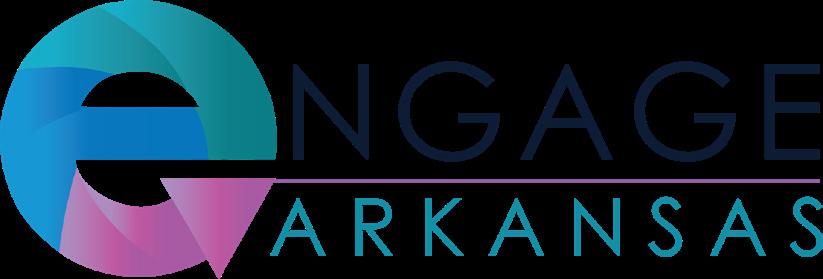
Nominations open August 22 for the 2025 Volunteer Community of the Year Awards, Engage Arkansas has announced. The deadline to nominate cities and towns for the award is October 22. This year marks the 43rd anniversary of the annual award that recognizes Arkansas municipalities—rather than individual volunteers or nonprofits—that seek to address their community’s greatest needs through the engagement of citizens.
Co-sponsored by the Governor's Advisory Commission on National Service and Volunteerism and the Arkansas Municipal League, the Arkansas Volunteer Community of the Year Awards recipients are selected by a panel of judges composed of distinguished citizens from across the state. The winning communities will be notified in December and celebrated at the League’s Winter Conference in January 2026. Winners receive two street signs, donated by the Arkansas Highway Commission, that designate them as a Volunteer Community of the Year for the specified year. And new for 2025, Engage Arkansas is offering a civic engagement funding investment for the winners of the Best City and Best Town to contribute to the municipality’s most-needed volunteer projects.
Visit engagearkansas.org to learn about the award criteria and to nominate a community.
Upcoming Events
Aug. 20-22: Annual Planning Meeting, Greenwood
Sept. 12: Regional Meeting, Hope Center, Russellville, 9 a.m.-1 p.m.
Oct. 10: Regional Meeting, Grand Prairie Center, Stuttgart, 9 a.m.-1 p.m.
Time to levy property taxes
City and town councils may levy general property taxes of up to five mills on the dollar (Ark. Const. art. 12 § 4; A.C.A. §§ 26-25-102 and 103). In order to implement this millage, the governing body of the city or town must certify the rate of taxation levied to the county clerk. (A.C.A. § 26-73-202). This must be done prior to the time fixed by law for the Quorum Court to levy county taxes. Id. A.C.A. § 14-14-904(b) establishes the November or December meeting of the Quorum Court as the time to levy those taxes. Accordingly, municipal officials should check with the Quorum Court to determine whether its levying meeting will be in November or December. It is important also to bear in mind that the city council must levy and certify its taxes annually, as failure to levy by the required date will result in a millage of zero for the following year (See Ark. Ops. Atty. Gen. No. 91-044 and 85-5).
The bottom line: If your city or town wishes to collect property taxes for the following year, make sure that council approval and certification to the county clerk occur prior to the meeting of the Quorum Court at which county taxes are levied.
Monthly sales tax receipts
City & Town magazine is now printed quarterly, but you'll never have to miss a month of your latest local sales tax receipts. The latest reports for cities, towns and counties from the Arkansas Department of Finance and Administration and each month's turnback estimates are available on the League's website. Go to armuni.org/ Publications and click on "Local Option Sales and Use Tax in Arkansas" to access the information you need, when you need it.
Nov. 14: Regional Meeting, A-State, Jonesboro, 9 a.m.-1 p.m.
Nov. 20-22: NLC City Summit, Salt Lake City
FOR MORE INFORMATION ABOUT THESE AND OTHER UPCOMING EVENTS, VISIT ARMUNI.ORG/EVENTS.
Trendsetter City Awards 2025 accepting applications
Presented by Arkansas Business Publishing Group and Crews & Associates in partnership with the Arkansas Municipal League, the Arkansas State Chamber of Commerce, Associated Industries of Arkansas, Crafton Tull and Emery Sapp & Sons, the Trendsetter City program is designed to honor cities and towns that are leaders in innovative programs and initiatives for improvement and growth. Award recipients are recognized at the League’s annual Winter Conference.
Trendsetter City Award winners will be recognized in the following categories:
• Diversity/Equity/Inclusion
• Education and Workforce Development
• Infrastructure and Water
• Public Works/Environmental and Green Management
• Technology and Security
• Tourism Development/Creative Culture
The competition is divided into three population categories to allow cities to compete with others of comparable size: cities less than 5,000 population, 5,000-20,000 population and more than 20,000.
Each city can submit one award application in each award category. Entries must describe programs or projects brought to conclusion or showing significant results between July 2021 and July 2025. An official entry application must be submitted for each project. Entry forms must be received in the Arkansas Business office by 5 p.m. August 29 or be postmarked on or before that date. Entry forms should be submitted to: Bonnie Jacoby, Arkansas Business Publishing Group, 114 Scott Street, Little Rock, AR 72201; or emailed to bonnie@abpg.com. Winners will be notified in September 2025. For more information and an application, please visit arkansasbusiness.com/ trendsetter.
Time to plan for the Great Arkansas Cleanup
The Keep Arkansas Beautiful Commission (KAB) invites Arkansans to come together for the 2025 Great Arkansas Cleanup, scheduled to run from September 6 to October 31. The Great Arkansas Cleanup is one of two seasonal events promoted by KAB and offers volunteers the opportunity to organize events to beautify their communities.
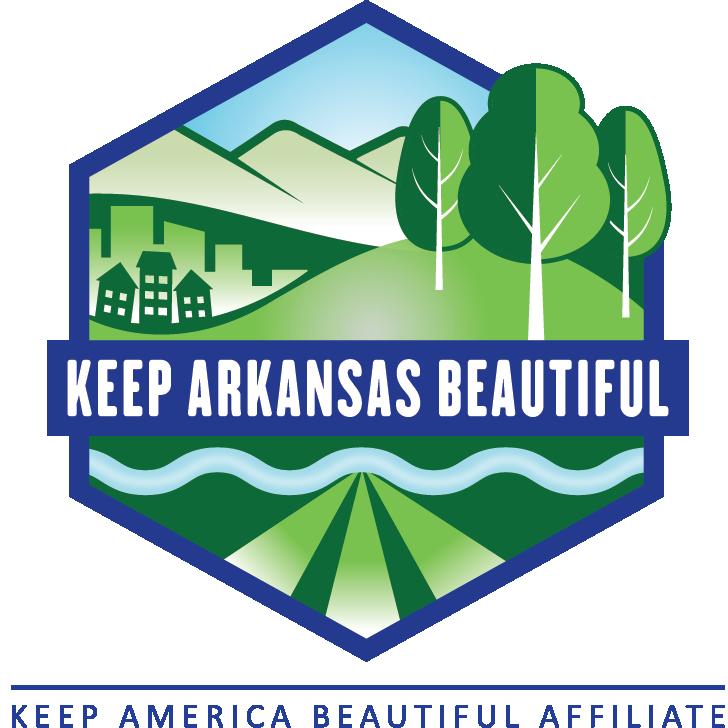
Once a community signs up at keeparkansasbeautiful.com to host a Great Arkansas Cleanup, KAB helps organize and publicize the effort and provides volunteers with trash bags, gloves, safety vests and T-shirts while supplies last. Promotional materials such as customizable media releases, banners and volunteer stickers, as well as how-to videos and safety tips, are also available.
The Great Arkansas Cleanup began in 1969 as the Greers Ferry Lake and Little Red River Cleanup. In 1985, U.S. Sen. Dale Bumpers guided legislation requiring an annual pickup event during the weekend after Labor Day on all federal lands. This law, the Carl Garner Federal Lands Cleanup Act, honors the founder of the event.
Municipal Notes
Arkansas Civic Education Program expands with ACE SafeTrack
BY KERRIE LAUCK, LEAGUE STAFF
This spring, the League expanded its Arkansas Civic Education Program with the addition of ACE SafeTrack Certification, an innovative, on-demand workplace safety training program designed to provide essential safety education to Arkansas’ frontline workers.
Housed within the ACE Hub, the program continues the League’s commitment to enhancing professional development and safety across its membership. ACE SafeTrack ensures that essential safety training is always accessible, empowering municipal employees to learn anytime, anywhere. League Loss Control Liaison Allen Green is thrilled that, in addition to the in-person training he provides, our members can now access on-demand workplace safety training.
ACE SafeTrack Program Highlights
Convenient Access: Training is available exclusively through the ACE Hub and can be accessed from any location at any time.

Four Levels of Certification
Participants can progress through 4 certification levels:
Level 1: CIVILPEDIA 25 Credits
Level 2: ACE CERTIFIED 75 Credits (additional 50 credits)
Level 3: ACE ADVANCED 150 Credits (additional 75 credits)
Level 4: ACE MASTER 250 Credits (additional 100 credits)
Each course completed earns one credit, providing a clear pathway for participants to achieve subsequent levels of certification.
Register for ACE
To Register for the ACE Program, learners can scan this QR code.
Questions? Contact Tricia Zello at tzello@arml.org.
Comprehensive Course Catalog: The SafeTrack program currently offers 75 courses, with plans to further expand the catalog.
Certification Levels: Each course completed earns one credit, providing a clear pathway for participants to achieve safety excellence. Participants can progress through four certification levels:
• Level 1: 25 Credits
• Level 2: 75 Credits (additional 50 credits)
• Level 3: 150 Credits (additional 75 credits)
• Level 4: 250 Credits (additional 100 credits)
To get started, participants can self-register via the ACE Hub and immediately explore the SafeTrack catalog. We recommend a strong internet connection and desktop computer for the best learning experience. Join the ACE Program today at acehub.adobelearningmanager.com
ACE Program
The Arkansas Civic Education (ACE) Program is the cornerstone of AML’s training and certification initiative. Beginning with the foundational Civilpedia module and extending through a variety of flexible on-demand and live learning opportunities, the program offers comprehensive training in topics that matter most to local leadership.
Participants can customize their learning journey, earn certifications, and build expertise to better serve their communities while fostering growth, innovation, and excellence in municipal governance.
ACE Certification
Civilpedia serves as the “general education” of the ACE Program, providing a solid foundation in municipal governance.
Afterward, participants can deepen their knowledge through on-demand and live training opportunities, exploring diverse topics and earning credits toward advanced certification levels. Each on-demand class is available for $20 and live training is included in the registration fee for conferences and conventions.

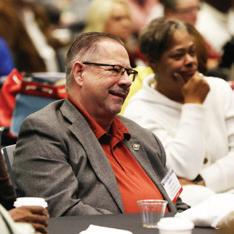

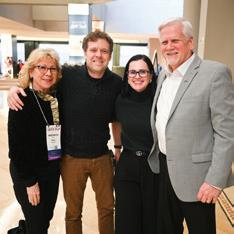
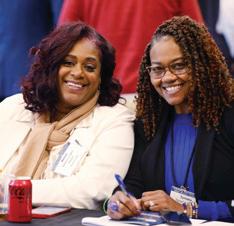
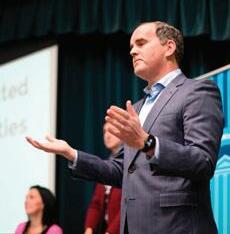
“With the ACE SafeTrack Certification, we’re bringing safety training directly to those who need it most. This program not only equips our frontline workers with critical safety knowledge but also strengthens our communities by creating safer workplaces.”
KERRIE LAUCK, EDUCATION DIRECTOR
Workplace Hazards
Understand how to identify and prevent workplace hazards to create a safer environment.
Heavy Machinery
Learn safe and efficient practices for handling heavy machinery in municipal work.
Harassment Training
Gain practical insights into fostering a respectful and harassment-free workplace.
Policy
Stay informed on workplace policies and compliance essentials for smoother operations.
Course Variety
The ACE SafeTrack Certification program offers a comprehensive range of safety training courses tailored to meet the needs of municipal employees. From mastering the safe operation of heavy machinery to recognizing and addressing workplace hazards, these courses provide essential skills to foster a secure and efficient work environment.

Safety Training Anywhere, Anytime.
ACE SafeTrack
The ACE SafeTrack Certification is part of the broader Arkansas Civic Education (ACE) Program, a cornerstone of AML’s training and certification initiatives. Launched just after the one-year anniversary of the ACE Program, ACE SafeTrack ensures that essential safety training is always accessible, empowering municipal employees to learn anytime, anywhere.
Training is available exclusively through the ACE Hub at any time.
The Safetrack program currently offers 75 courses, with plans to expand the catalog further.
Four Levels of Certification
Participants can progress through four certification levels:
LEVEL 1: 25 CREDITS
LEVEL 2: 75 CREDITS (ADDITIONAL 50 CREDITS)
LEVEL 3: 150 CREDITS (ADDITIONAL 75 CREDITS)
LEVEL 4: 250 CREDITS (ADDITIONAL 100 CREDITS)
Each course completed earns one credit, providing a clear pathway for participants to achieve safety excellence.
Sponsored by AML
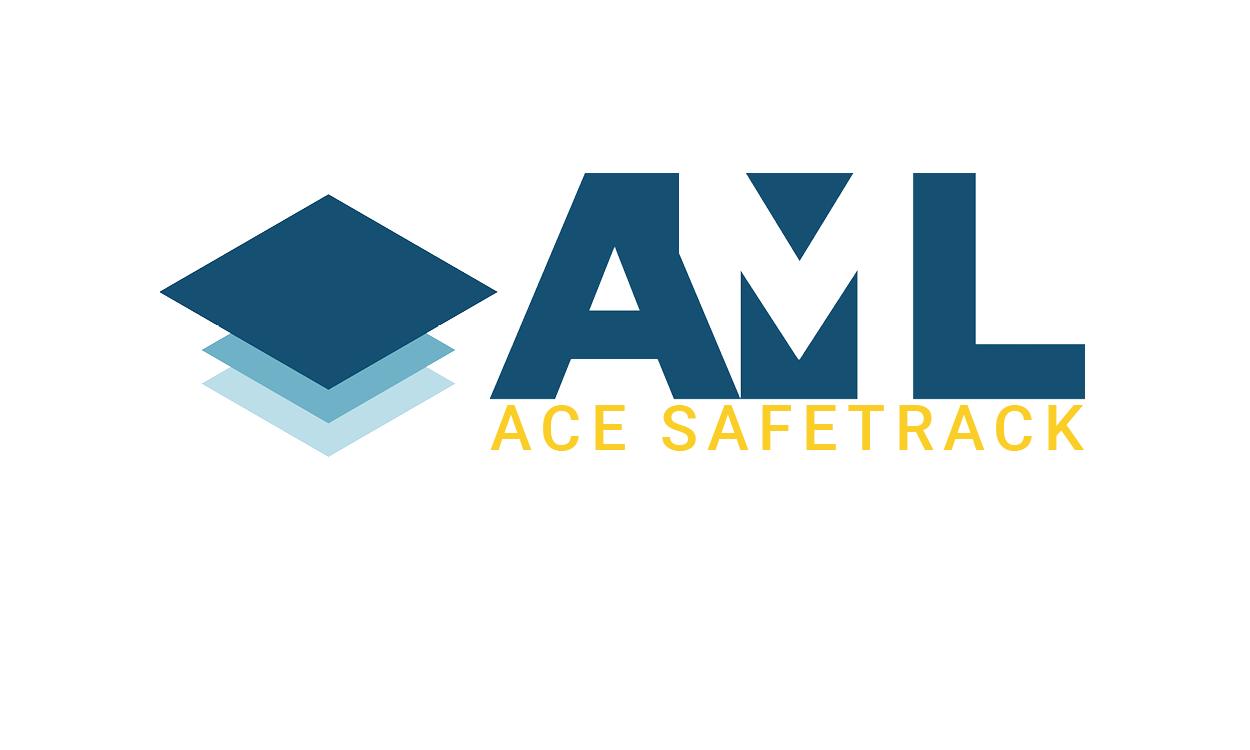
The ACE SafeTrack Certification program, proudly sponsored by the Arkansas Municipal League, is offered completely free of charge.
Register for SafeTrack
To Register for the SafeTrack Certification, learners can scan this QR code.
Questions? Contact Tricia Zello at tzello@arml.org.
Municipal Notes
Attorney general opinions
A quarterly discussion of recent opinions that affect municipal government in Arkansas.
BY BLAKE GARY
OP: 2025-009
Questions: (1) If an emergency has not been declared by the Governor, are council members allowed to attend meetings electronically and vote on matters? (2) Can a city pass an ordinance to allow a council member to attend meetings electronically?
It is important to note from the start that Act 505 of 2025 was signed by the Governor on April 10, 2025 (four days prior to this opinion being published). The passage of Act 505 makes this opinion irrelevant, as it specifically details the instances in which a city council or quorum court may meet electronically. As such, I will take this opportunity to briefly discuss the new law surrounding virtual meetings or virtual attendance by members of your city council or board.
Act 505 simply provides that members governing body of a municipality or county must be physically present at public meetings to be counted for purposes of establishing a quorum or to vote except when the Governor declares a disaster emergency—like we saw during COVID and after natural disasters. However, this only applies to the city council and quorum court—it does not apply to other governing bodies within your municipality such as a utility commission or planning commission. A governing body, other than a city council or quorum court, may adopt a policy permitting members of the governing body to attend a public meeting remotely.
If your city council is meeting remotely due to an emergency declared by the Governor, or you have another governing body within your municipality that adopts a policy permitting members to attend remotely, then there are some procedures we must ensure are followed for it to be a legal meeting. First, we must provide a method for the
governing body to verify the identity of the member of the governing body attending remotely (such as clear video or who is speaking). Second, other members of the governing body and members of the public, whether physically present or attending remotely, must at all times be able to hear the member of the governing body, observe a vote of the member attending remotely and be able to know the identity of the member attending remotely when that member is speaking or voting. Third, a member attending remotely must be able to hear the other members of the governing body and any public comment.
Finally, it is also important to note that if you are a member of the governing body and you attend remotely, you are not entitled to receive mileage or per diem for attending the public meeting remotely.
OP: 2025-032
Question: What is the effective date of acts passed without an emergency clause or other specified effective date at the regular session of the 95th General Assembly, which adjourned sine die May 5, 2025?
Acts that were passed without an emergency clause or other specified effective date during the legislative session of the 95th General Assembly will go into effect on August 5, 2025.
Under the Arkansas Constitution, acts without an emergency clause or a specified effective date become effective the day after the deadline to file a referendum petition per Ark. Const. art. 5, § 1. Referendum petitions must be filed within 90 days “after the final adjournment of the session.” The 90-day window begins on the first full day after adjournment. If the 90th day falls on a weekend or legal holiday, the deadline extends to the next business day. This year, the 90-day window starts
on May 6 and would conclude on Sunday, August 3, 2025. However, since Sunday is not a day on which referenda petitions can be filed, the deadline extends to the next business day: Monday, August 4, 2025. Therefore, acts become effective on the next day—August 5, 2025.
OP: 2025-019
Question 1: May a quorum court increase the levied dues for volunteer fire departments without an election?
Regarding the first question, whether a quorum court may increase levied dues for volunteer fire departments depends on what the voters originally approved. The Attorney General opines that under A.C.A. § 14-20-108, a quorum court could increase the dues on property tax statements without resubmitting to voters if the original voter-approved measure did not set

Arkansas Rural Water Association supports Rural Water Financing Agency
Water Financing Agency offers two financing programs to governmental entities:
Interim Program
For borrowers with a USDA or SRF takeout
Flex Term Program
Tax-exempt fixed rates from 1 - 30 years with a AA- rating
STREAMLINED PROCESS
Start by submitting an application online via ruralwaterfinance.com

a specific rate of dues. However, if the voters authorized a specific rate, a quorum court could not increase the rate of dues without resubmitting the question to the voters.
Question 2: May dues for volunteer fire departments be assessed on a rural parcel (timberland) without either a residence or business with an occupiable structure?
To the second question, A.C.A. § 14-20-108 authorizes quorum courts to levy dues for volunteer fire departments whose fire protection district covers an unincorporated area of the county “on each residence and on each business having an occupiable structure.” Therefore, the Attorney General opines that dues for volunteer fire departments cannot be assessed on a tract of land that does not contain either a residence or a business with an occupiable structure.
Online LEARNING EXPERIENCE



2026 elections: Filing and election dates for candidates for municipal office
For many mayors, council members, city directors, recorders, treasurers and other local officials, 2026 is an election year and the deadlines for filing and other important dates are approaching.
Ahead of each election year, the State Board of Election Commissioners publishes Running for Public Office: A “Plain English” Handbook for Candidates. This comprehensive handbook provides candidates with everything they need to know about elections in Arkansas, including the state statutes that govern the process and sample filing forms candidates may use. The handbook is available as a free, downloadable PDF at sbec.arkansas.gov. The 2026 edition is expected to be available in mid-August.
2026 ELECTION DATES
• Preferential primary election: March 3, 20261
• General primary election (runoff): March 31, 20262
• General election: November 3, 20263
• General election (runoff): December 1, 20264
2026 FILING DATES FOR INDEPENDENT CANDIDATES
• An independent municipal candidate in a mayor-council form of government seeking election at the November 3, 2026, General Election must file a petition, a political practices pledge and an affidavit of eligibility during the one-week period starting at noon on July 29, 2026, and ending at noon on August 5, 2026.5
1. A.C.A. § 7-7-203(b), Act 405 of 2025
2. A.C.A. § 7-7-203(a)
3. A.C.A. § 7-5-102
4. A.C.A. § 7-5-106
5. A.C.A. § 7-6-102(a)(3); A.C.A. § 14-42-206(b)(1)
6. A.C.A. § 14-47-110(a)(3)(D)(i)
7. A.C.A. § 14-47-110(a)(2)
8. A.C.A. § 14-47-110(a)(3)(D)(i)
9. A.C.A. 14-48-109(a)(4)
10. A.C.A. § 14-48-109(6)(C)
11. A.C.A. § 7-7-203(c)(1), Act 405 of 2025
• The deadline for the city clerk to certify names of candidates to the county board of election commissioners is August 20, 2026.6
• An independent municipal candidate in a city manager form of government seeking election at the November 3, 2026, General Election must file a petition, a political practices pledge and an affidavit of eligibility during the oneweek period starting at noon on July 29, 2026, and ending at noon on August 5, 2026.7
• The deadline for the city clerk to certify names of candidates for director to the county board of election commissioners is August 20, 2026.8
• An independent candidate in a city administrator form of government seeking election at the November 3, 2026, General Election must file a statement of candidacy and petition of nomination during the oneweek period starting at noon on July 29, 2026, and ending at noon on August 5, 2026.9
• The deadline for the city clerk to certify names of candidates for director to the county board of election commissioners is August 20, 2026.10
2025 FILING DATES FOR PARTISAN CANDIDATES
The party filing period for candidates seeking to run in the March 3, 2026, preferential primary election is from noon on November 3, 2025, until noon on November 11, 2025.11
The preceding information has been reviewed by the Municipal Law staff and is accurate as of press time.
State commits $75 million for Arkansas Natural Resources Commission water and sewer treatment facilities grant program
BY CARAN CURRY AND DYLAN MCLEOD, LEAGUE STAFF
Available in early 2026, a new Water and Sewer Treatment Facilities Grant Program will help improve water and sewer infrastructure throughout the state. The Arkansas Department of Agriculture’s Natural Resources Division (ANRD) will administer the program. Approximately $25 million will be available for “shovelready” projects annually for the next three years.
The program is a result of the passage of Act 812 during the 2025 legislative session. The Act noted that there is a “dire need to protect public health and safety in Arkansas by replacing water and sewer lines that are in disrepair and by providing new access to clean water systems to other citizens.” The full text of the Act, which will expire at the end of five years, can be read at armuni.org/Act812

sufficient funding—construction can begin within a very short time.” In keeping with this, some grant programs consider a project to be shovelready when the full engineering and design phases have been completed and the project is totally ready to be bid. Other grant programs consider a project to be shovel-ready when the project has been identified and an engineering cost estimate performed. The Act does require that the projects begin within one year of the grant award date. We will update you when ANRD provides their definition. What does this mean for your city/ town as a prospective applicant? It means your city/town should begin working now to get any potential water and sewer infrastructure projects as shovel-ready as possible to be more competitive.
Eighty percent of the funding is designated by Act 812 for projects in cities of the first and second class with populations over 1,200 or rural water and wastewater systems serving 1,200 customers or more. Twenty percent of the funding is designated for incorporated towns and cities of the second class with a population under 1,200 or rural water and wastewater systems serving fewer than 1,200 customers.
Act 812 further specifies that the funding is for “shovel-ready” projects, however the Act does not provide a definition for such. Wikipedia indicates that it “is where planning and engineering is advanced enough that—with
Rules and regulations, including the definition of shovel-ready and match or cost share requirements are expected to be released by ANRD in early 2026 once the rulemaking process is complete. The League will provide more detailed information on the project priorities, eligibility criteria and match/cost-share requirements when it becomes available. The ANRD will announce the application period for the funding.
For more information, please contact Senior Grants Counsel Caran Curry at ccurry@arml.org or Grants and Legal Assistant Dylan McLeod at dmcleod@arml.org

2025 Legislative Session Wrap-Up
F rom LAND USE and ELECTIONS to FOIA and FINANCE, BIG CHANGES are ON THE WAY for LOCAL GOVERNMENTS.

Now that the 95th General Assembly of the Arkansas Legislature has adjourned sine die, I think we can all agree: What a session!
Going into the session, we knew cities and towns would be a focal point for many a legislator, with bills directly impacting Arkansas’ municipalities being filed from the get-go. The primary focus of the session was the role that cities and towns play in development, or as some legislators contend, the role cities and towns play in slowing down development. Our constant flurry of legislative alerts likely alerted you all to the fact that housing, development and land-use issues dominated the session, and in turn we dedicated a great deal of our attention to those issues, too.
Of course, much more happened while land use was dominating the conversation. The Freedom of Information Act underwent an overhaul, legislators restricted district court funding, a bevy of election bills were passed, and big changes arrived for accounting and budgeting law. All in all, it was an incredibly eventful session, and it’s one we won’t soon forget.
Before we dig into some of the most impactful bills of the session, I want to acknowledge the hard work and dedication of the League’s legislative
advocacy team. Throughout the session, these folks have worked diligently on issues critical to the growth and sustainability of the cities and towns of Arkansas. It’s an honor to be a part of such a great group of dedicated and talented individuals.
Finally, none of this is possible without Arkansas’ municipal officials making their voices heard. Your voices play a critical role during any legislative session, and the strength of your collective voices was on full display in 2025. Your insights and advocacy were instrumental in shaping policies that truly address the needs and concerns of the cities and towns of Arkansas. While we represent your collective voices in front of the legislature, the legislative advocacy team agrees that our voices are mere whispers compared to yours!
Now, on to the most noteworthy pieces of legislation of the 95th General Assembly. To help organize an intense session in a clear and concise manner, the Acts are grouped by topic and include summaries of each. For links to each individual Act, visit the interactive version at armuni.org/ LegislativeWrapUp25. And as always, contact your city attorney or the League’s Municipal Law department with any questions.—John Wilkerson, General Counsel & Legislative Director
Legislative Wrap-Up
ACCOUNTING, BIDDING & BUDGETS
ACT 24 (BUDGETS) authorizes a municipality that has not adopted a budget by January 1 to pay for certain expenditures in accordance with the budget from the previous year until a new budget for the year is adopted by the governing body. However, expenditures are limited to necessary operational expenses of the municipality, including without limitation:
(1) Expenditures to ensure all regular and usual government services offered by the municipality are maintained;
(2) Expenditures necessary to protect the peace, health and safety of the residents of the municipality;
(3) Payroll and benefits of employees of the municipality as the employee’s salary existed on December 31;
(4) Payments of contracts for commodities or services previously entered into by the municipality in which payment is due; and
(5) Payments of outstanding debt or bonds, including interest, as authorized under applicable law.
The municipality will not be allowed to make new capital purchases based on the previous budget’s authorization of capital purchases. The purpose of Act 24 is to give municipalities leeway in operating throughout the month of January and onward until a new budget is adopted, but it limits this authorization to only expenditures on those items necessary to continue the operation of the municipality.
ACT 107 (BIDDING:
AFTER-MARKET
EQUIPMENT) Prior to Act 107, the law authorized municipalities to purchase after-market equipment for new motor vehicles up to $1,200 without the need to solicit bids; the law also allowed for the purchase amount of the new motor vehicle to include additional options up to $600 without the need to solicit bids. Act 107 increased both these thresholds to $2,000.
ACT
111 (UNIFORM
CHART OF ACCOUNTS)
requires Arkansas Legislative Audit to establish a uniform chart of accounts for cities of the
second class and incorporated towns by approximately August 2028.
Legislative Audit will provide for a uniform account coding structure over revenues, expenditures and balances and will include budgeting and fund classification aspects designed to classify the receipt of funds and the appropriations and disbursements of funds in accordance with the object and purpose for the expenditures in sufficient details to ensure that current information will always be available concerning the financial condition of municipalities.
This may sound like a burden, but Legislative Audit has promised to work with the League in developing the uniform chart of accounts. Additionally, Legislative Audit will aid in future training of municipal treasurers and finance officers on the use of the new chart of accounts.
ACT 371
(DISTRICT COURTS FUNDING)
makes robust changes to the district court funding scheme, removing the obligation of cities and counties to pay district court judges’ salaries.
Municipalities will need to adjust their budgets to reflect the removal of district court judges’ salary obligations, allocate funds from the city administration of justice funds to specified programs, manage and report the retention and use of these funds, follow specified procedures for fund management and disbursement, implement new installment payment procedures and fee structures, consider specified factors when authorizing salary increases, and collect and remit the court technology fee as specified.
ACT 671 (MANDATORY TRAINING OF CITY TREASURERS)
requires each municipal treasurer, whether elected or appointed, to complete a minimum of eight hours of training provided by the Arkansas Municipal League in cooperation with Arkansas Legislative Audit. This training must be completed within 180 days of the municipal treasurer taking office. If the municipal treasurer does not comply with the training requirements within the specified timeframe, the governing body of the municipality may assign specific duties of the municipal treasurer to another private, qualified person or entity. The Act defines a “private,
qualified person” as a person who is a resident of Arkansas and has previous experience in municipal accounting in Arkansas or has completed the required eight-hour training. Act 671 becomes effective on July 1, 2026.
ACT 720 (SALES AND USE TAX EXPIRATION
NOTICE) requires the Department of Finance and Administration to send the governing body of a municipality notification that a sales and use tax is expiring at least 120 days prior to the sales tax expiring.
ACT 993 (COLLECTION AND DISTRIBUTION OF DISTRICT
COURT SUMS) clarifies the law concerning the collection and distribution of sums collected by a district court and provides a mechanism for cities and incorporated towns that do not operate a district court and do not have a police department to receive the appropriate distribution of sums collected by the district court to ensure remediation. Moreover, the Act provides accounting procedures for all fines, penalties, forfeitures, fees and costs received by the district court or any officers of the town or city.
ADMINISTRATIVE / GENERAL
ACT 573 (IN GOD WE
TRUST & TEN COM-
MANDMENTS POSTINGS) amends the Arkansas Code requiring local government buildings to display the national motto, “In God We Trust,” to add an additional requirement that each public building, upon donation or by voluntary contributions to the governing body, display a copy of the Ten Commandments in the exact language provided in the text of the Act, in a durable poster or framed copy that is at least 16 inches by 20 inches.
ACT 834 (REDUCTION IN CLASS OF CITY) amends the code to allow cities of the first class with a population of less than 7,500 to be reduced to a city of the second class upon adoption of an ordinance. The law previously required a city of the first class to be reduced to a population under 5,000 to have the option to be reduced to a city of the second class.
Legislative Wrap-Up
ACT 848 (AI POLICIES) requires all public entities to create a technology resources policy that defines the authorized uses of technology resources for the public entity. Under the Act, a public entity is defined as “an instrumentality funded in whole or in part by taxpayer funds.”
The Act also requires public entities to create an artificial intelligence (AI) and automated decision tool policy that defines the authorized uses of the tools and requires an authorized human employee or designee to make a final decision in the course of their employment, regardless of AI recommendations.
ACT 929 (.GOV DOMAIN) requires municipal governments to use a “.gov” domain for the municipal government website and any email addresses made available by the municipal government for the municipality or its employees. A municipal government may operate a website in addition to a “.gov” domain if a reasonable person would not mistake the website as the primary municipality website and it is solely for internal use, in temporary use for no more than one year, or relates to an event, program or informational campaign operated by the municipality in partnership with another person or entity that is not a governmental entity.
ELECTIONS
ACT 250 (FINANCIAL CONTRIBUTIONS & EXPENDITURE REPORTS) requires a candidate for office to file a final report 20 days after the end of the month following the month in which the candidate’s name appeared on the ballot in any primary, runoff, general or special election covering all contributions received and expenditures made for that election which have not been disclosed on reports previously filed through the month following the month during which an election is held.
ACT 283 (ORDINANCES FOR ELECTIONS)
Cities of the first class and cities of the second class are required to pass an ordinance changing the way council members are elected. The default is that council members are all elected at-large. If a city chooses to elect council members by ward, or some by ward and
Legislative Wrap-Up
some at-large, an ordinance is required to make this change. Most cities have had an ordinance on their books for decades making this change, but the ordinance was never required to be sent to those in charge of running elections (the county clerk and election commission).
Act 283 requires those cities that have already passed an ordinance on this issue to submit the ordinance to the county clerk by January 1, 2026. This is a one-time submission to the county clerk and will be all the city needs to do unless the city amends the way council members are elected. For those cities that currently elect council members at-large, if these cities ever pass an ordinance in the future, then the ordinance must be submitted by August 31 of the calendar year before the election of council members.
ACT 360 (CANDIDATE PETITIONS) simply adds “beginning at 12:00 noon and” to the current law to read that petitions for independent candidates for municipal office are required to be filed during a one-week period “beginning at 12:00 noon and ending at 12:00 noon 90 days before the general election with the county clerk.”
ACT 405 (SPECIAL ELECTION DATES) amends the dates during which the preferential primary election will be held to the first Tuesday after the first Monday in March. A few sessions back, the General Assembly amended the dates in which we could hold local special elections to coincide with the primary and general elections.
With the changes made under Act 405, the special election dates also changed. Special elections may now be held on (1) the first Tuesday after the first Monday in March and/ or (2) the second Tuesday of November. This change still provides municipalities two dates a year to hold a special election, and it will also be in March and November whether the president is on the ballot or not.
ACT 768 (LOCAL INITIATIVES & REFERENDUM PETITIONS) Under Act 768, the sponsor of each local initiative and referendum petition must submit to the county clerk:
(1) The original draft of the initiative or referendum petition,
(2) Ballot title for approval or denial,
(3) All canvasser affidavits,
(4) Complete list of all paid canvassers’ names and current addresses,
(5) Copy of signed statement provided by the paid canvasser; and
(6) Sponsor certification that each paid canvasser has no disqualifying offenses.
The county clerk must certify the following: the ballot title (or “substitute and certify a more suitable and correct ballot title”); that each canvasser who collected signatures submitted an affidavit certifying that the canvasser complied with the Arkansas Constitution and that all Arkansas laws regarding canvassing, perjury, forgery, etc., in the procurement of petition signatures; and that the sponsor submits a list of all paid canvassers who collected signatures (updated upon any changes) with the canvasser’s name, current address, a signature card and a copy of the signed statement discussed above. The Act also requires that each initiative and referendum petition contain the full ballot title at the top of EACH signature page.
ACT 991 (RUNOFF ELECTIONS FOR MUNICIPAL OFFICES)
amends the law concerning runoff elections to mirror the procedure for runoff elections in county elected offices.
Where there are more than two candidates for election to a municipal office at any general election held in Arkansas, and no candidate receives a majority of the votes cast for that office, there shall be a runoff election held in the municipality, four weeks following the date of the general election at which the names of the two candidates receiving the highest number of votes, but not a majority, shall be placed on the ballot to be voted on by qualified electors of the municipality.
ACT 995 (UNIFORM PROCEDURES FOR FILLING VACANCIES)
Regardless of the classification or form of government of the municipality, a vacancy of a municipal office shall be filled according to one of the following methods:
(1) At the first council meeting after the vacancy is declared, the governing body shall elect, by a majority vote, a person to
serve the unexpired term. In a city with a population of 50,000 or less, the governing body can vote to appoint a member of the governing body of the municipality to fill the vacancy. Such an appointment is not subject to veto by the mayor.
(2) At the first council meeting after the vacancy is declared, the governing body shall either(1) call a special election to fill the vacancy to be held at the next special election date under A.C.A. § 7-11-101 et seq. to fill the vacant position for the remainder of the term, or (2) appoint a qualified elector, including a member of the governing body of the municipality—if the population is less than 50,000—to serve in office until the special election.
POLICE & FIRE
ACT 317 (LAW ENFORCEMENT LEAVE COMPENSATION) mandates that all full-time law enforcement officers, regardless of their titles, employed by municipalities (cities of the first class, cities of the second class and incorporated towns) be compensated for all legal holidays established by the governing body of the municipality.
ACT 398 (LICENSED COUNSELING COVERAGE FOR TRAUMATIC EVENTS) requires public employers to provide licensed counseling coverage for a certain number of hours within a calendar year for public safety employees who experienced a traumatic event. The Act defines public safety employees as probation officers, surveillance officers, adult or juvenile detention officers, police officers and firefighters. Moreover, the Act defines a traumatic event as a public safety employee’s exposure in the line of duty to an incident involving the extraordinary traumatic bodily injury or death of a person; the serious injury, death, abuse or exploitation of a minor; an immediate threat to the life of the public safety employee or another person; or a mass casualty event.
ACT 415 (FIREFIGHTER HEALTH BENEFITS PLAN ELIGIBILITY) amends the Arkansas Code to include a firefighter—defined as a full-time
Legislative Wrap-Up
or part-time paid member of a fire department who actively engages in fire suppression, rescue, pump operation or other firefighting activity and receives more than $5,000 in total compensation during the taxable year from the fire department—to remain on a municipality’s health benefit plan until eligible for Medicare.
This Act does not change the law regarding the requirements for a retiree to stay on the municipality’s health benefits plan such as payment of premiums. It simply provides a retired firefighter with the option to stay on the health plan until they are eligible for Medicare.
ACT 673 (VOLUNTEER FIRE DEPARTMENTS
LEVYING DUES FOR SERVICES IN UNINCORPORATED AREAS) permits the quorum court to levy dues on those residents upon adoption of an ordinance by the quorum court authorizing a county official to collect and remit those dues to the volunteer fire department whose fire protection district covers an unincorporated area of the county.
EMPLOYMENT & RETIREMENT
ACT 413 (RETIREMENT BENEFITS PASSING TO SPOUSES)
Prior to Act 413, the Arkansas Code only authorized retirement benefits for city clerks, city clerk/treasurers, and mayors in cities of the first class to be passed on to the official’s spouse if the municipal official passed way and if approved by the governing body. In other words, there was no option for the governing body to elect to authorize spouses to receive retirement benefits in the event the retired municipal official passed away for any other official other than city clerks, city clerk/treasurers, and mayors in cities of the first class.
Act 413 amends the Arkansas Code to authorize the spouse of a deceased city attorney, deputy city clerk, mayor in cities of the second class and incorporated towns, and city treasurer to receive those retirement benefits. This is purely optional for cities and towns; there is no requirement to provide such benefits to spouses.
Legislative Wrap-Up
REGULATION / GENERAL
ACT 747
(PROHIBITION ON ESTABLISHING DEI INITIATIVES)
prohibits local governments from establishing or implementing a diversity, equity and inclusion (DEI) initiative or requiring a current or prospective employee, officer, agent, administrator or contractor of the local government to submit a statement or diversity statement describing his or her views on matters related to race, ethnicity, sex, color or national origin to be considered for the purposes of hiring, evaluating, admitting or promoting that person.
A DEI initiative is defined as an office, division, department or administrative provider of a unit of the local government with the purpose of (1) influencing administrative, hiring or employment practices of the local government; (2) promoting: (a) preferences based on race, color, sex, ethnicity or national origin, (b) differential treatment on the basis of race, color, sex, ethnicity or national origin, or (c) political or social activities to consider race, color, sex, ethnicity or national origin as factors in decision making, except when required by federal or state law.
Moreover, the Act prohibits an officer, agent, administrator, employee or contractor of local governments from adversely or advantageously treating an individual on the basis of his or her race, color, sex, ethnicity or national origin.
REGULATION / ZONING
ACT 313 (ACCESSORY
DWELLING UNITS/
ADUS) restricts a municipality from regulating against the use of at least one ADU on a lot or parcel that contains a single-family dwelling.
An “accessory dwelling unit” is defined under the Act to mean a self-contained and independently accessed living unit on the same parcel as a single-family dwelling of greater square footage that includes its own cooking, sleeping and sanitation facilities and complies with or is otherwise exempt from any applicable regulatory requirements, for example, fire codes and permit regulations.
The ADU can, under the Act, operate as a short-term rental and, if detached, must not
occupy more than 75% of the size of the internal habitable area of the single-family dwelling or 1,000 square feet, whichever is less.
ACT 314 (EXTRATERRITORIAL JURISDICTIONS)
For more than 50 years, municipalities have had some limited authority to certain powers outside of the corporate limits of the city—anywhere from 1-3 miles outside of the corporate limits depending on the size and certain characteristics of the municipality.
Municipalities could exercise jurisdiction over subdivisions, the construction, installation and inspection of electrical work, and in some limited cases zoning authority in this extraterritorial jurisdiction. After the passage of Act 314, extraterritorial jurisdiction no longer exists.
ACT 459 (RENTAL REGULATION RESTRICTIONS)
prohibits local governments from enacting, maintaining or enforcing an ordinance or resolution that would have the effect of controlling the amount charged for rent, rental application fees or rental deposits for the leasing of private residential or commercial properties.
ACT 591 (THIRD-PARTY INSPECTORS)
provides a framework for the usage of thirdparty inspectors. After receipt of a request for a permit, the local government shall notify the applicant, within five days of receipt, as to whether the request for a permit meets the regulatory requirements for a complete application.
Once the local government notifies the applicant of the completeness of the application, the local government must also notify the applicant as to whether personnel employed with or contracted by the local government will be able to provide by plan review for approval, denial or request for revisions on the request for permit within 60 days.
If the local government cannot provide the personnel within 60 days, the applicant may, within three days of notification from the local government official, request that the local government retain a private professional provider, at the local government’s expense, to provide the required plan review. If the local government can provide the personnel for the plan review
within the required timeframe, the applicant may still elect to retain a private professional provider, but such services will be solely at the applicant’s expense.
ACT 595 (ADMINISTRATIVE REZONINGS)
authorizes a municipality to create an administrative procedure for changing the zone or district designation of a property. The governing body of a municipality may establish, by ordinance, an administrative procedure for changing the zone or district designation of a property when the request is: (1) made by the property owner; and (2) consistent with the adopted land-use plans. Decisions rendered on administrative changes of a zone or district designation may be appealed to the planning commission of the municipality.
UTILITIES
ACT 699 (ARDOT AND UTILITY RELOCATION AGREEMENT)
outlines the procedures between ARDOT and utilities when the utilities need to be moved out of the state’s right-of-way. When a utility is located within the state’s right-of-way and needs to be removed, relocated or adjusted to accommodate changes, ARDOT and the utility must negotiate a relocation agreement.
This agreement will define a reasonable schedule for the relocation and outline the responsibilities of each party. The agreement will include a timeline for relocating the utility.
If the municipal utility cannot comply with this timeline, ARDOT has the authority to relocate the utility. However, if the municipality provides ARDOT with a list of at least three approved engineers and contractors or design specifications for the utility relocation within 10 days of receiving notice from ARDOT, ARDOT will contract only with those approved by the municipality.
Additionally, if the municipality supplies design specifications within 10 days of receiving notice, ARDOT will adhere to these specifications. The municipal utility also has the right to inspect the relocation process, including any underground utility before it is covered, and may pursue claims against any person or entity other than ARDOT related to the relocation, whether under the contract with ARDOT or by law.
Legislative Wrap-Up
ACT
736
(MORE ELIGIBILITY FOR STATE PROGRAMS)
expands the eligibility for water development state programs to include, in addition to nonprofit corporations, any governmental entity, municipal nonprofit entity, municipal authority, governmental authority, investor-owned water or wastewater utility, improvement district or rural development authority that provides, distributes, transmits, treats, pumps or stores raw or potable water to or for the benefit of members of the general public and commercial, industrial and other users that propose to accomplish, develop or construct any of the foregoing.
ACT 812 (WATER AND SEWER GRANTS)
establishes the Water and Sewer Treatment Facilities Grant Program Fund to be used by the Arkansas Natural Resources Commission to award grants for primarily shovel-ready infrastructure and improvement projects for eligible water and sewer treatment facilities. The Commission is tasked with creating and awarding grants for shovel-ready projects and will award up to 80%.
ACT 925 (UTILITY RATE STUDIES)
establishes that all public and private providers of a sewage collection service or sewage treatment service will be determined to be in fiscal distress if the provider: (1) fails to provide a rate study; (2) fails to implement the completed rate study required under this Act; or (3) has been found by the Arkansas Natural Resources Commission to be in significant noncompliance with the rules of the Commission because of inadequate funds for operation and maintenance or inadequate compliance with the rules of the Commission.
For providers serving 500 or fewer customers, the rate study must be obtained by July 1, 2028, and every five years thereafter. For providers serving not less than 501 customers and not more than 1,000 customers, the rate study must be obtained by July 1, 2029, and every five years thereafter. For providers serving more than 1,000 customers, the rate study must be obtained by July 1, 2030, and every five years thereafter.
Such rates must be implemented within one year of receipt of the rate study unless the rate
Legislative Wrap-Up
study requires a rate increase of 50% or more, in which case it will be implemented over a two-year period. Like Act 605 of 2023, which required rate studies for water systems, Act 925 requires a provider to deposit a minimum of 5% per annum of gross revenues in a dedicated refurbishment and replacement account. Moreover, a provider’s board members must complete eight hours of training as promulgated by rule of the Arkansas Natural Resources Commission.
FREEDOM OF INFORMATION ACT
ACT 505 (PUBLIC MEETING VS. INFORMAL MEETING) amends the Arkansas Freedom of Information Act (FOIA) to provide clearer guidance on communications of employees or agents of a public entity and discussions outside of public meetings.
The Act defines a “public meeting” to mean the formal gathering together, in a special or regular gathering, of a governing body, whether in person or remotely. The definition of public meeting specifically excludes the gathering of members of a governing body to discuss the settlement of a cause of action in a court-ordered alternative dispute resolution process and meetings of the Child Maltreatment Investigations Oversight Committee.
Moreover, the Act defines an “informal meeting” as a gathering of two or more
members of the governing body outside of a public meeting. An informal meeting that includes deliberation or that is for the purpose of exercising a responsibility, authority, power or duty of a governing body is strictly prohibited. However, two or more employees or agents of a public entity may communicate for the purpose of exercising an authorized responsibility, authority, power or duty of an employee or agent of the public entity outside of a public meeting without violating Arkansas’ FOIA laws. The difference between the prohibited and permissible informal meetings is the prior public deliberation or discussion of the responsibility, authority, power or duty. Where the responsibility, authority, power or duty has not been deliberated or voted on at public meetings, it cannot be discussed by employees or agents of the governing body at informal meetings. If the circuit court finds that a governing body has violated this section, the circuit court may invalidate any action the governing body took at the unlawful public meeting.
ACT 992 (FOIA AND BONDS) amends Act 505 of 2025 to provide additional authority of the circuit court to invalidate a governing body’s issuance of bonds within 30 days of the governing body’s issuance where such issuance was enacted in violation of Arkansas FOIA.
THE ARKANSAS PROSTATE CANCER FOUNDATION
TO HONOR THE MILESTONE OF 25 YEARS OF LIFESAVING WORK AND UNWAVERING SUPPORT FOR MEN ACROSS THE STATE, THE APCF INVITES ALL MAYORS, COUNCIL MEMBERS, POLICE AND FIRE DEPARTMENTS, AND OTHER MUNCIPAL EMPLOYEES TO PLAN NOW! JOIN US IN





October 10 | Grand Prairie Center, Stuttgart
November 14 | ASU Jonesboro
September 12 | Hope Center, Russellville 2 0 2 5 R E G I O N A L M E E T I N G S 2 0 2 6 W I N T E R C O N F E R E N C E
January 14-16 | Statehouse Convention Center, Little Rock
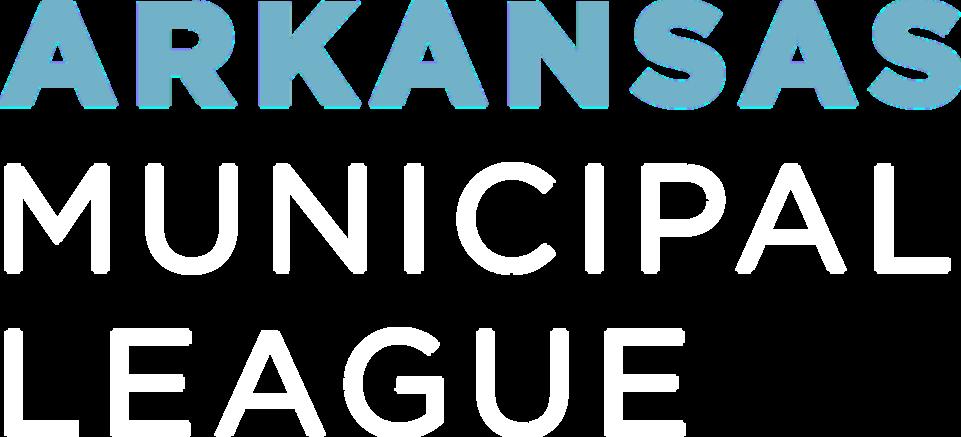



CHARTING THE COURSE FOR ECONOMIC MOBILITY

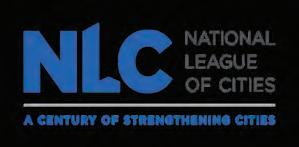
Economic mobility is a measure of one’s economic well-being over one’s lifetime. Communities with larger investment in economic mobility policy, programs and procedures can empower their residents to live more financially secure and prosperous lives. The following three resources provide the necessary data, metrics, and evidence-based programs that municipal leaders can leverage today!
OPPORTUNITY ATLAS
Explore the national landscape of economic mobility by Census tract, and to see outcomes by parental income, race, and gender . Track how places shape future income!


UPWARD MOBILITY FRAMEWORK
Assess and make progress on the conditions that affect upward mobility and racial equity in communities. Understand your community’s foundation in mobility!
ECONOMIC MOBILITY CATALOG
Identify and implement hundreds of evidence-based approaches to advancing economic mobility. See economic mobility in local government in action!

THE ECONOMIC OPPORTUNITY AND FINANCIAL EMPOWERMENT TEAM
Become thriving communities that ensure household financial security and racial equity by promoting equitable access to economic opportunities and wealth-building for a ll residents.
Address residents’ economic challenges through in-depth practical guidance, relevant tools, and access to peer learning and grant funding, we assist cities in creating systemic change through policies and programs to strengthen families’ economic well-being. Economic mobility is a whole realm of opportunity to exploreGet started with the NLC team by emailing eofe@nlc.org!
NLC’s EOFE team appreciates our philanthropic partners, including The Annie E. Casey Foundation, the Charles Stewart Mott Foundation, the Gates Foundation, the Nathan Cummings Foundation, the Robert Wood Johnson Foundation, the Kresge Foundation, and the W.K. Kellogg Foundation.
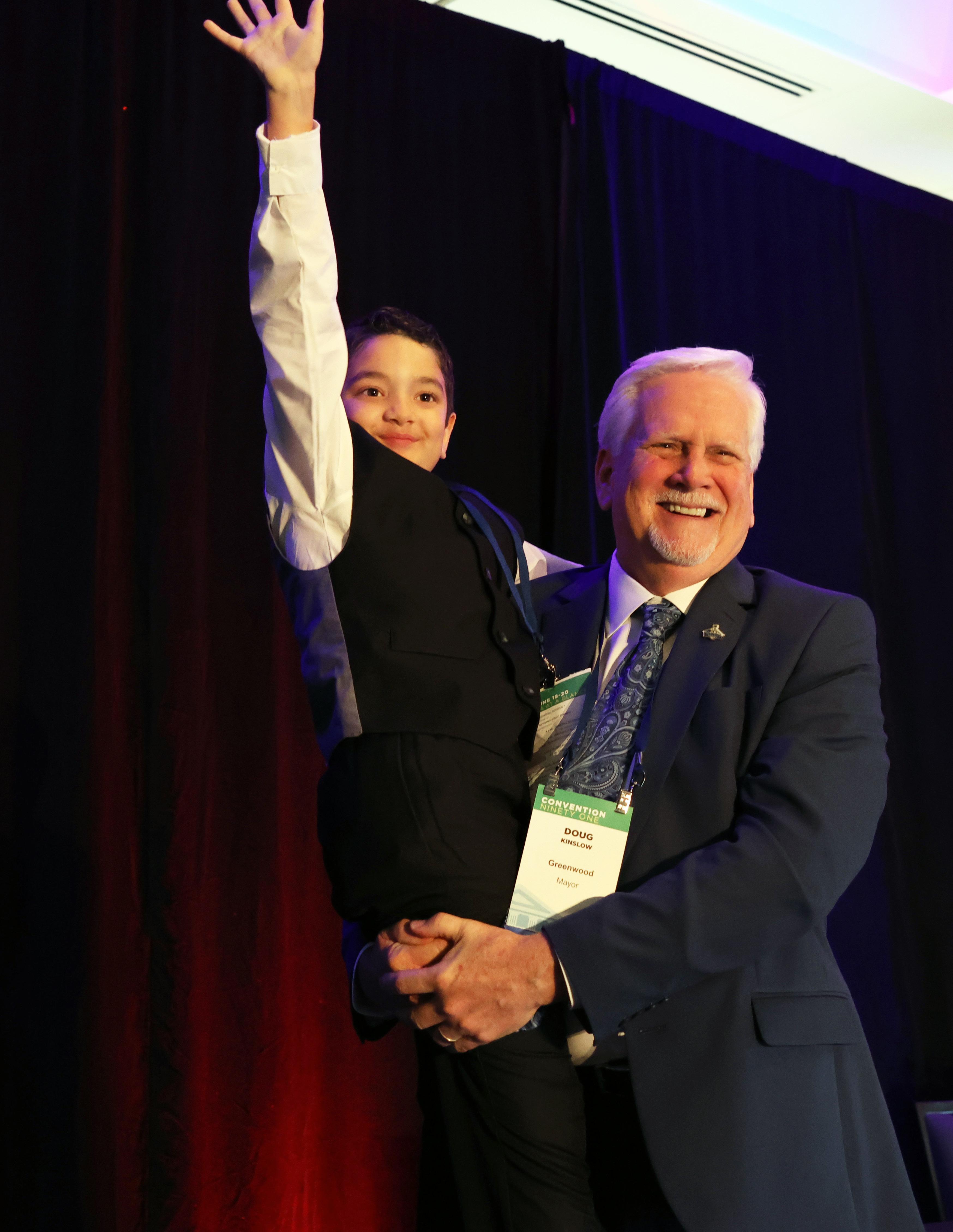
CITY & TOWN | SUMMER 2025
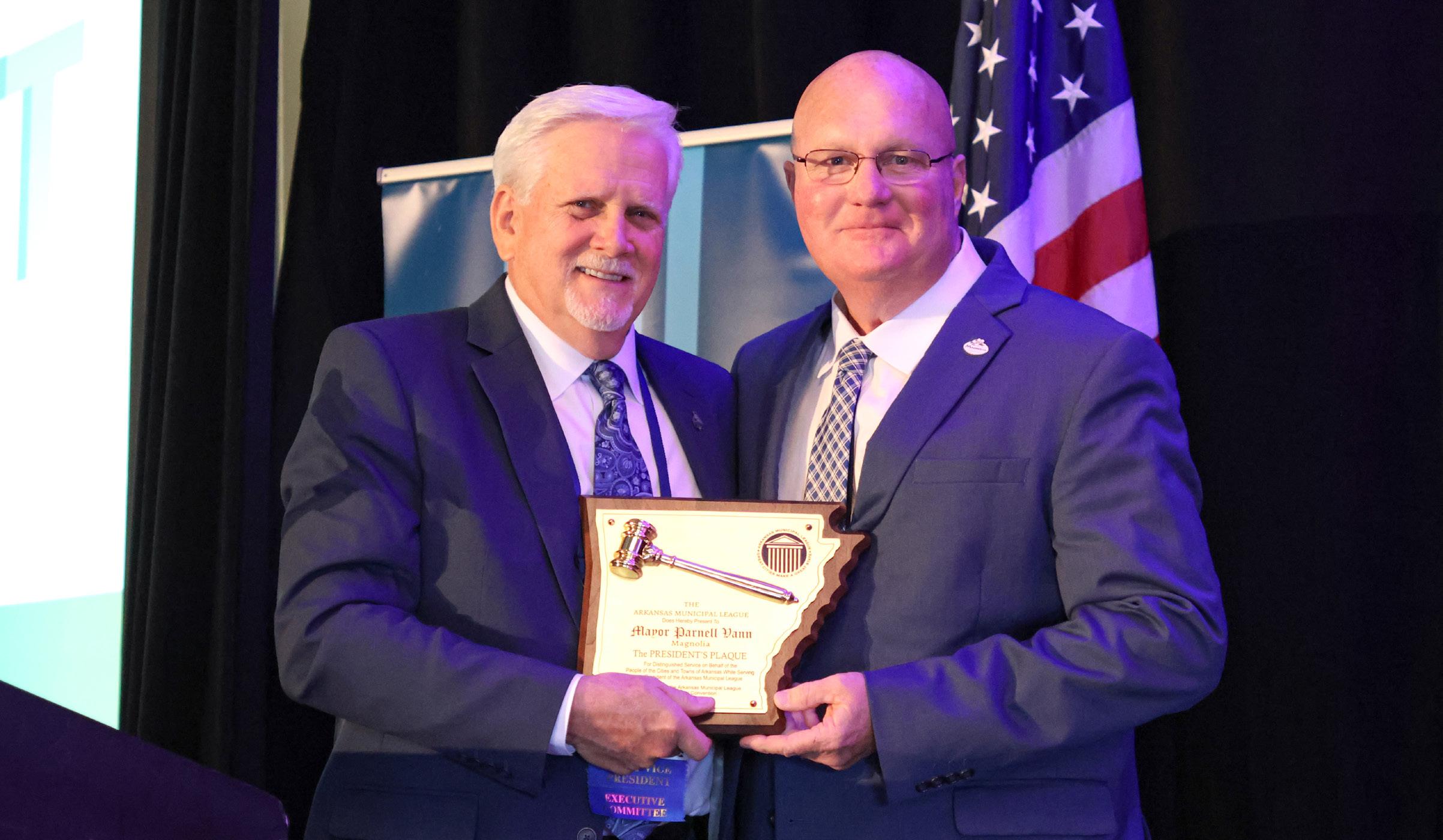
League preps for year ahead at 91st Annual Convention
BY ANDREW MORGAN, LEAGUE STAFF
Under the banner of Rooted, Resilient and Rising Together, elected officials and personnel from cities and towns across Arkansas gathered at the Little Rock Marriott and Statehouse Convention Center June 18-20 for the 91st Annual Convention of the Arkansas Municipal League, where they discussed a variety of issues affecting local government, elected new officers and adopted a package of resolutions that will guide League advocacy efforts for the next year.
Attendance was strong and continued an upward trend, with more than 800 mayors, council members, department heads and other municipal personnel registered and with more than 1,200 participants overall.
During the annual business meeting on the morning of Friday, June 20, the League membership elected a new slate of officers for 2025-2026. The officers are: Greenwood Mayor Doug Kinslow, president; Beebe City Clerk/ Treasurer Carol Westergren, first vice president; Gassville
Mayor Jeff Braim, District 1 vice president; Heber Springs
Mayor Kasey Griffin, District 2 vice president; Pea Ridge
Mayor Nathan See, District 3 vice president; and El Dorado
Mayor Paul Choate, District 4 vice president.
During the meeting, the membership also approved the adoption of a package of eight resolutions, including one in support of Senate Joint Resolution 15, a proposed
constitutional amendment that would grant municipalities increased authority to promote economic development. The issue will appear on the statewide ballot in the general election on November 10. The resolutions will appear in the League’s updated Policies & Goals 2025-2026 publication, which, in addition to being available online in August will be included as a supplement to the autumn issue of City & Town.
Education and professional development are major components of the League’s mission, and Convention 91 included numerous opportunities for elected officials, department heads and personnel to learn best practices for local governance and receive up-to-date information. Thursday’s agenda featured 14 breakout sessions offering in-depth discussions of topics like navigating the Arkansas Freedom of Information Act, creating successful bond improvements, addressing neglected properties and cybersecurity. The sessions qualified attendees for credit as part of the League’s Arkansas Civic Education (ACE) Program, the voluntary continuing education and certification program for municipal officials and personnel, now in its second year. Visit the Resources & Education page at arml.org to learn more about the program, including the new ACE SafeTrack certification program, which offers safety training courses tailored to the municipal workplace.
Greenwood Mayor and 2025-2026 League President Doug Kinslow, left, presents outgoing League President and Magnolia Mayor Parnell Vann with a plaque in recognition of his service to the League during the New Officers and Awards Luncheon on Friday, June 20.
The League invited the members of the Arkansas Legislature’s Joint City, County and Local Affairs Committee to the Convention 91 stage on Wednesday, June 18 to discuss several bills passed during this year’s 95th General Assembly that affect the planning and zoning functions of local government. Act 313 gives cities flexibility in allowing accessory dwelling units, or ADUs, to increase housing availability in existing neighborhoods. Fayetteville has been at the forefront on this issue, Garver Urban Planning Leader James Walden, top, told the committee. “Every single community where I’ve worked, where I’ve brought up the issue of accessory dwelling units, every single city council says yes, I think we need to do that.” Over the past 20 years, Fayetteville has lowered hurdles to approving ADUs and gets a few dozen permit applications each year, said Fayetteville Development Services Director Jonathan Curth, bottom right. “This is not the silver bullet for housing, it’s not going to solve all of it, but it is a very effective and incremental tool that existing neighborhoods can use,” he said. Addressing issues surrounding housing and planning requires a partnership between state and local governments, League Executive
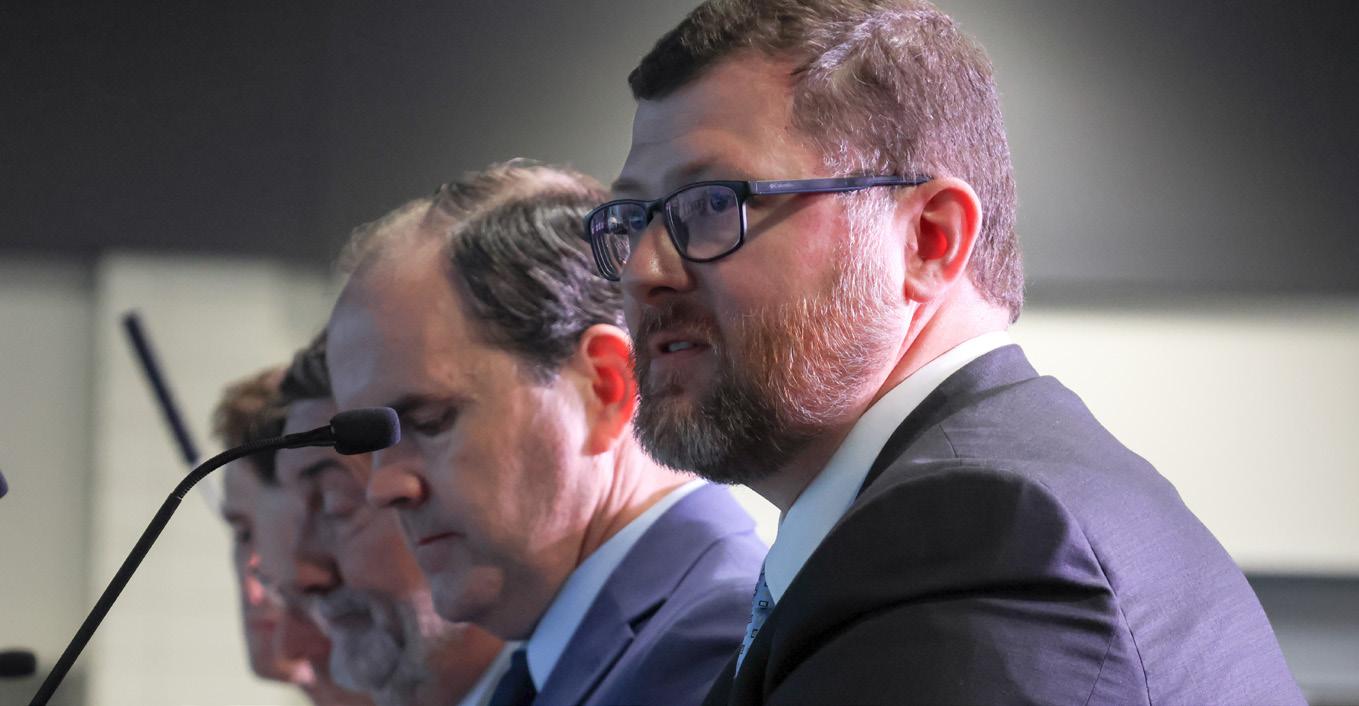

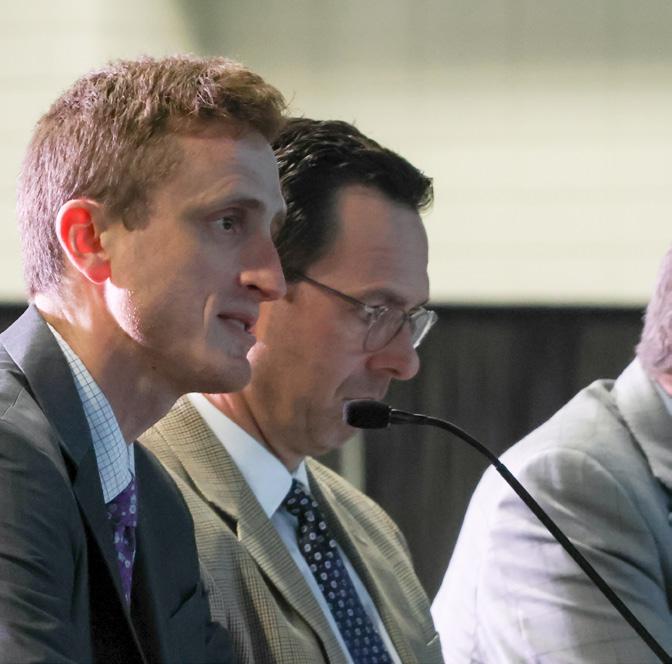
bottom left, said. “It’s the kind of thing that benefits everyone—it’s not us versus them.”
“THIS IS NOT THE SILVER BULLET FOR HOUSING, IT’S NOT GOING TO SOLVE ALL OF IT, BUT IT IS A VERY EFFECTIVE AND INCREMENTAL TOOL THAT EXISTING NEIGHBORHOODS CAN USE.”—FAYETTEVILLE DEVELOPMENT SERVICES DIRECTOR JONATHAN CURTH
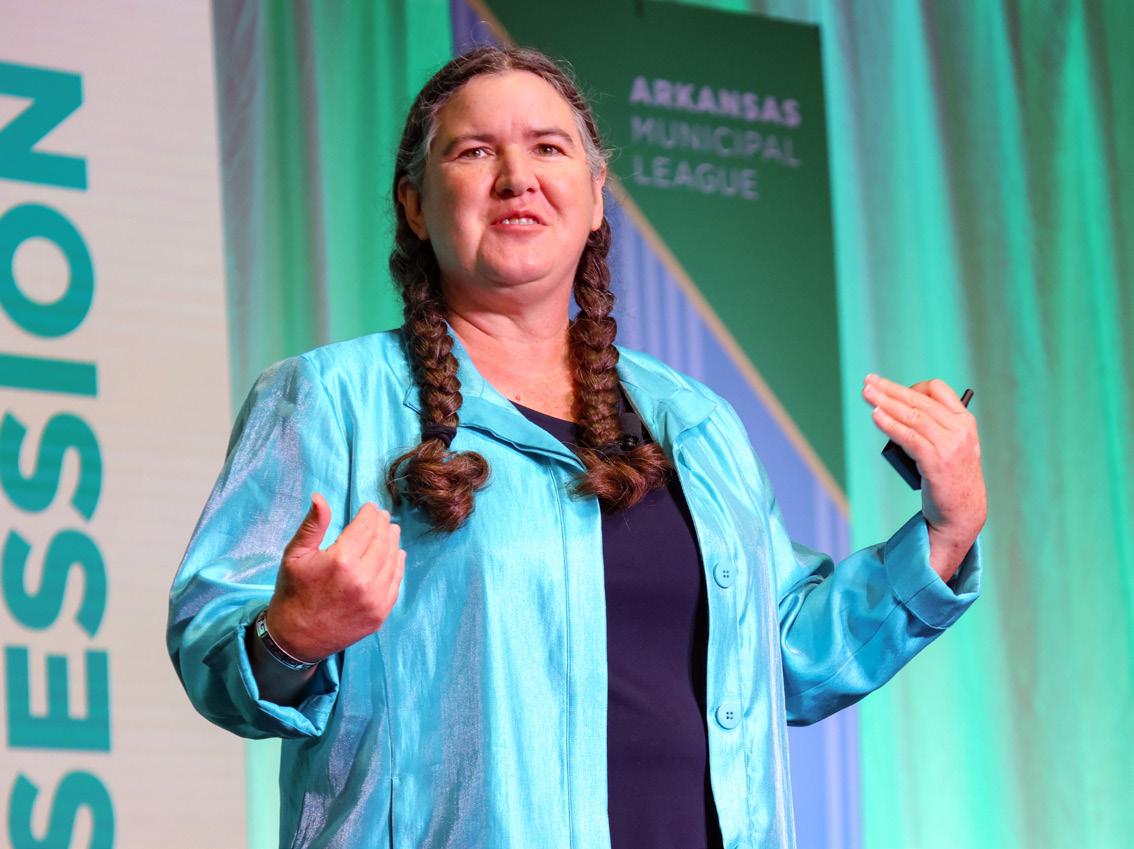
Keynote speaker Becky McCray brought her Idea Friendly Method to the Convention 91 stage on Wednesday, June 18, offering tips—especially for small cities and towns—to turn innovative ideas into action in the face of negativity and resistance to change. When new ideas are presented, others often throw up “brick walls,” not because they want you to fail, but because they think they’re protecting you from failure, she said. “While you’re making decisions about your community, the choice isn’t between where we are right now (and everything is fine and we’re safe) and change (which is scary, and over there). The choice we have to make is between the change that we will create when we decide to act and the change that’s going to happen to us if we fail to act.”
Director Mark Hayes,
At the conclusion of the annual business meetings of the League’s optional programs on Friday, June 20, Executive Director Mark Hayes presented his annual report to the membership on the state of the organization and its programs. Each of them, from the benefit programs like Municipal Health and Workers Comp to the new and growing ACE Program are “robust, good programs operated by very dedicated people,” he said. Hayes provided an overview of the participation in the League’s optional benefit programs, training and certification program participation, and other key stats from the past year. Those numbers and other important information are available in the 2025 annual report, which begins on page 57 in this issue. Hayes praised the membership for their important service to their communities, often in the face of unmerited criticism and during divisive political eras such as this one. “The most important governmental unit is not the federal, the state or the county. It’s you. What you do makes a difference every single day in people’s lives. Every minute of every day in people’s lives. You are the true service government.”

“I THINK THAT THIS CELEBRATION AND THIS OBSERVANCE SHOULD BE SOMETHING THAT EVERY AMERICAN RECOGNIZES
AS AN AMERICAN HOLIDAY, AS AMERICAN AS JULY FOURTH.”
—PINE BLUFF MAYOR VIVIAN FLOWERS
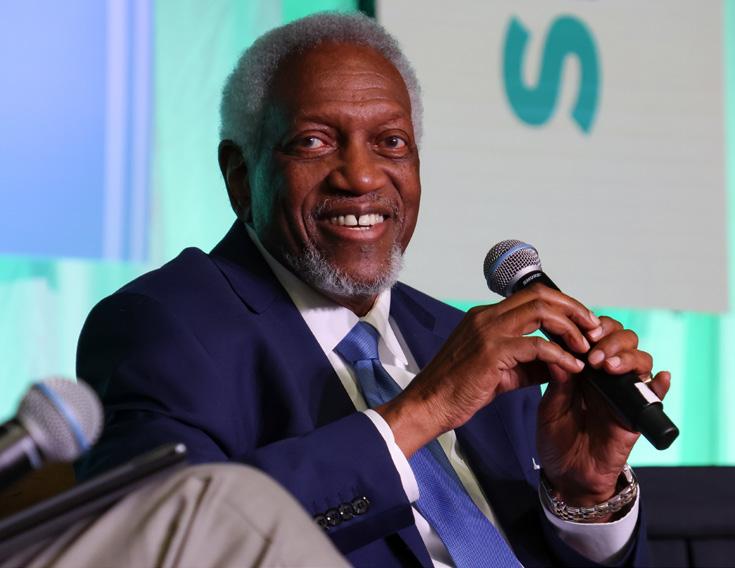

The Thursday of Convention 91 coincided with Juneteenth National Independence Day, when we celebrate the day in 1865 when Union General Gordon Granger began the enforcement of the Emancipation Proclamation in Galveston, Texas. The League welcomed to the stage, from left, Fort Smith Mayor George McGill, Pine Bluff Mayor Vivian Flowers and Jonesboro Council Member Dr. Charles Coleman for a discussion with League Executive Director Mark Hayes about the history and significance of the holiday.
Led by an energetic youth movement, Juneteenth had been celebrated in Fort Smith for many years before it became a federal holiday, and they hoped for the day it would be recognized as such, McGill said. “And lo and behold it did become a national holiday. So early on we
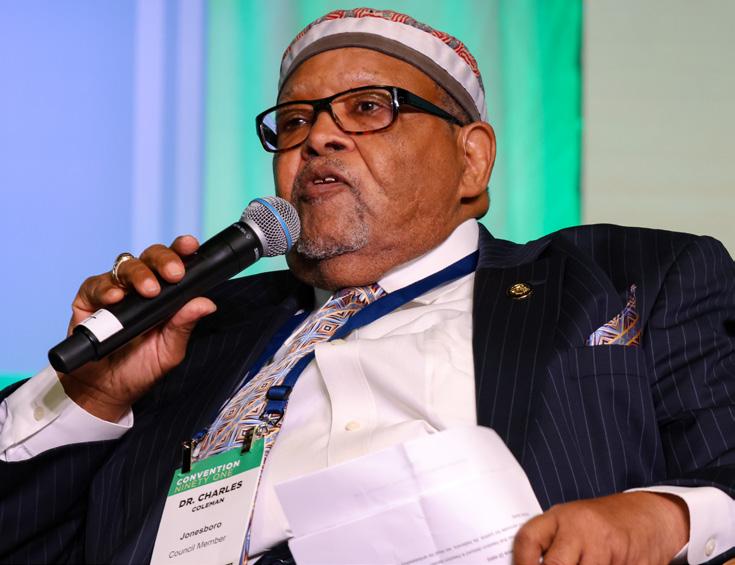
used Juneteenth as a day, not only to celebrate our past but talk and have conversations about the future of Fort Smith, what it would look like, and what it should look like and the roles that we would play in the growth and development of our city.”
For too long the significance of Juneteenth was not often discussed outside of the Black community, Flowers said, and that is changing. “It is our history. I think that this celebration and this observance should be something that every American recognizes as an American holiday, as American as July Fourth.” Dr. Coleman agreed with that sentiment. “Let’s explain ‘community’ in 2025. It means all people to celebrate this day. Amen? This is for everybody in this country.”
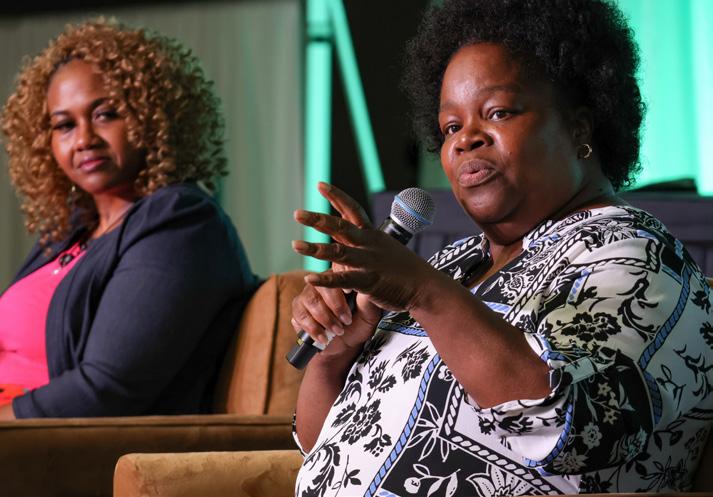
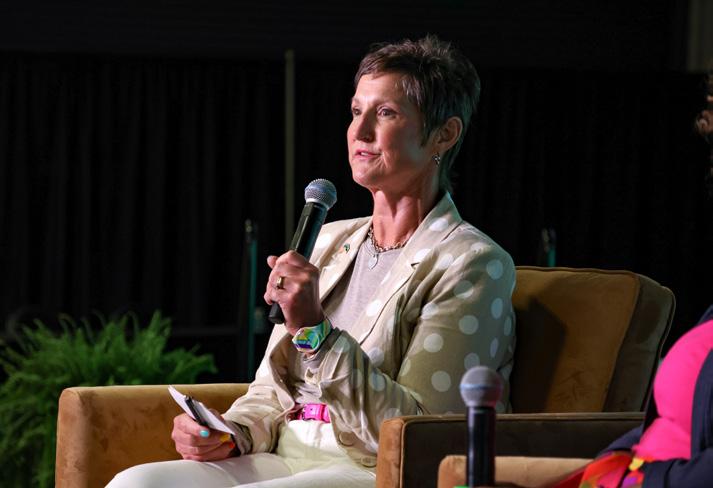
The majority of Arkansas’ 500 cities and towns have populations under 5,000. To be the mayor of a small community often means getting your hands—and boots—dirty as you work to carry out the daily business of running a municipality.
In the convention’s well-attended final general session, “Drugs, Dogs & Drainage,” three mayors who have been there, done that—from left, Elaine Mayor Lisa Hicks-Gilbert, Keo Mayor Stephanie White and Eudora Mayor Tomeka Butler—shared tales from the ground that resonated with their peers in the audience. When it comes to the city’s aging water system, Mayor Butler has found herself more than once “in the hole” helping her employees fix leaks. “I feel like it’s good when I can assist, because I don’t know what I’m doing but I feel like I do—if I can just pass you a wrench or something that you need, or help get the rocks out of the water pump while we’re
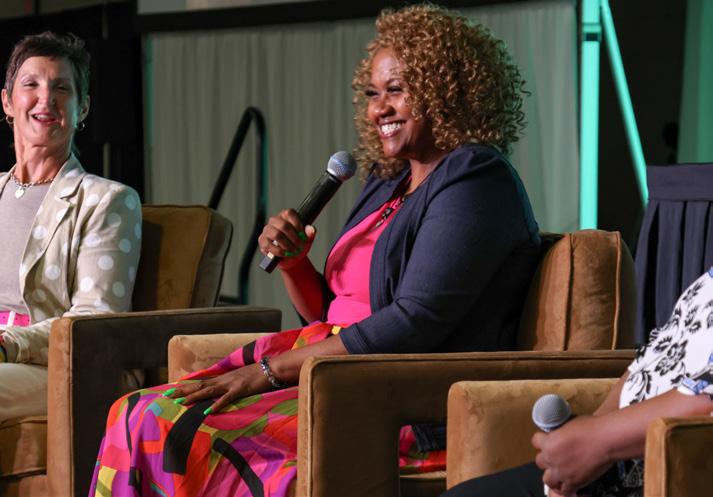
trying to pump this water out.”
Water and wastewater issues take up most of Mayor White’s time, she said, and when she took office, she set about improving things. “I basically started with no money, no tools, no clamps, no nothin’, and I took my children and I read all 170 meters.” She now has her water and wastewater licenses and Keo just finished $2.6 million in new water infrastructure.
“Oh my goodness, we do not have long enough to talk about the water!” Mayor Hicks-Gilbert said. “We are literally living on a prayer with our water system.”
Elaine is actively searching for a dog catcher, though, because people dropping off strays in town is an ongoing problem and a safety issue, particularly for seniors. When a new stray turns up, the mayor knows right away. “I know most of the dogs in Elaine,” she said. “I have to.”
“NOTHING MATTERS MORE THAN THE TABLE. IF DECISIONS ARE BEING MADE AT THE TABLE AND WE’RE NOT THERE, THEN THEY’RE BEING MADE WITHOUT US. WE HAVE TO BE AT THE TABLE.” LEAGUE GENERAL COUNSEL & LEGISLATIVE DIRECTOR JOHN WILKERSON
In a session dubbed “Resilient in Response,” League General Counsel and Legislative Director John Wilkerson provided an overview of the 95th General Assembly of the Arkansas Legislature, which he called “the most intense session I’ve been a part of.” That said, it was “not a disaster, not at all,” he added, noting positive and promising legislation aimed at easing the affordable housing shortage, streamlining rezoning and other land use issues. More challenging, he said, is Act 314, which passed by one vote and repeals cities’ extraterritorial jurisdiction, making it more difficult to plan for future growth. It is a setback, Wilkerson said, but there are still options. “There are paths through it, and that’s about resiliency: We know we can figure out a way through this.” When things got dicey at the Capitol, Wilkerson took comfort in the words of longtime city planner and League consultant Jim von Tungeln. “He said, ‘Cities have survived for thousands of years. We’re going to make it through this too.’” Looking ahead to next year’s fiscal session and the 2027 general legislative session, Wilkerson urged city and town leaders to remain resilient, educate themselves on the issues and to keep conversations going with their legislators. “Nothing matters more than the table,” he said. “If decisions are being made at the table and we’re not there, then they’re being made without us. We have to be at the table.”
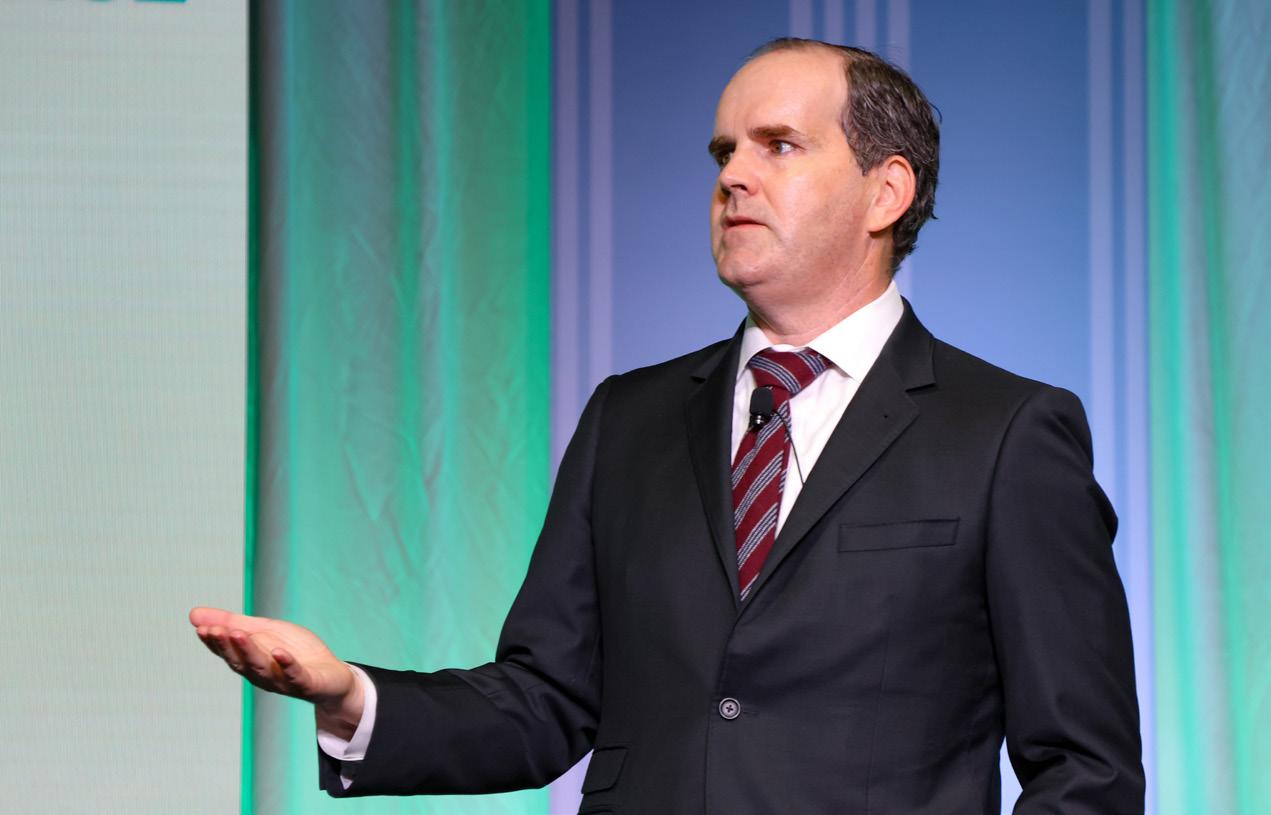
League honors individuals, cities for outstanding service
During the Convention 91, the Arkansas Municipal League recognized individual officials and municipalities for their outstanding service to their communities and to the League. The awards were presented during the New Officers’ and Awards Luncheon on June 20.
The John Woodruff City Above Self Award is presented to an individual who has dedicated themselves to improving Arkansas’ cities and towns. This year the League presented the award to James Walden, Garver’s urban planning leader. Walden has been a “true friend of the League,” said General Counsel and Legislative Director John Wilkerson, who praised his dedication to working with cities on housing and planning and zoning issues throughout the 2025 legislative session.
Eight municipal officials received the Adrian L. White Municipal Leadership Award. The award is presented to officials who have served on the League’s boards, councils or committees for six years. The award is named in honor of White, who was the mayor of Pocahontas from 19671974 and a former League president and vice president. This year’s recipients are Eureka Springs Mayor Robert “Butch” Berry, Jacksonville Human Resources Director Charlette Nelson, Monette Mayor Bob Blankenship, Pangburn Mayor Michael Marsh, Prairie Grove Council Member Tony Cunningham, Prescott Council Member Patricia Roberts, Walnut Ridge Mayor Charles Snapp and Wynne Mayor Jennifer Hobbs.
Three city officials and personnel who have served the League for 12 years received the Marvin L. Vinson Commitment to Excellence Award, named for the longtime Clarksville mayor who served from 1983 until 2001 and was League president in 1992-1993. The recipients are Hot Springs Deputy City Manager Lance Spicer, Mena Assistant to the Mayor Becky Horton and Sheridan Council Member Betty Cook.
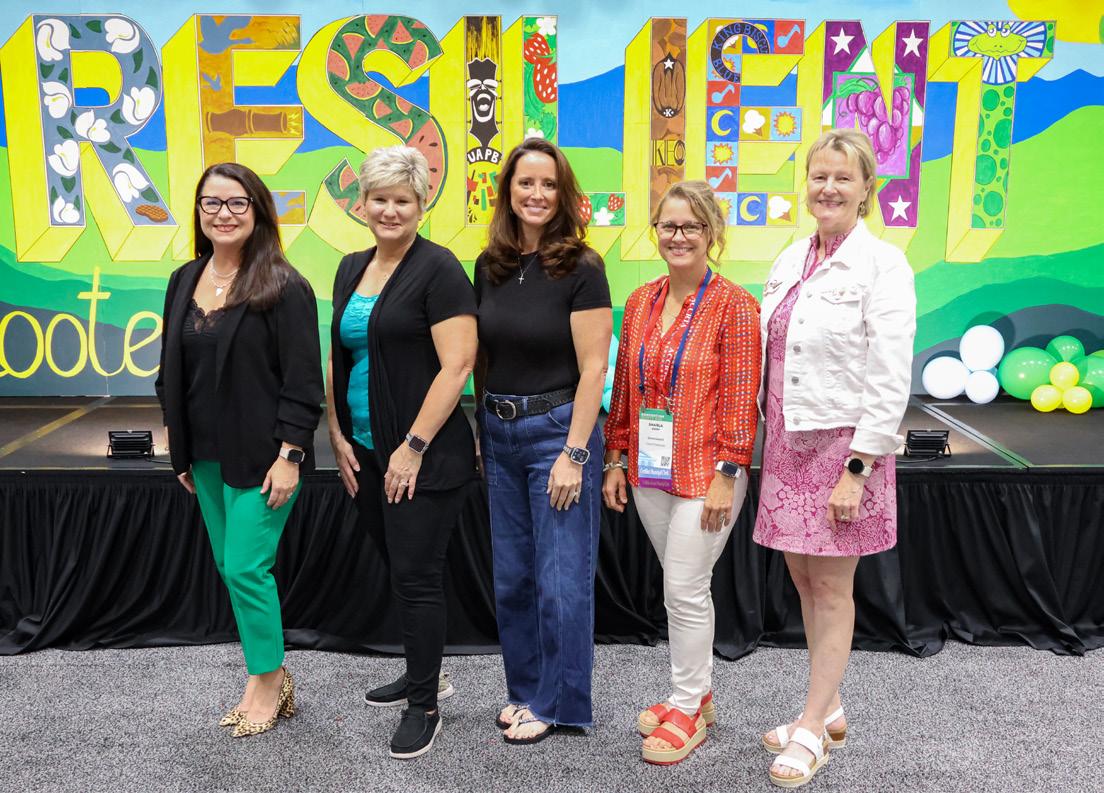
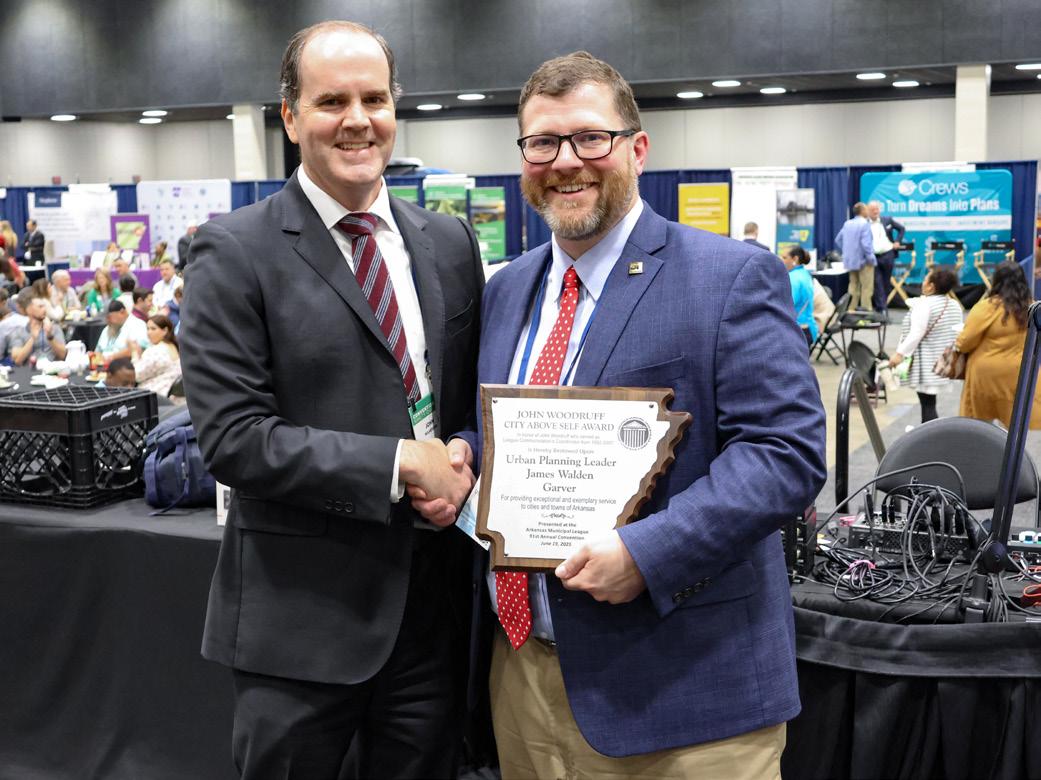
Called a “true friend of the League,” James Walden, right, is this year’s recipient of the John Woodruff City Above Self Award.
One city official, Garland Council Member Clifton Rooters, received the Jack R. Rhodes, Sr., Distinguished Service Award for 25 years of dedicated service to the League. Rhodes served as mayor of Lake Village from 1957 until his retirement in 1990 and was one of the longestserving mayors in Arkansas history.
Seventeen cities and towns received the Four Star Municipality Award for demonstration of excellence in loss control, employee safety, wellness, vehicle safety and prevention of liability. They are: Calico Rock, Calion, Central City, Charleston, Coal Hill, Cove, Hector, Huntington, Imboden, Knoxville, Melbourne, Ola, Smackover, Summit, Swifton, Wilmar and Wooster.
The Arkansas City Clerks, Recorders and Treasurers Association named Murfreesboro Recorder/Treasurer Penny Lamb its Clerk of the Year. The award is presented each year to a member of the association who has made significant contributions to the objectives of the municipal clerk profession, to the improvement of local government and to the clerk’s community.
ACCRTA, ACAA elect new officers
Both the Arkansas City Clerks, Recorders and Treasurers Association and the Arkansas City Attorneys Association held their annual business meetings during the League’s Convention 91 and elected new officers.
The ACCRTA officers for 2025-2026 are Cherry Valley Recorder/Treasurer Stacey Bennett, president; Cave Springs City Clerk/Treasurer Kimberly Hutcheson, vice president; Greenwood City Clerk/Treasurer Sharla Derry, secretary; and North Little Rock City Clerk/Treasurer Diane Whitbey, treasurer (appointed). El Dorado City Clerk Heather McVay is the immediate past president.
The ACAA officers for 2025-2026 are Highfill City Attorney Jay Williams, president; Maumelle City Attorney Andrew Thornton, vice president; and Jonesboro City Attorney Carol Duncan, secretary/treasurer.
2025-2026 ACCRTA officers, from left, Heather McVay, Stacey Bennett, Kimberly Hutcheson, Sharla Derry and Diane Whitbey.

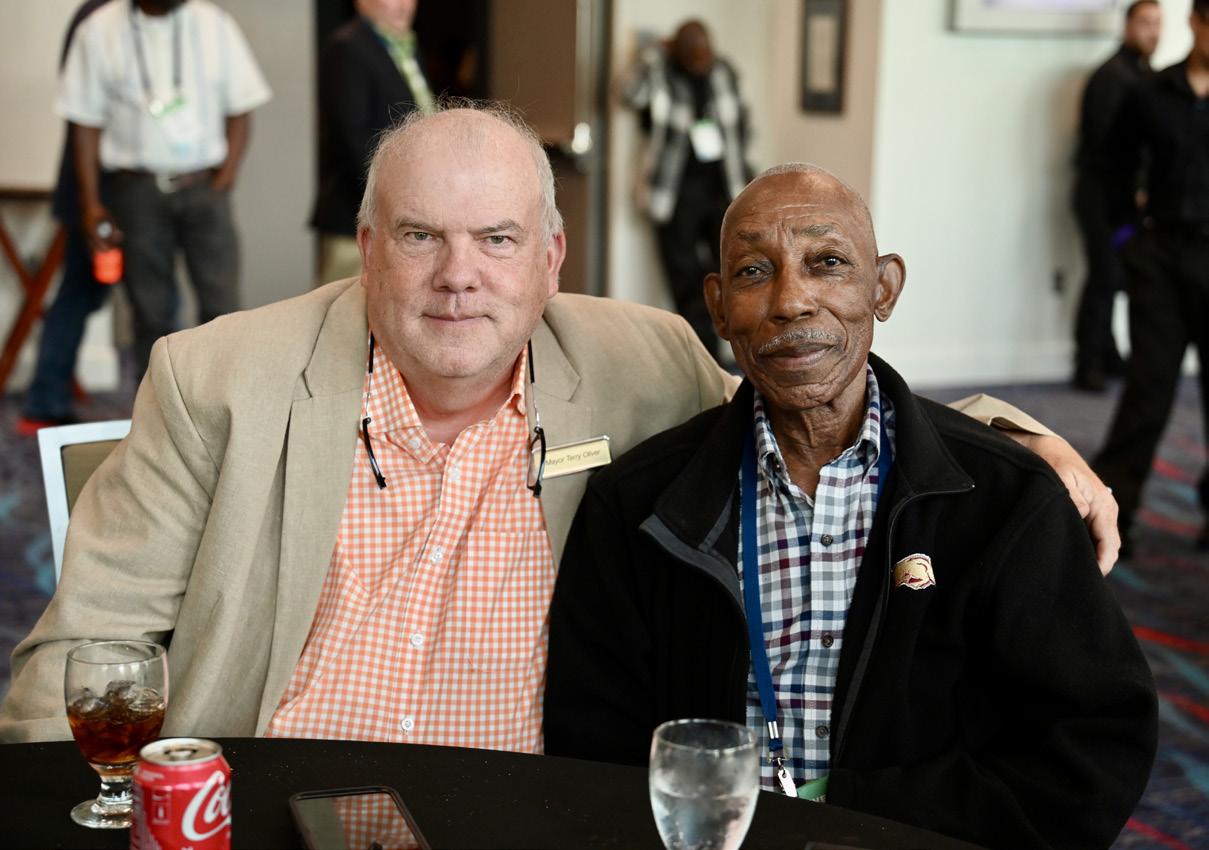
CONVENTION 91 BY THE NUMBERS: MORE THAN 1,300 ATTENDEES

FROM OVER 190 ARKANSAS MUNICIPALITIES
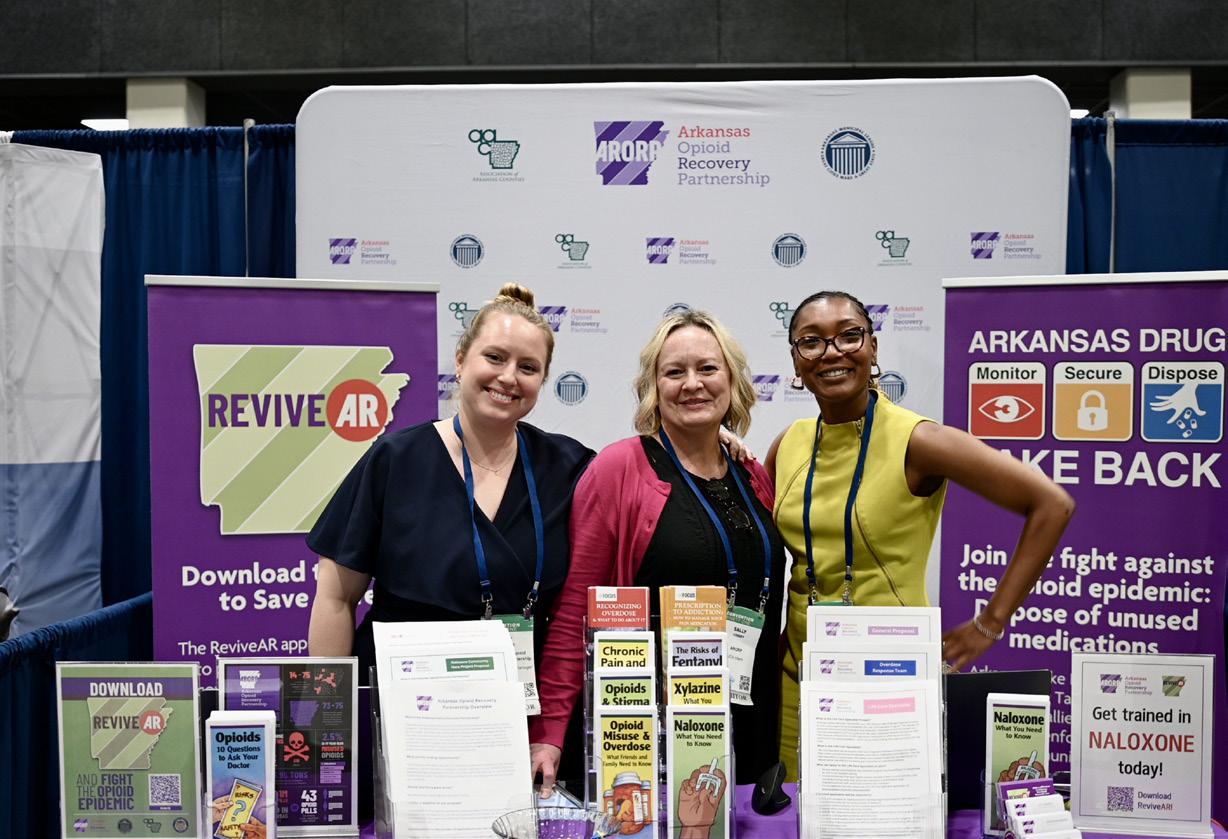
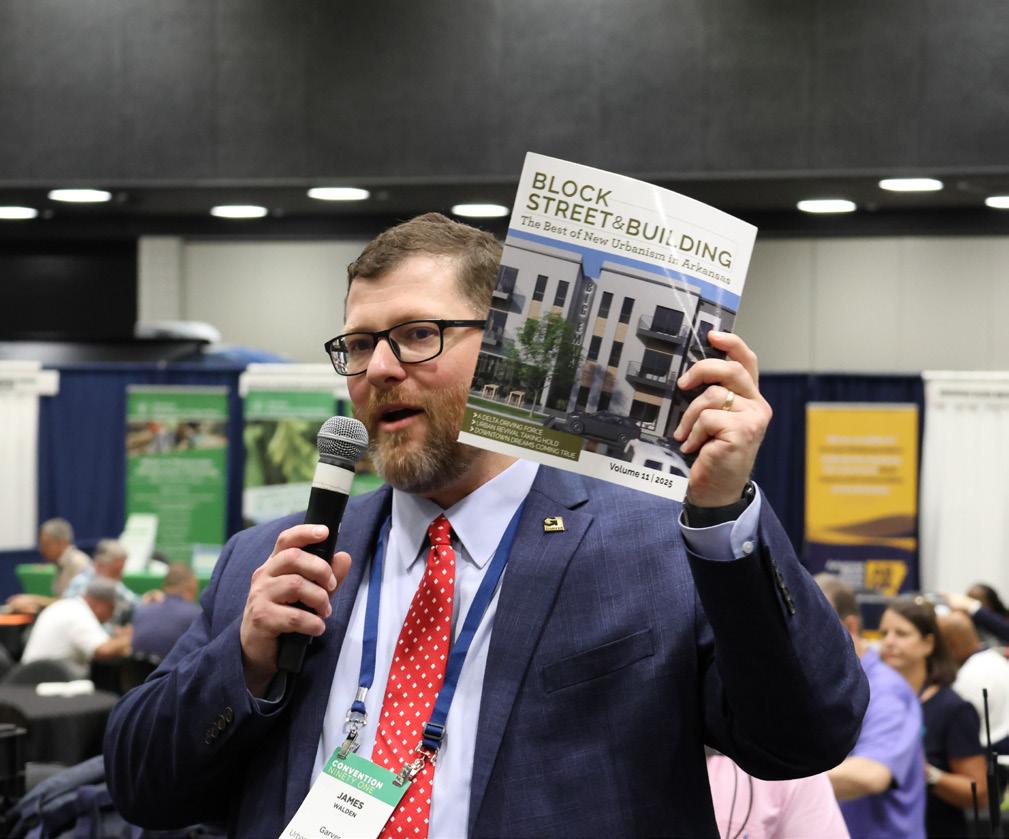
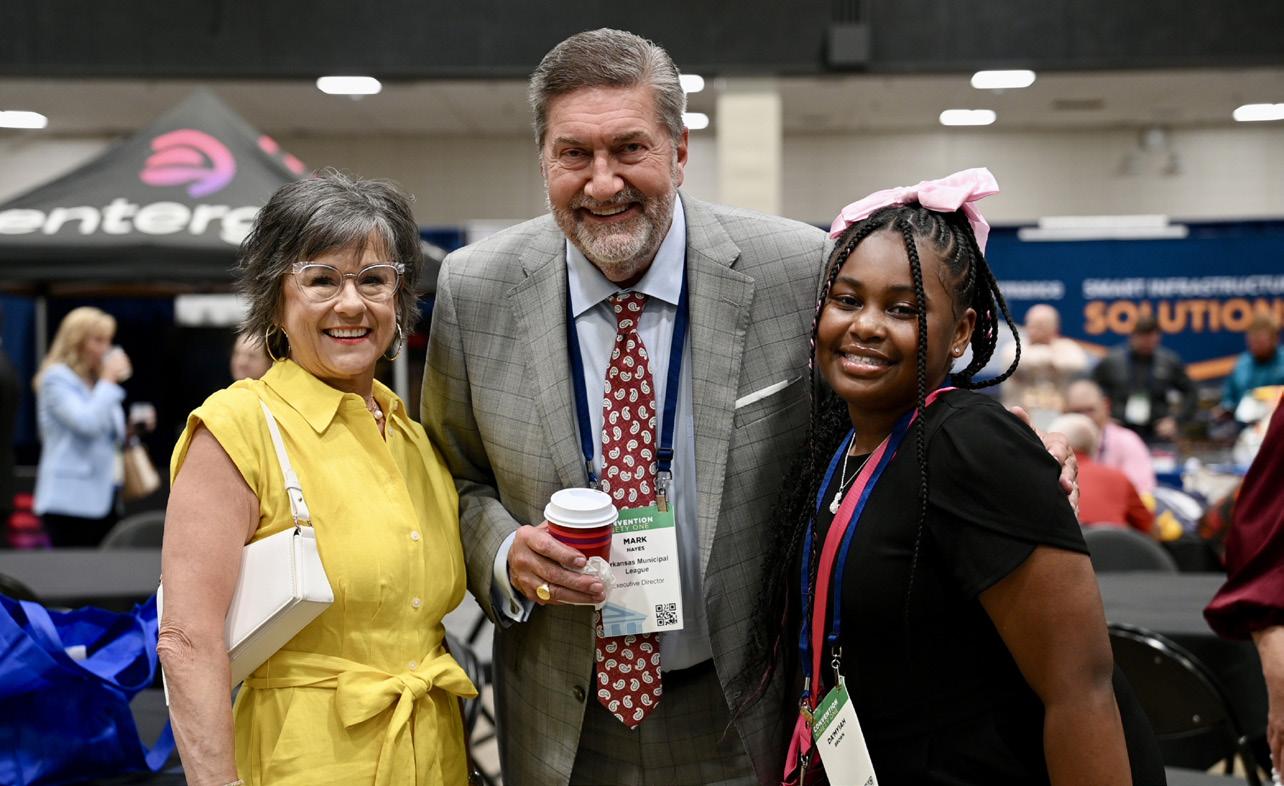
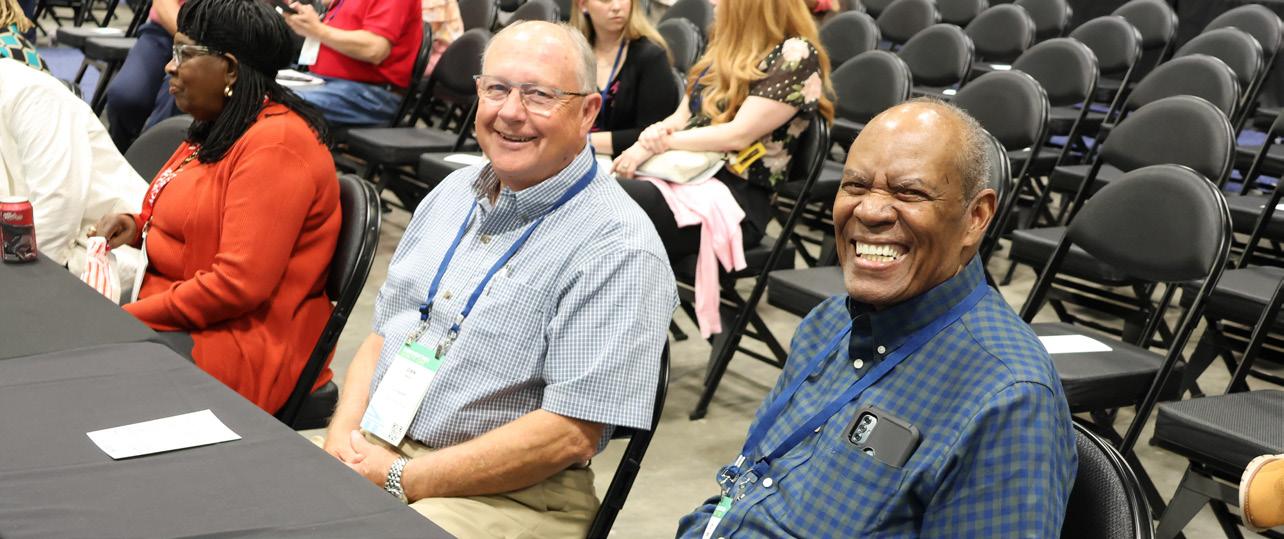
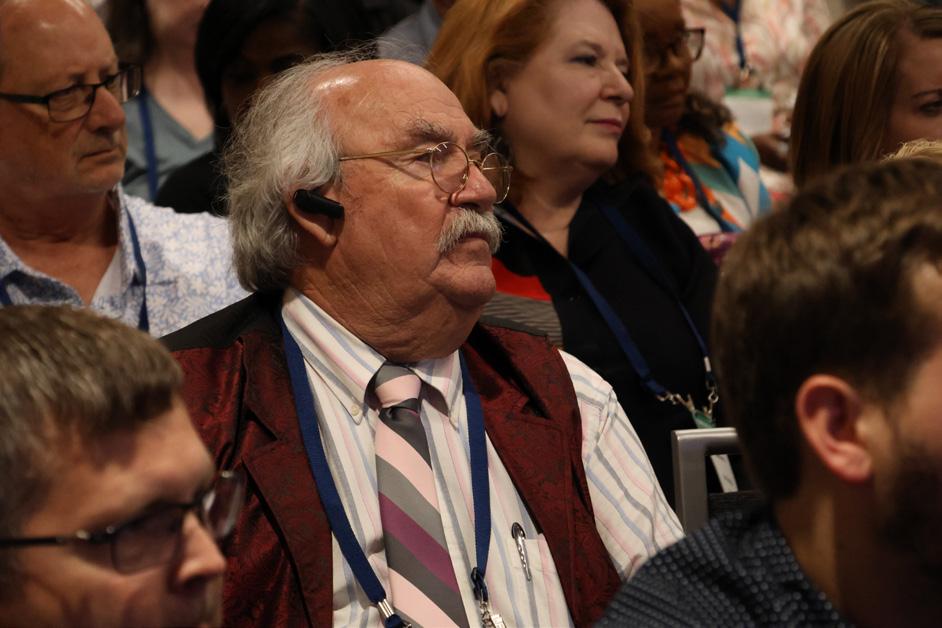
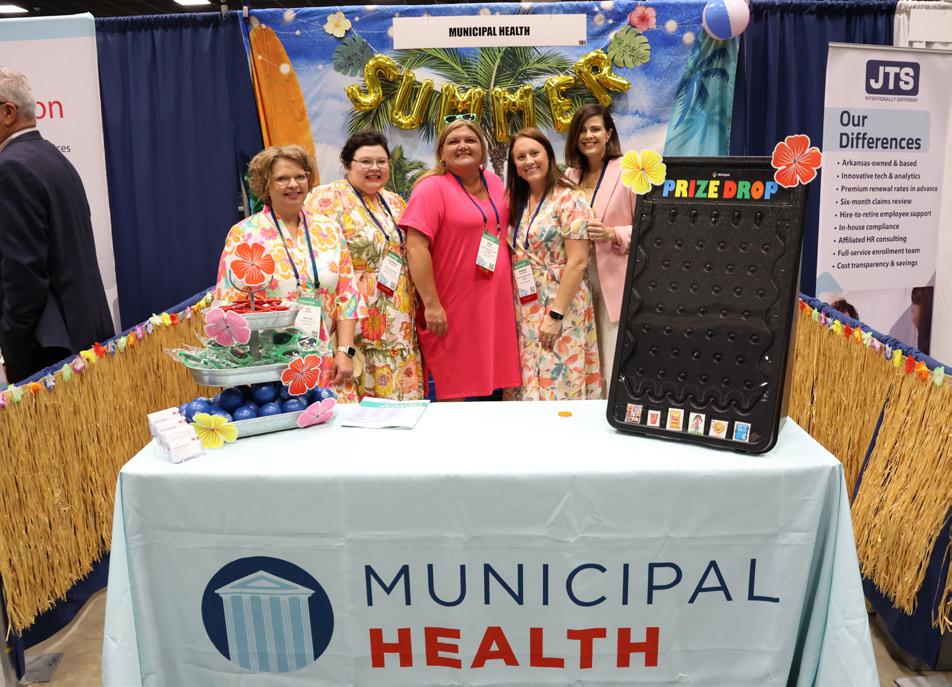
CONVENTION 91 BY THE NUMBERS
279 MEMBERS FROM CITIES OF THE LARGE FIRST CLASS
Arkadelphia • Batesville • Bella Vista • Benton • Bentonville • Blytheville • Bryant • Cabot
Camden • Centerton • Conway • El Dorado • Fayetteville • Forrest City • Fort Smith
Harrison • Hot Springs • Jacksonville • Jonesboro • Little Rock • Magnolia • Malvern • Marion
Maumelle • Mountain Home • North Little Rock • Paragould • Pine Bluff • Rogers • Russellville Searcy • Sherwood • Siloam Springs • Springdale • Van Buren • West Memphis
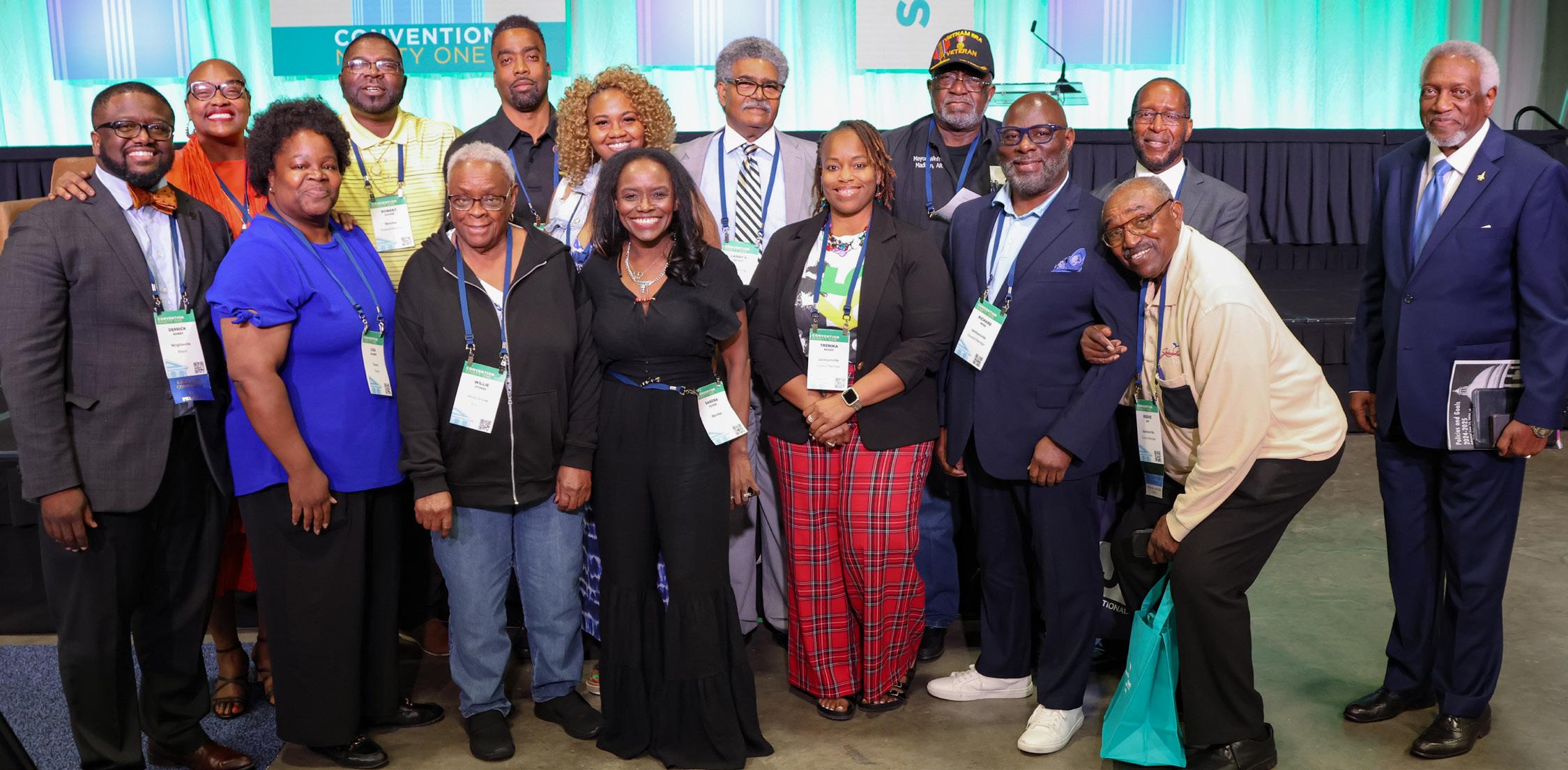
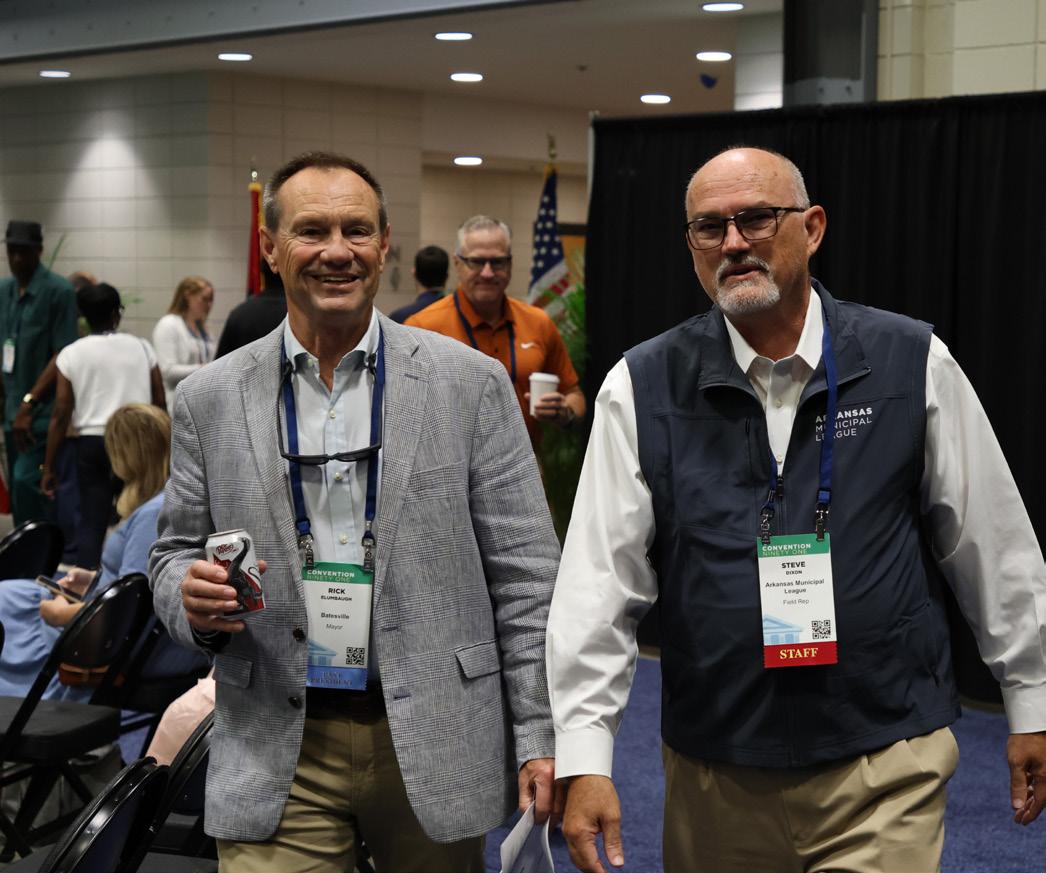

CONVENTION 91 BY THE NUMBERS
226 MEMBERS FROM CITIES OF THE FIRST CLASS
Alexander • Alma • Arkadelphia • Ashdown • Barling • Beebe • Berryville • Brinkley
Cherokee Village • Clarksville • Clinton • Crossett • Dardanelle • De Queen • Dumas • Elkins
Farmington • Gentry • Green Forest • Greenbrier • Greenwood • Hamburg • Heber Springs
Helena-West Helena • Hope • Hoxie • Johnson • Lake Village • Lowell • Manila • Marianna
Marked Tree • McGehee • Mena • Morrilton • Mountain View • Nashville • Newport • Osceola
Ozark • Paris • Pea Ridge • Pocahontas • Pottsville • Prescott • Sheridan • Stuttgart
Trumann • Vilonia • Waldron • Walnut Ridge • Ward • Warren • Wynne
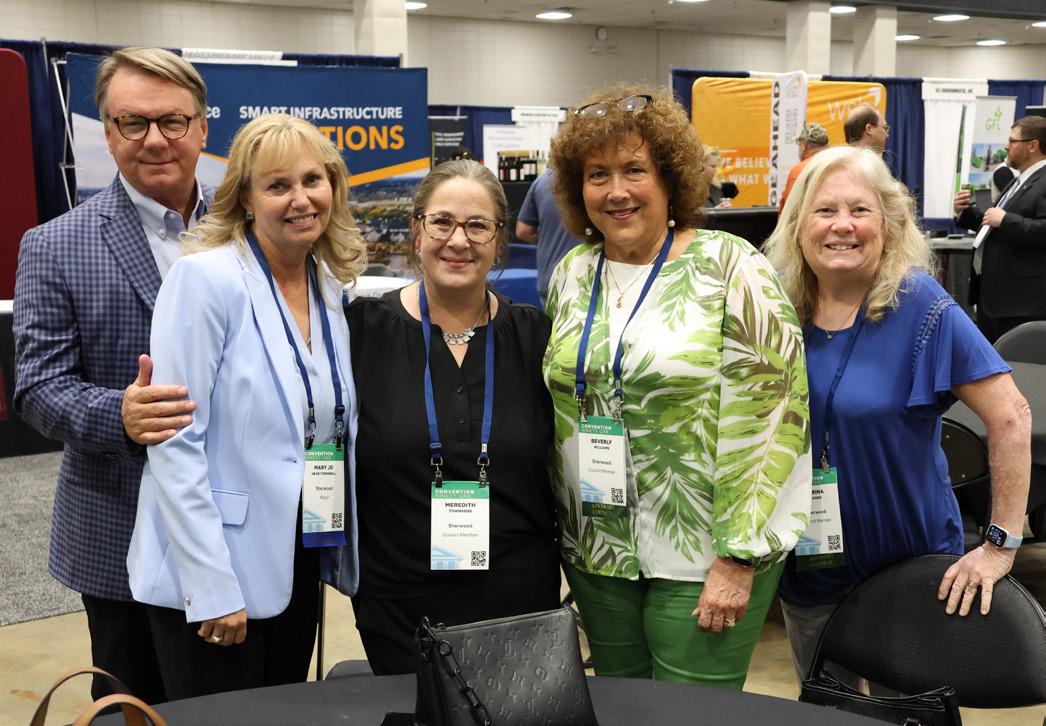
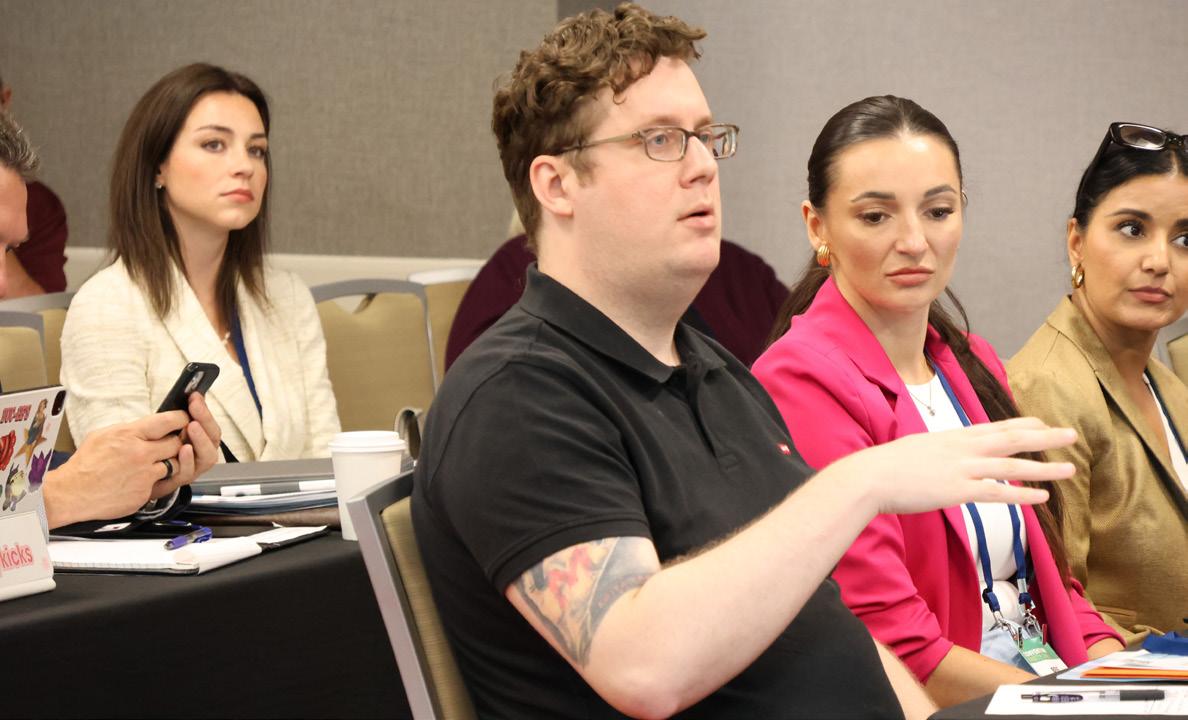
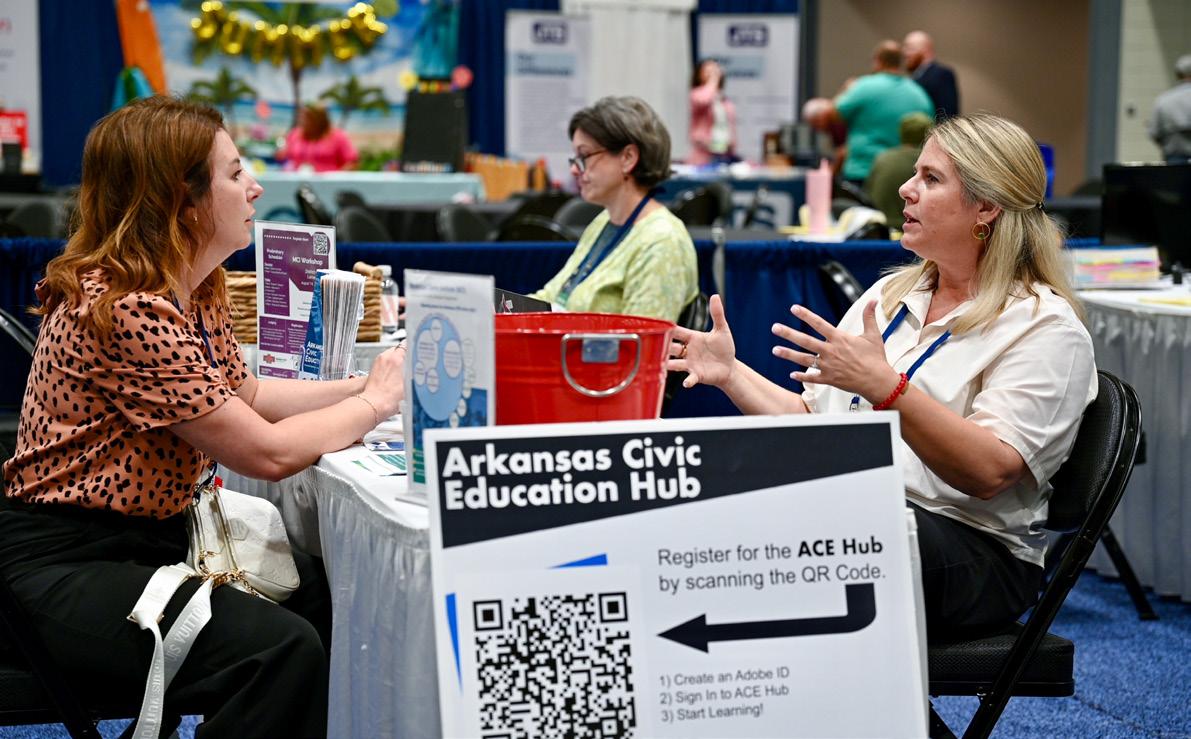
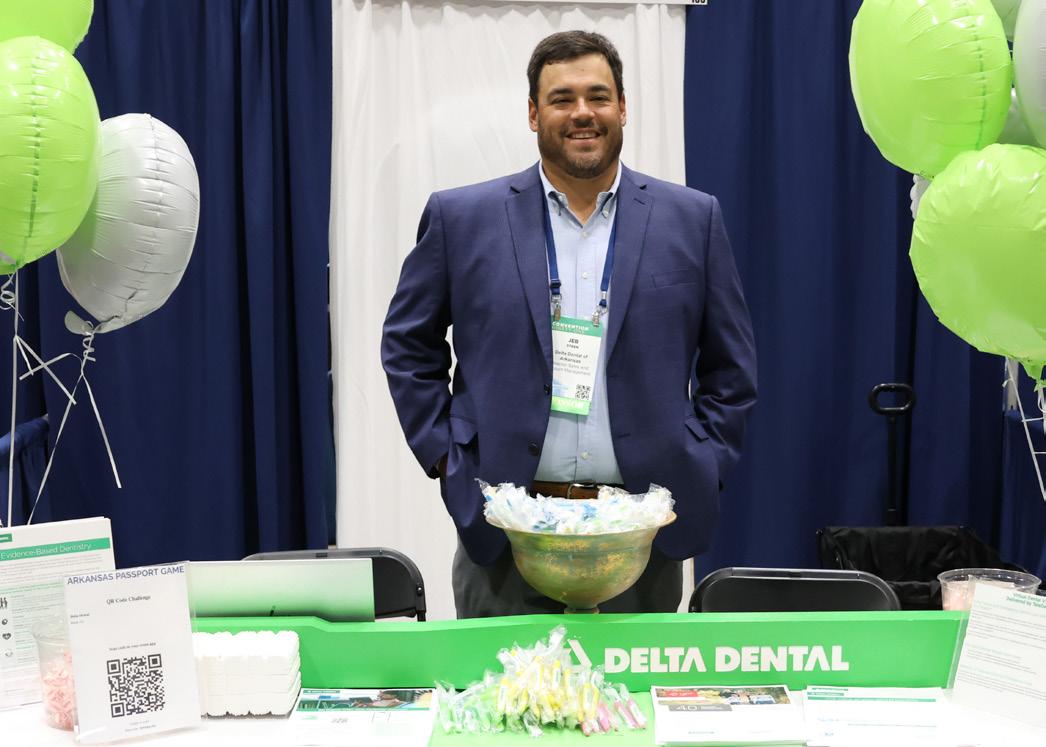
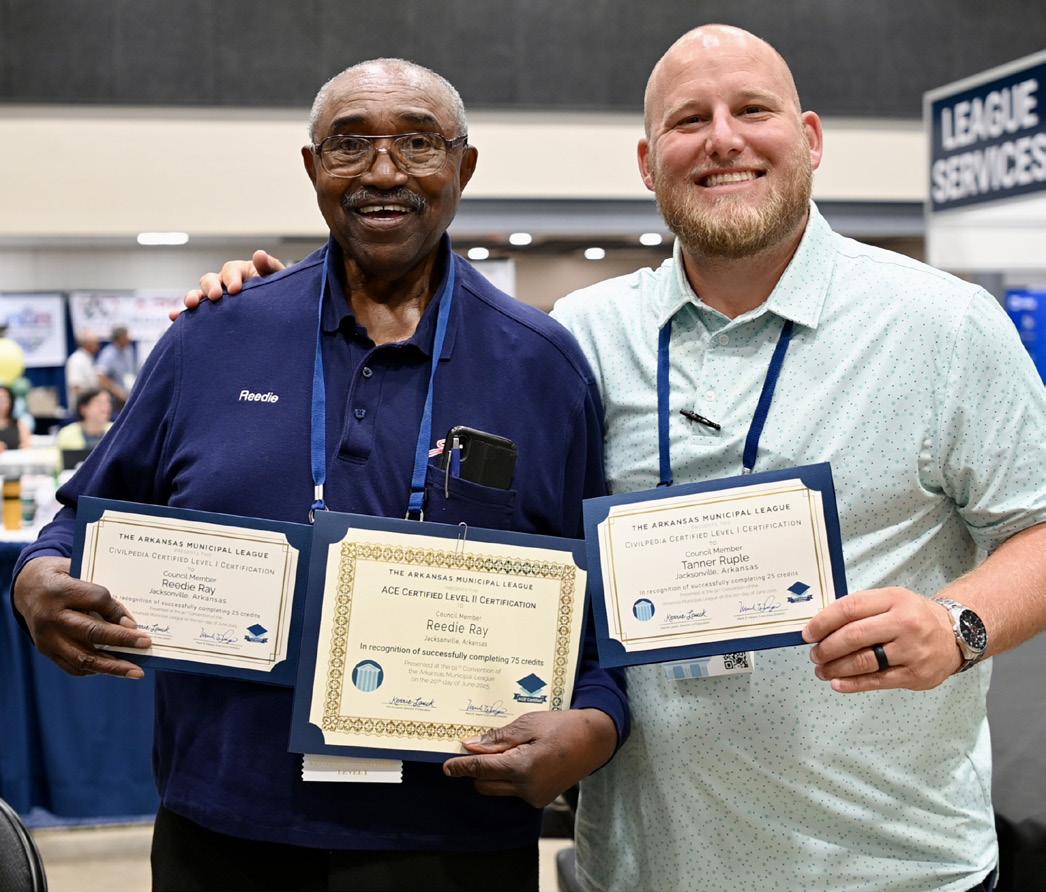
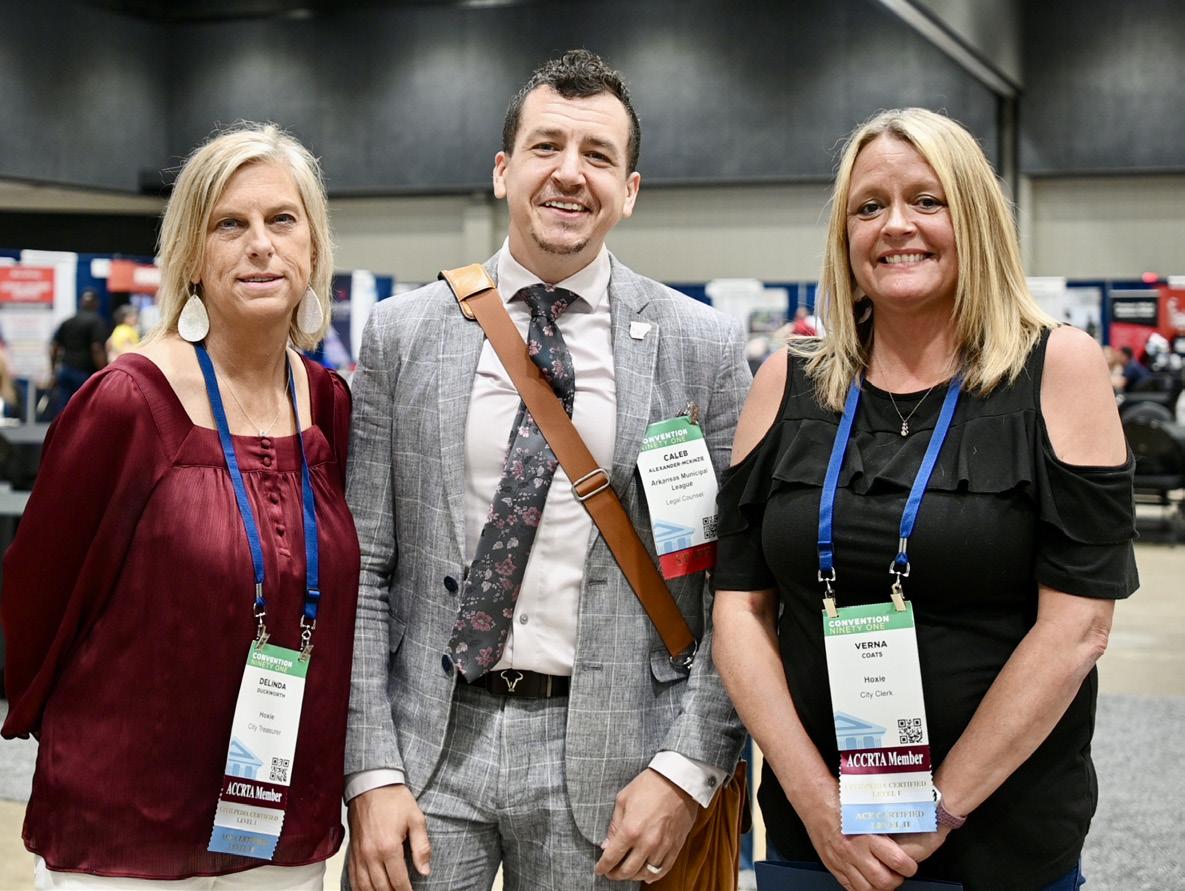
CONVENTION 91 BY THE NUMBERS
205 MEMBERS FROM CITIES OF THE SECOND CLASS
Altheimer • Altus • Ash Flat • Augusta • Austin • Black Rock • Blevins • Bono • Briarcliff
Brookland • Caddo Valley • Calico Rock • Carlisle • Cave City • Cave Springs
Cedarville • Charleston • Cherry Valley • Cotton Plant • Decatur • Des Arc • Dover • Egypt
Elaine • Elm Springs • Eudora • Eureka Springs • Fairfield Bay • Foreman • Gassville • Goshen
Gould • Grady • Gravette • Gurdon • Hardy • Harrisburg • Highland • Holly Grove • Horseshoe
Bend • Huntington • Huntsville • Jasper • Keiser • Kibler • Lakeview • Lamar • Leslie • Luxora
Madison • Mansfield • Marmaduke • Marshall • Marvell • McCrory • McNeil • Mineral Springs
Mitchellville • Monette • Montrose • Mount Ida • Murfreesboro • Norphlet • Ogden • Ola
Pangburn • Parkin • Portland • Rison • Smackover • Sparkman • Stamps • Star City
Stephens • Strong • Sulphur Springs • Tontitown • Turrell • Turrell City • Tyronza • Waldo Weiner • Winslow • Wrightsville
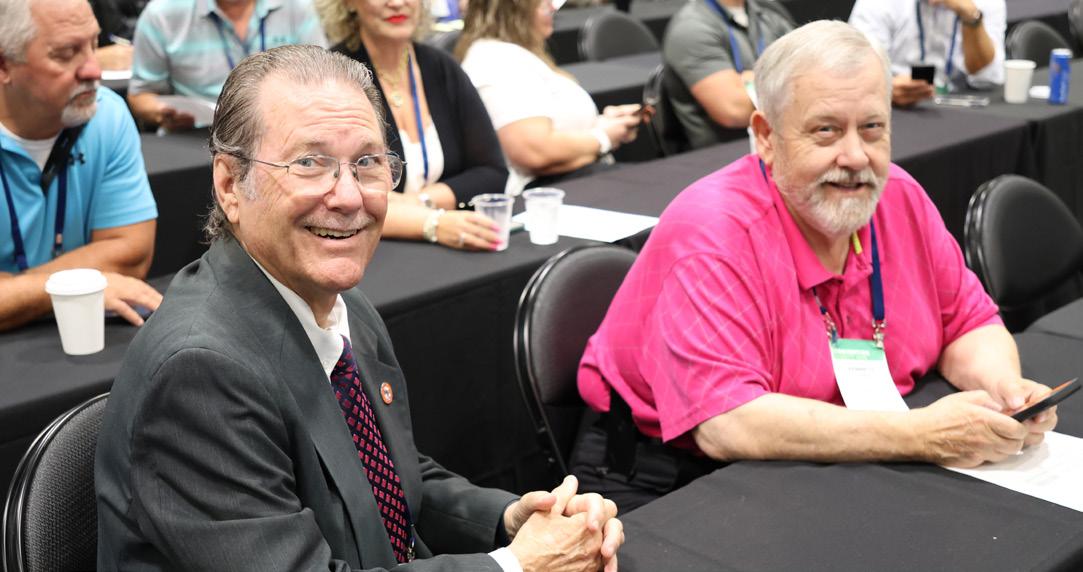
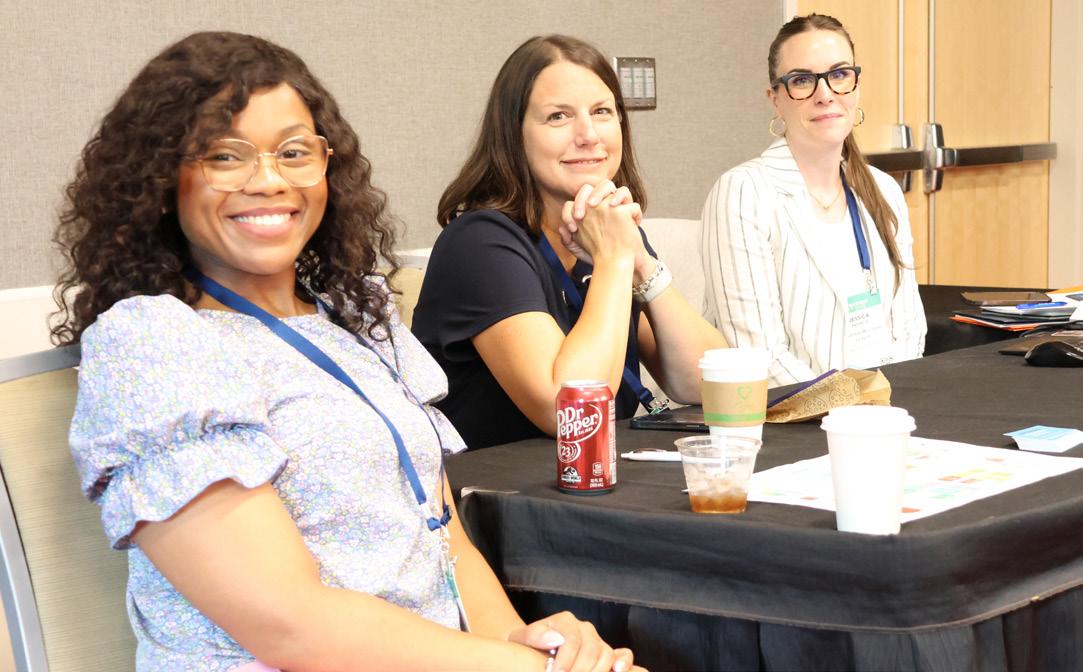
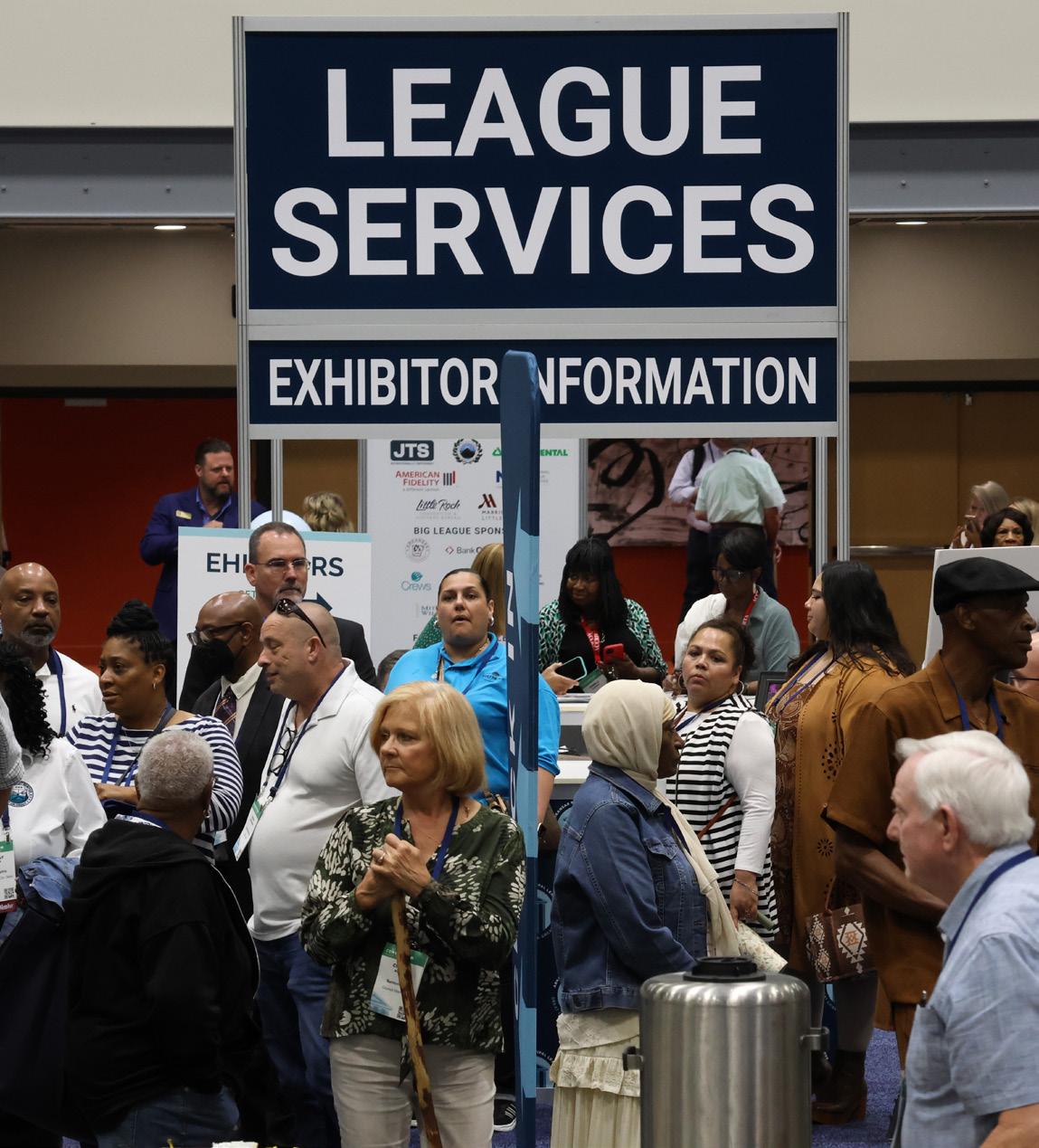

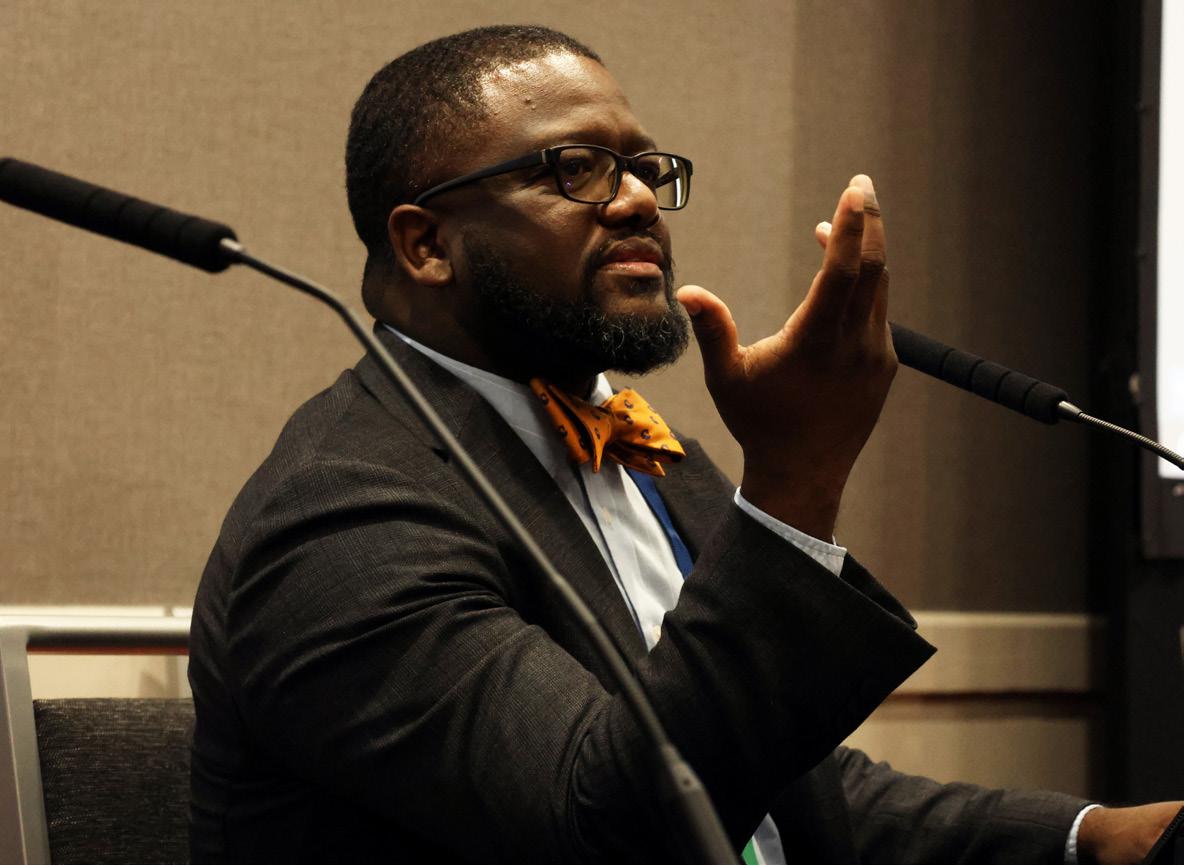
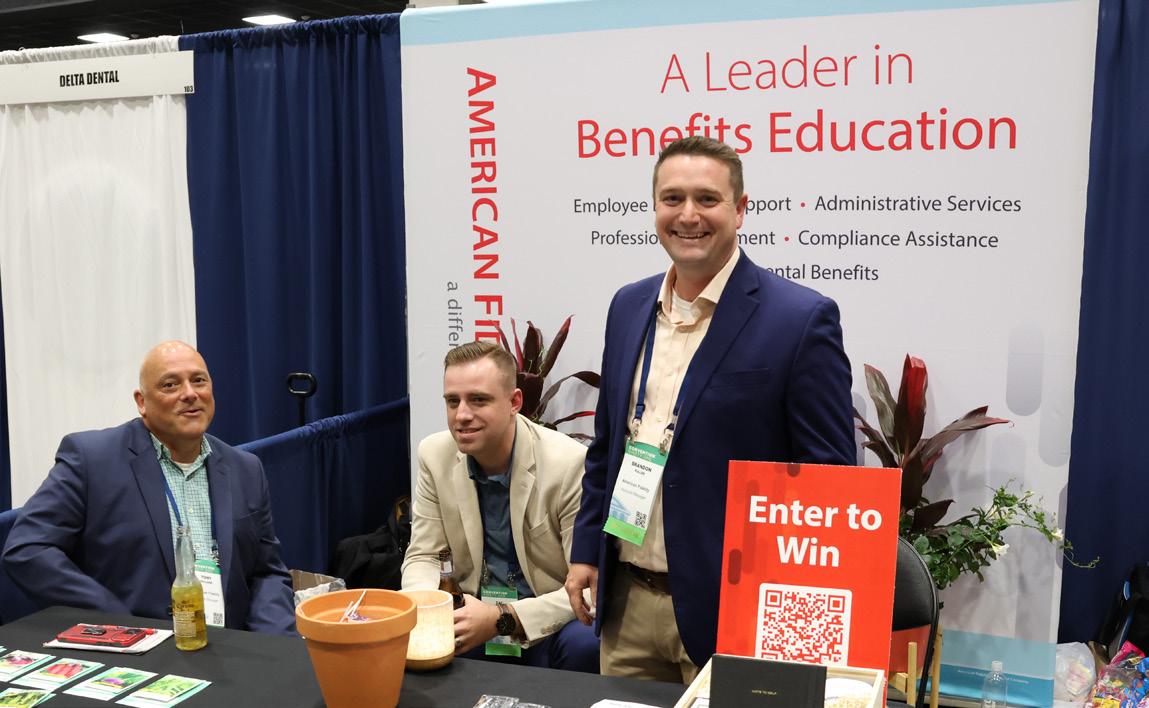
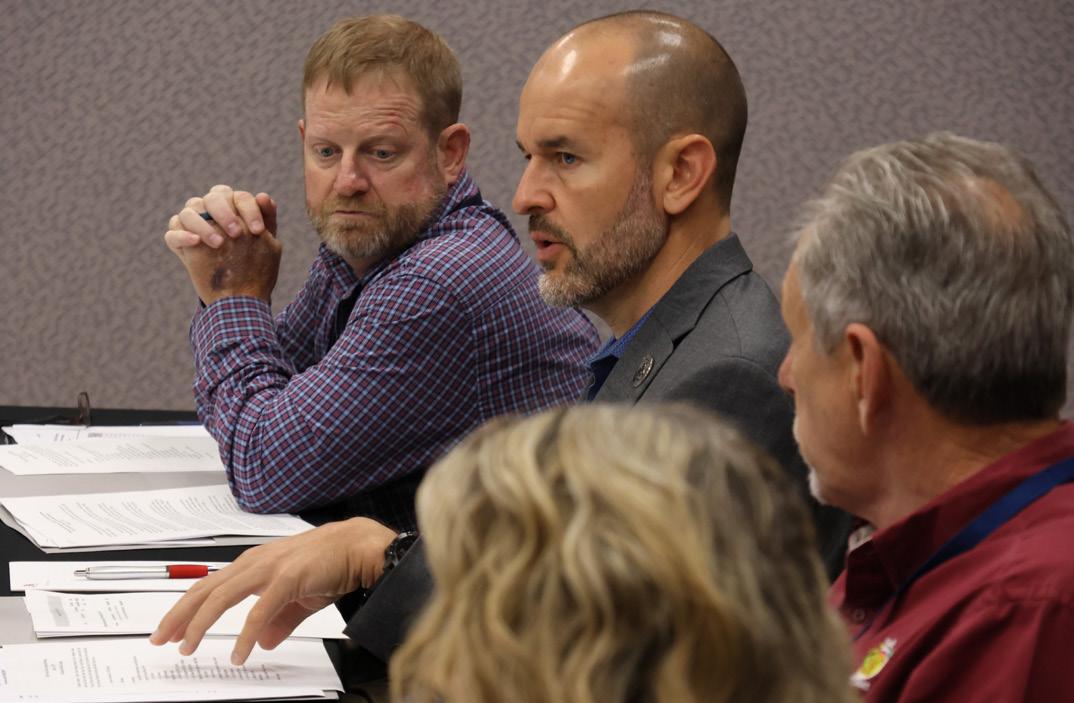
TOWNS
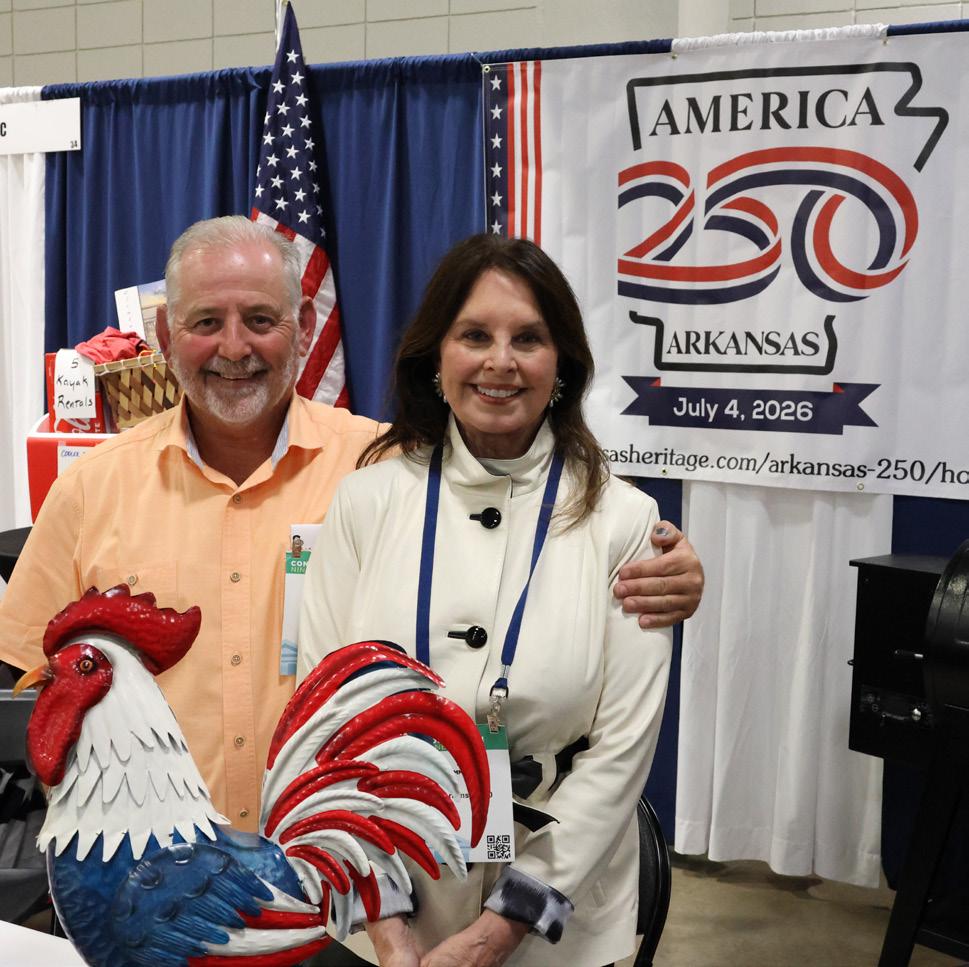
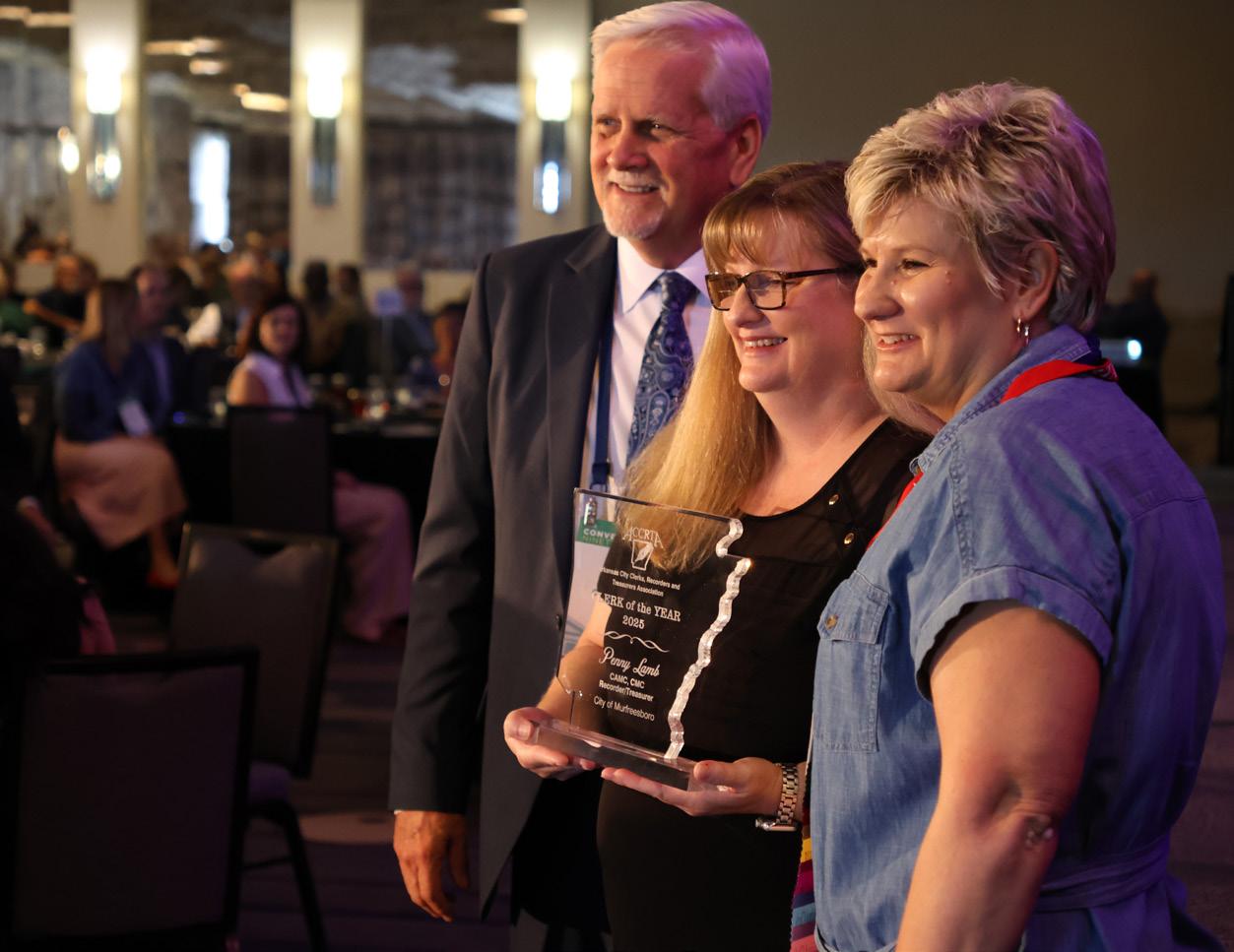
Casa • Dell • Diamondhead • Etowah • Fountain Hill • Fulton • Garland • Garland City • Highfill Holiday Island • Houston • Keo • Menifee • Powhatan • Rondo • Rosston • Twin Groves

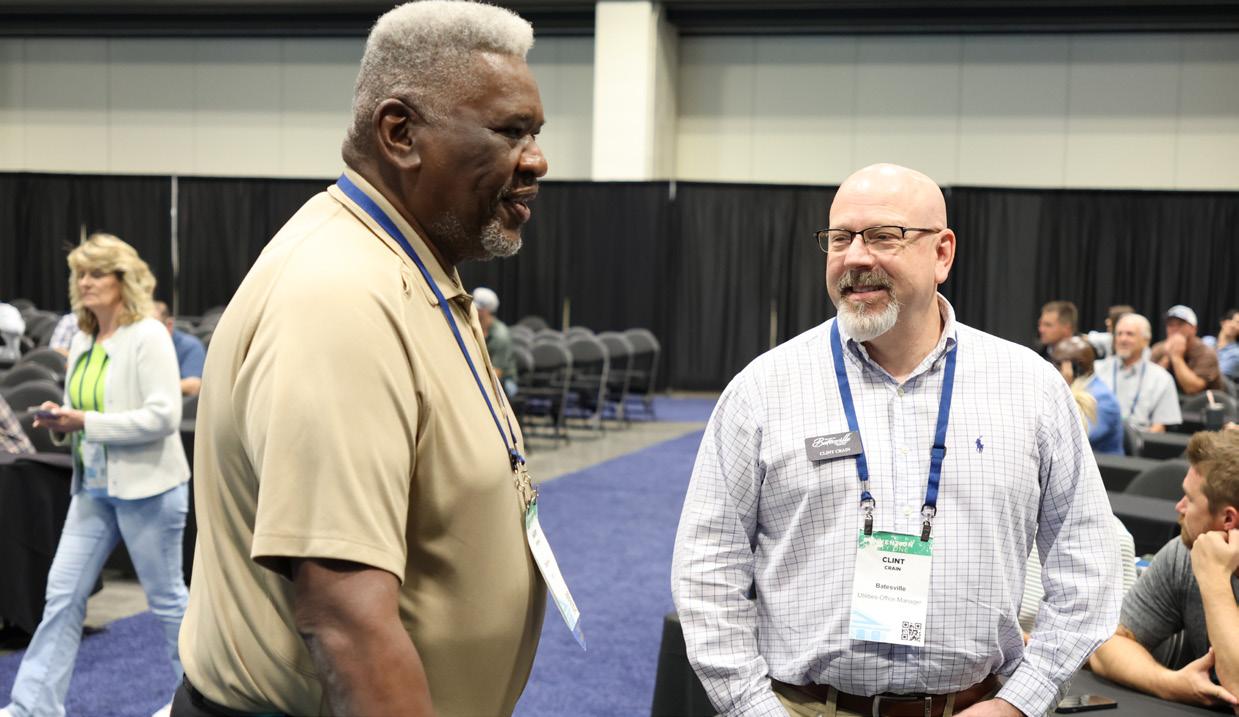
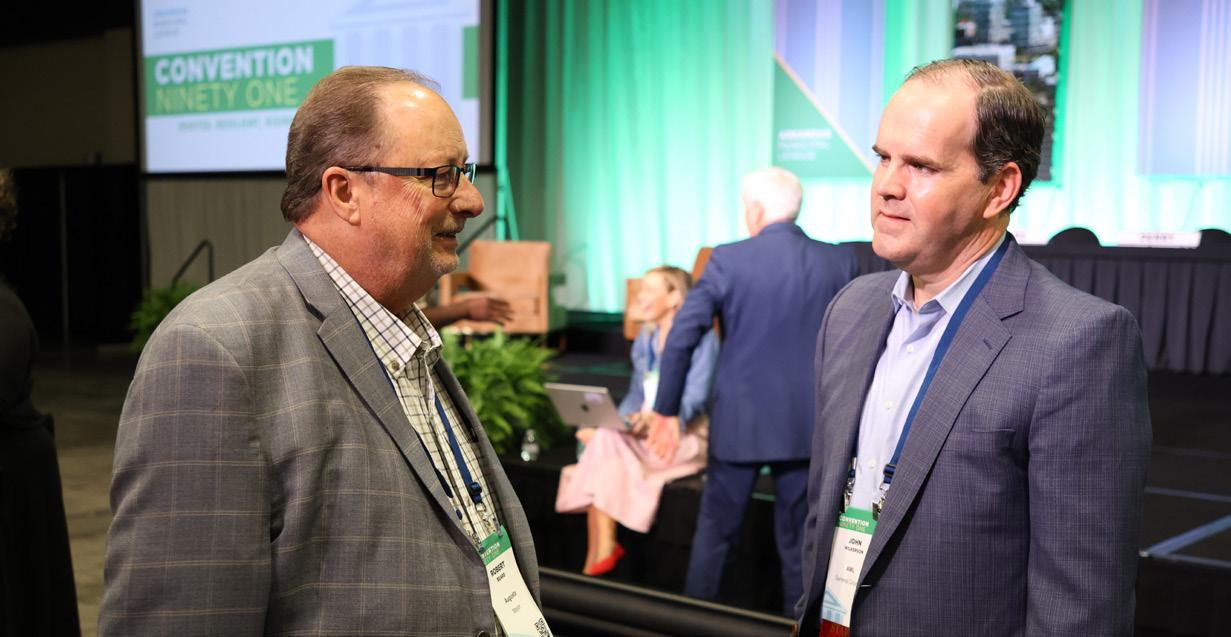
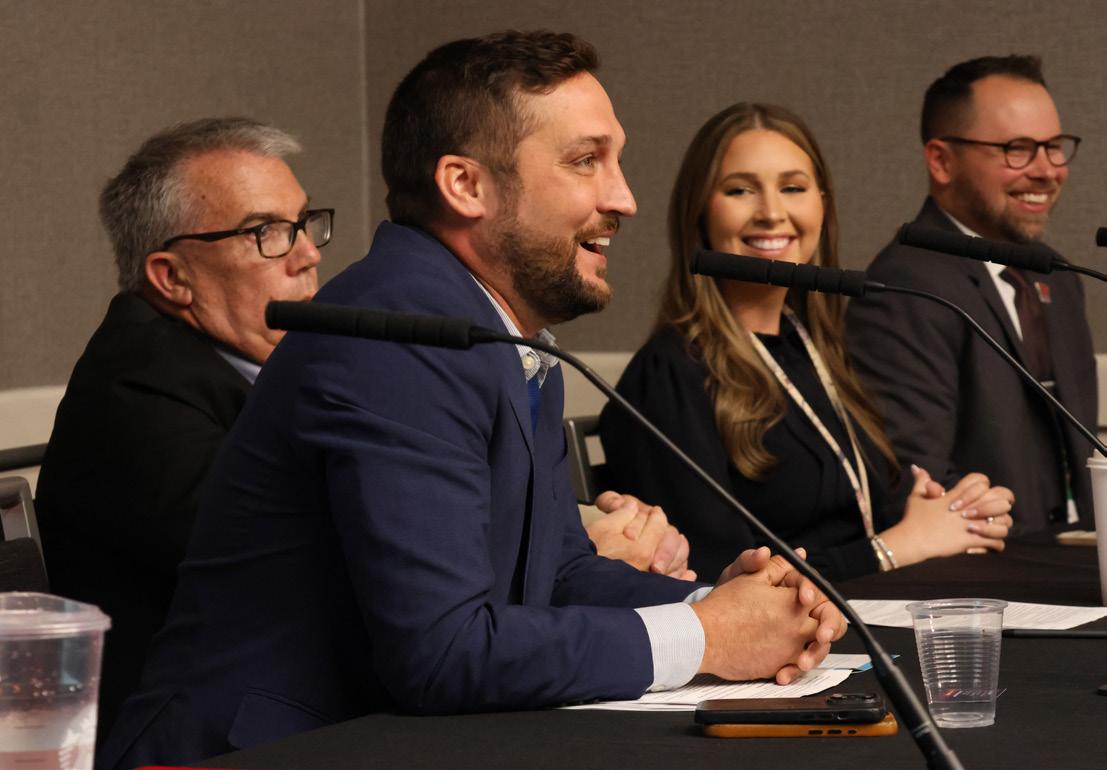
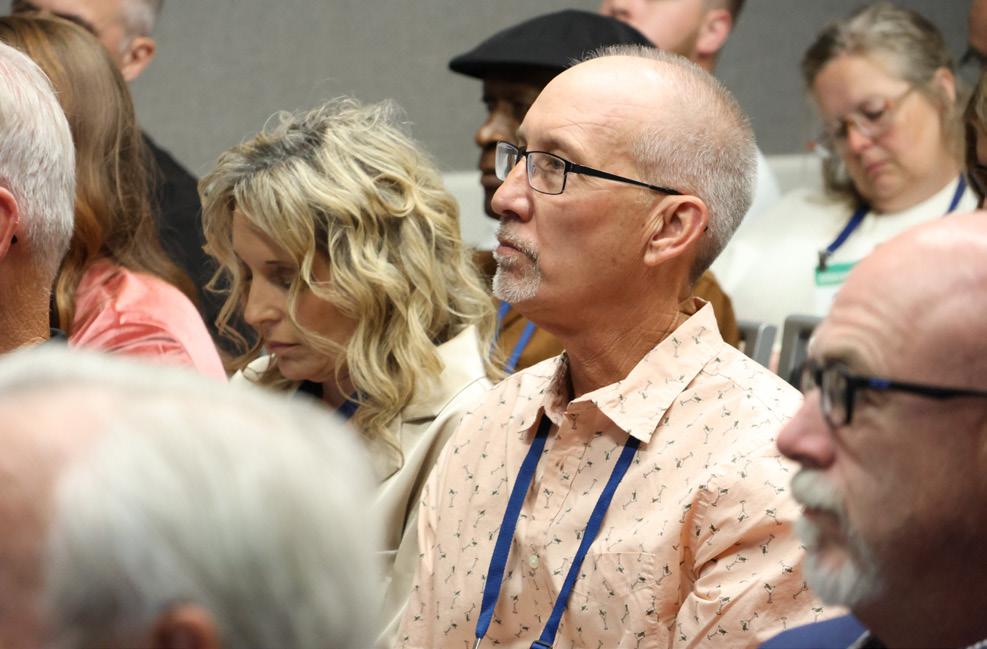
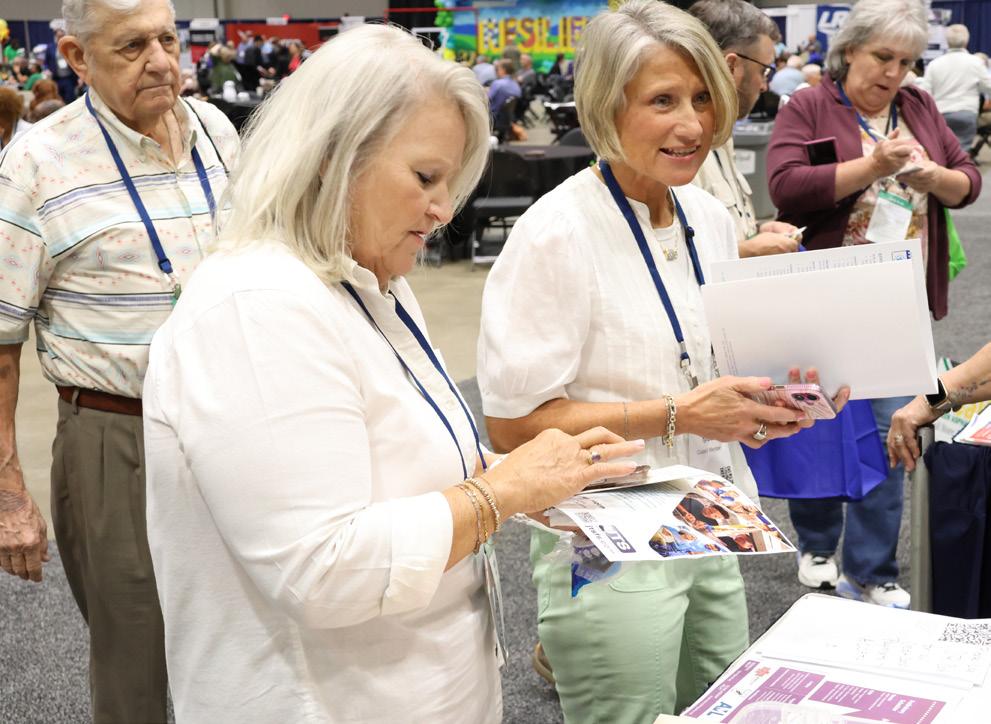
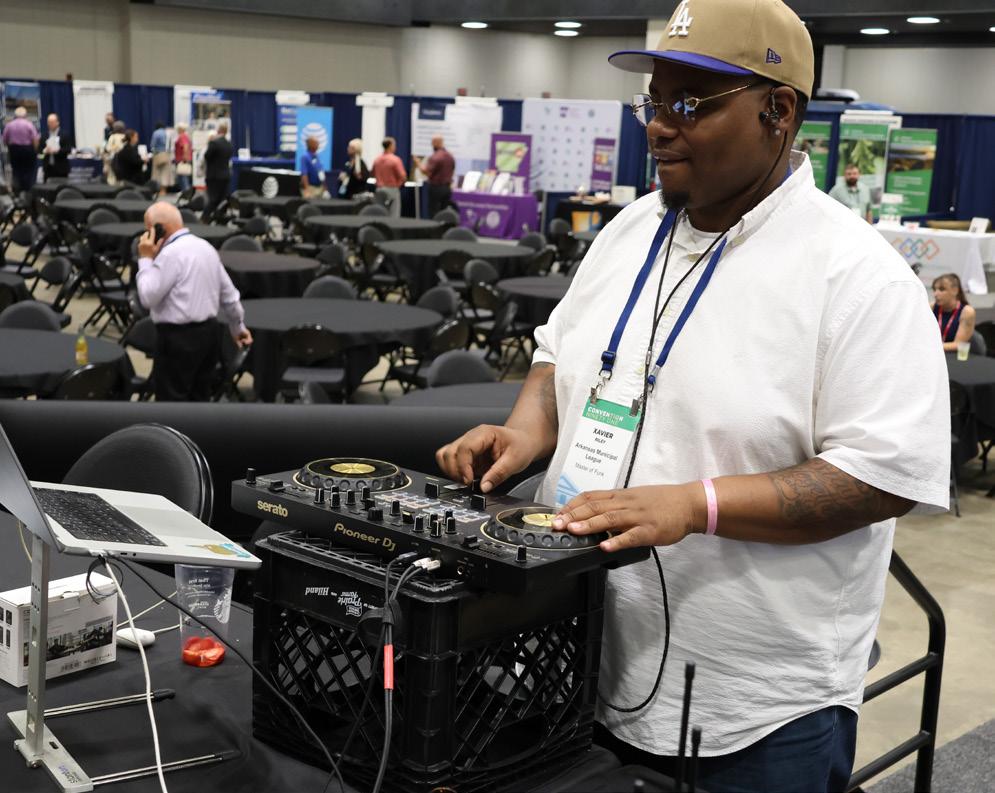
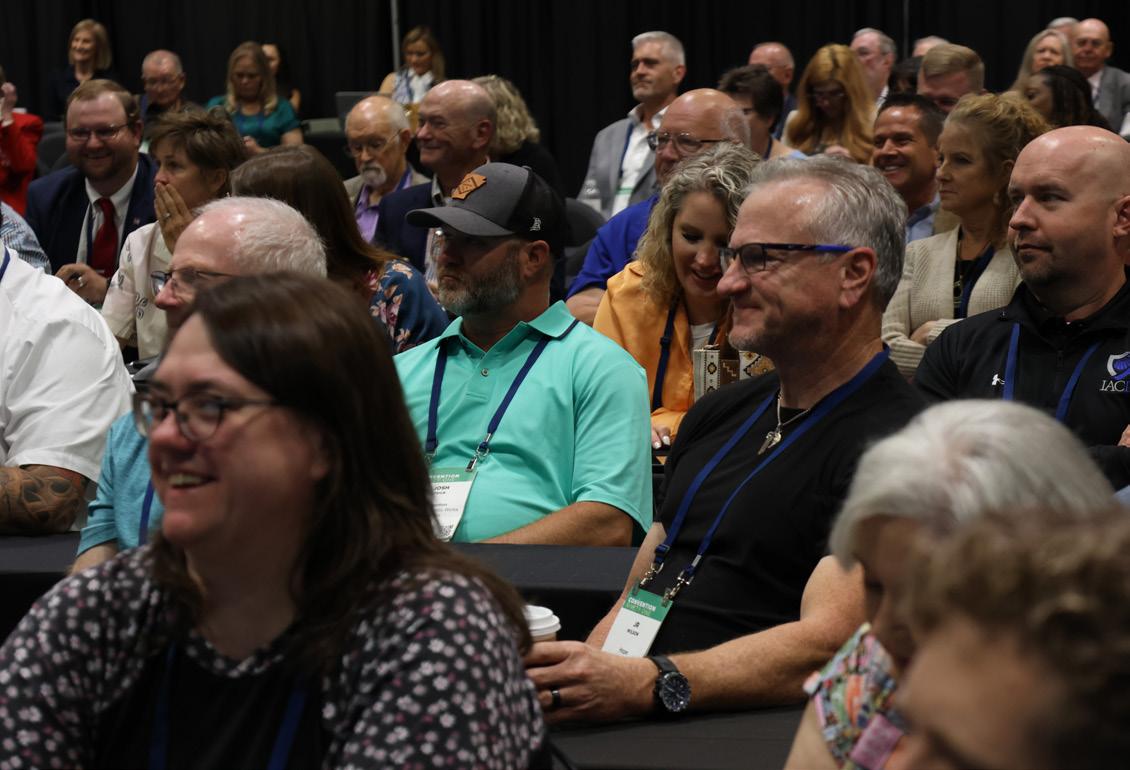
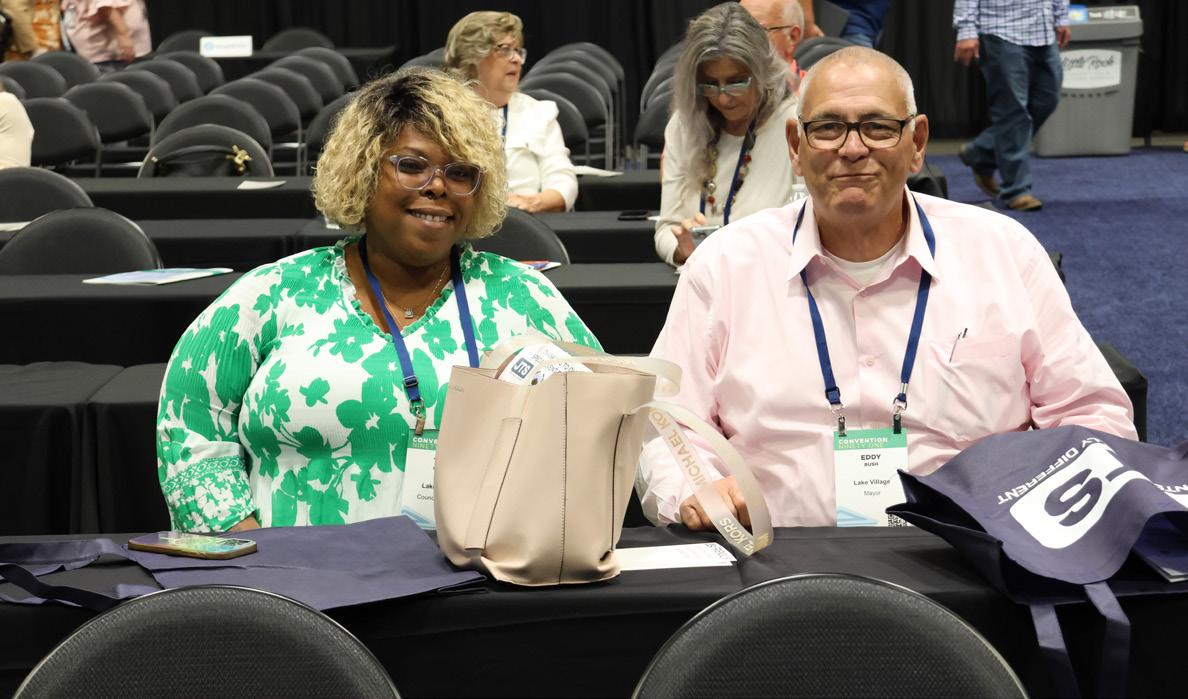
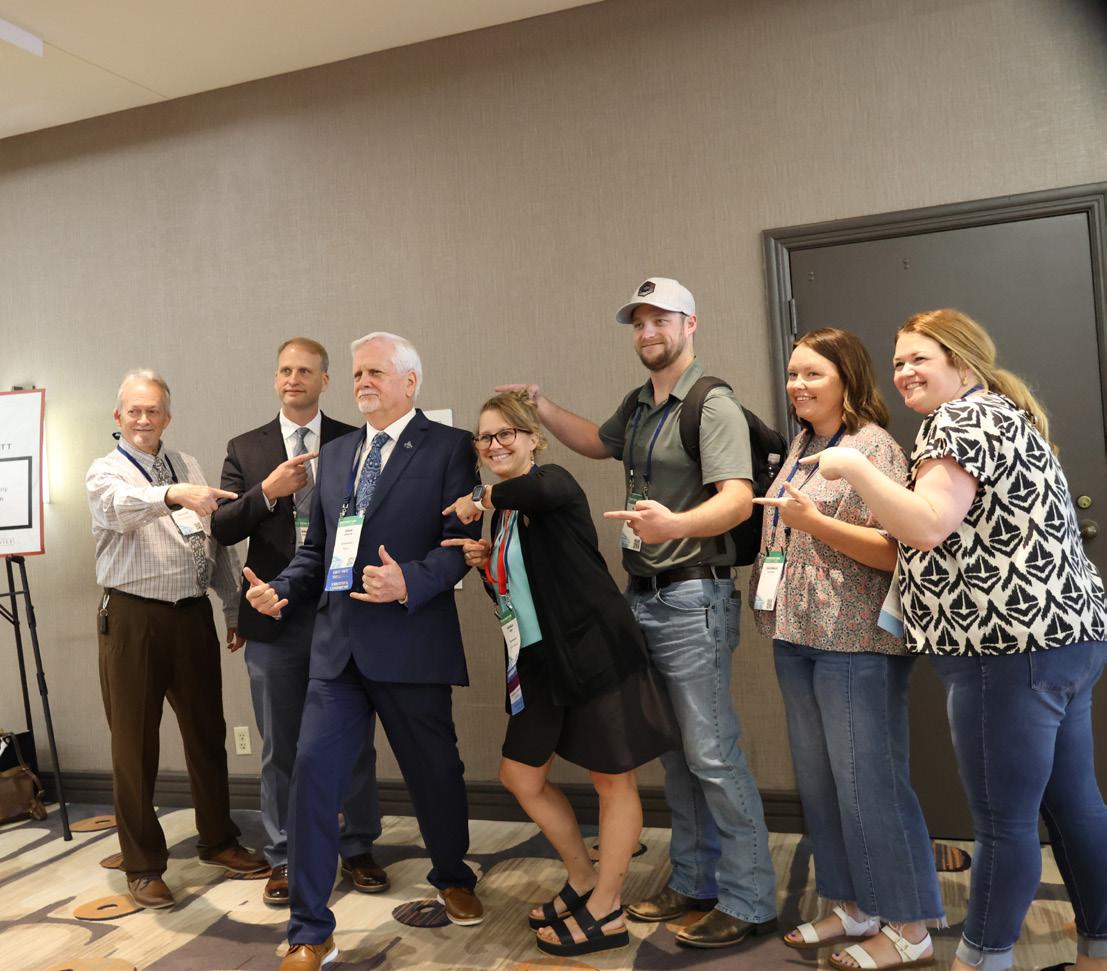
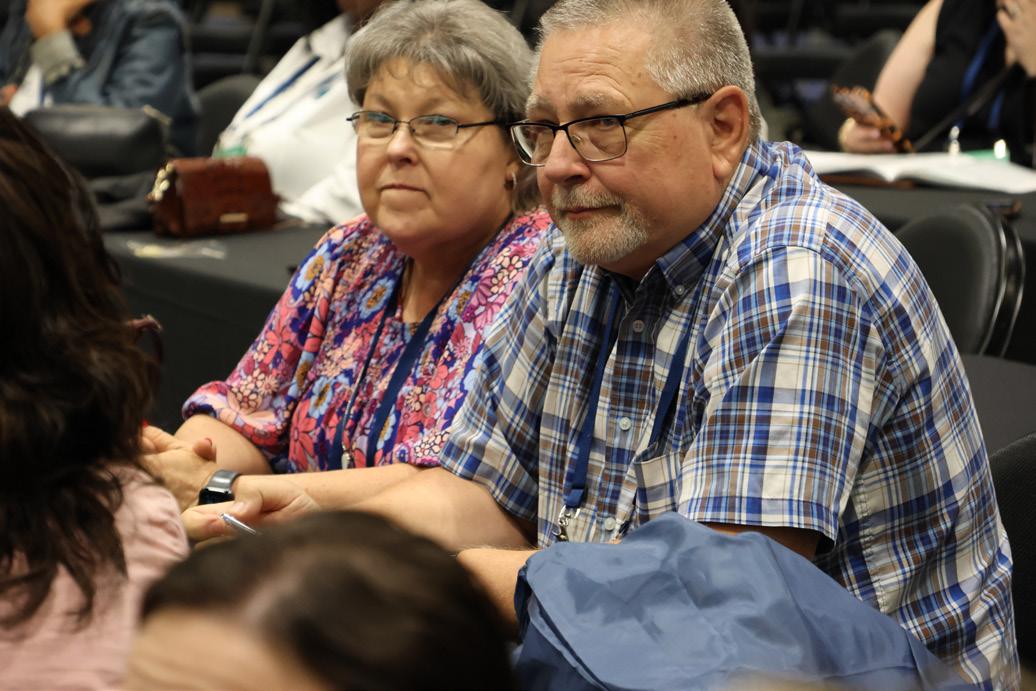
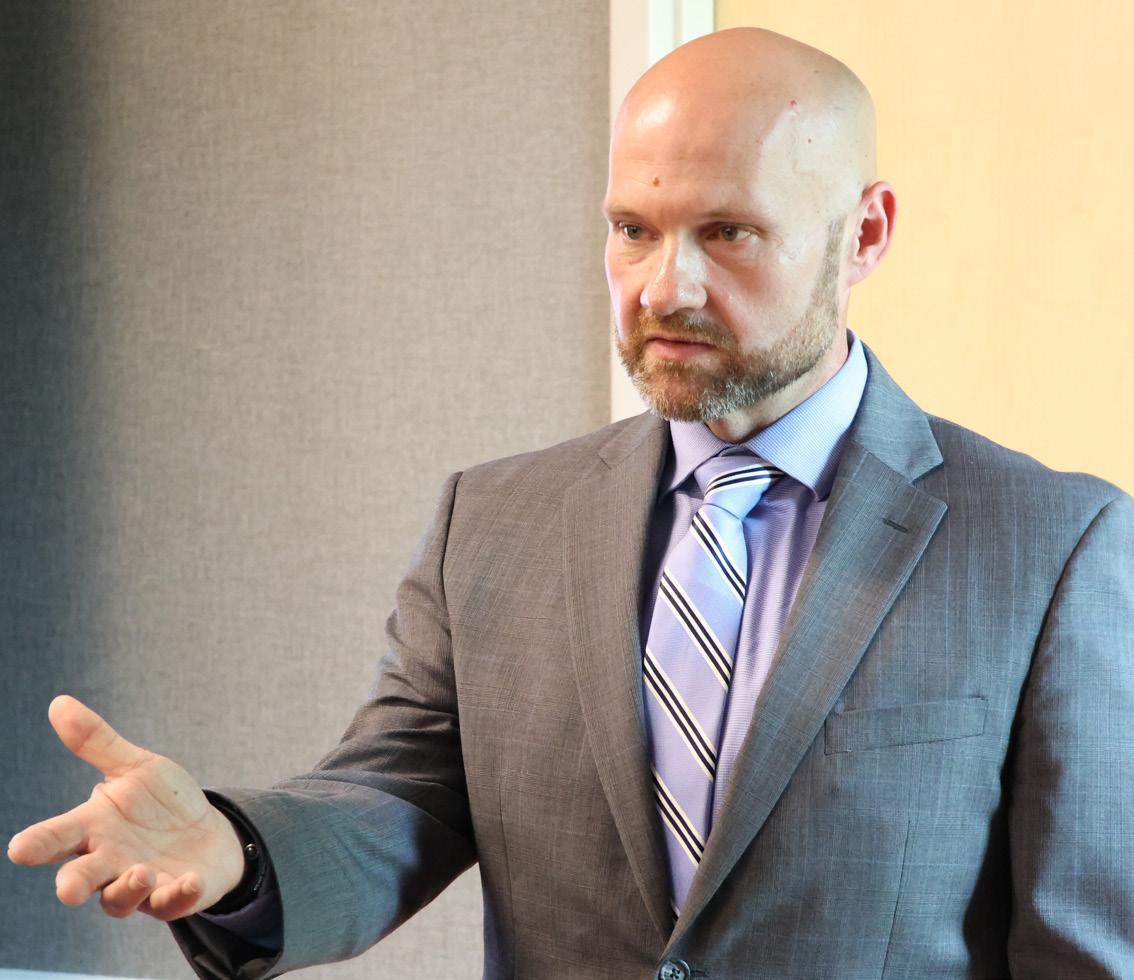
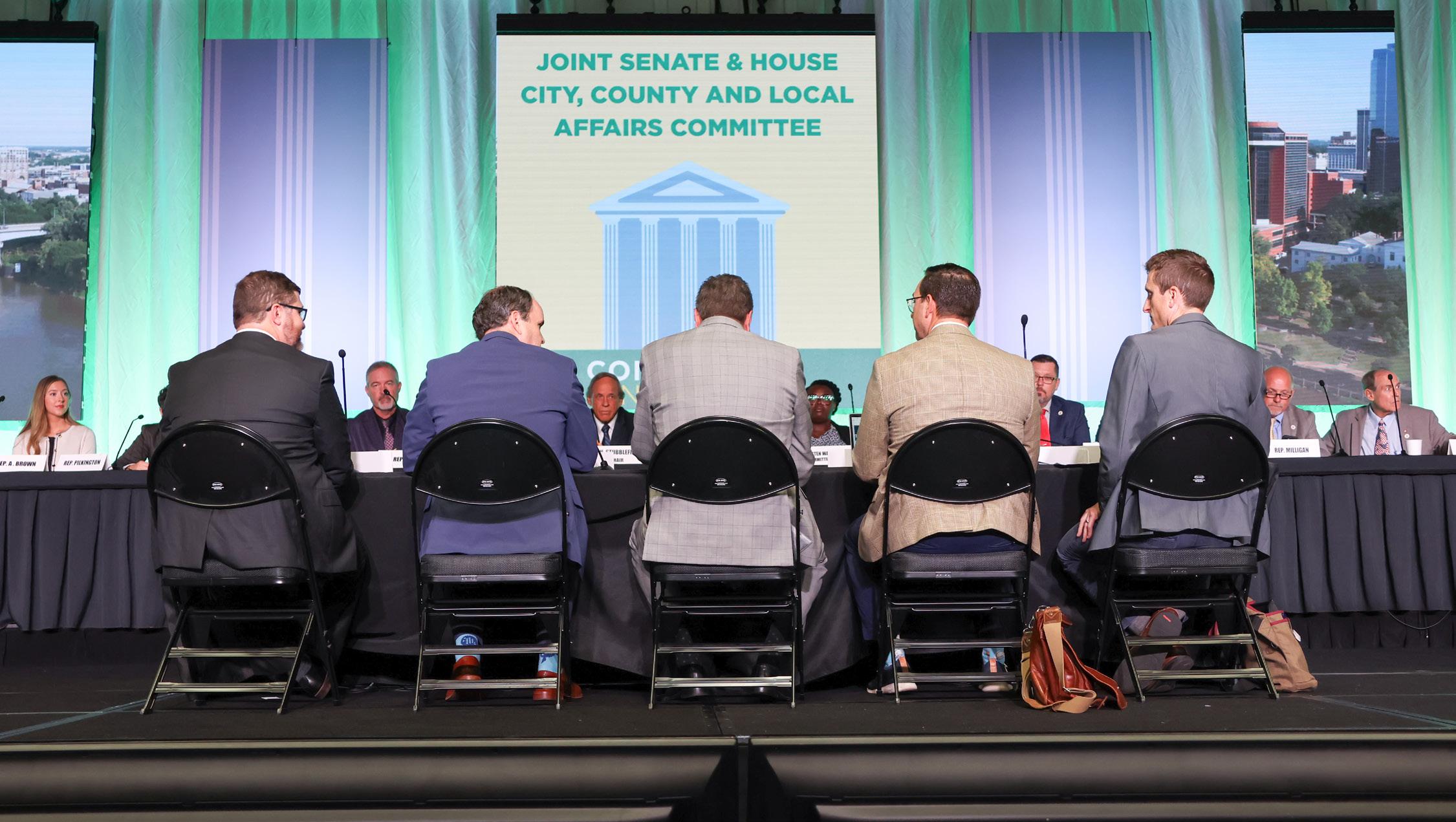
SPONSOR GUIDE

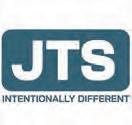
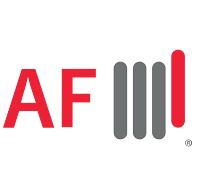
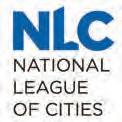
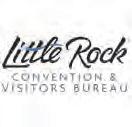
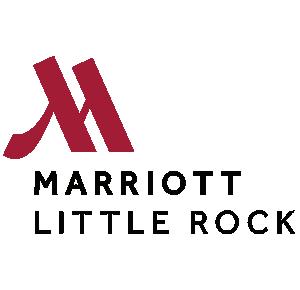


Delta Dental of Arkansas www.deltadentalar.com
501.425.9246
Happy Hour Sponsor
JTS Financial www.jtsfs.com
501.227.0194
Opening Night Dinner Sponsor
American Fidelity americanfidelity.com
800.662.1113
Signature Cocktail Sponsor
National League of Cities www.nlc.org
202.626.3000
Summer Cookout Sponsor
Little Rock Convention & Visitors Bureau www.littlerock.com
501-376-4781
Little Rock Marriott www.bit.ly/3gBMDDK
501-906-4000
Arkansas Roofing Kompany arkansasroofingkompany.com
501.513.9119
Big League Sponsor
Bank OZK www.ozk.com
501.320.4005
Big League Sponsor
Business Communications, Inc. www.bcianswers.com
601.427.4185
Big League Sponsor

Crews & Associates, Inc. www.crewsfs.com
501.978.7953
Big League Sponsor









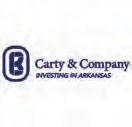

Henard Utility Products
www.henardutility.com
501.268.1987
Big League Sponsor
McClelland Consulting Engineers www.mce.us.com
870.717.0074
Big League Sponsor
Mitchell Williams Selig Gates & Woodyard P.L.L.C. www.mitchellwilliamslaw.com
501.688.8800
Big League Sponsor
Performance Services www.performanceservices.com/ arkansas 317.363.7717
Big League Sponsor
A-1 LED, LLC a1led.net
870.942.4277
Friends of the League
Asphalt Zipper Inc. asphaltzipper.com
888.947.7378
Friends of the League
AT&T www.att.com
501.563.8230
Friends of the League
Baldwin & Shell Construction www.baldwinshell.com
501.374.8677
Friends of the League
Brightspeed Business www.brightspeed.com
833.370.3248
Friends of the League
Carty, Harding & Hearn www.cartyco.com
501.647.0322
Friends of the League
CISCO www.cisco.com
800.553.6387
Friends of the League
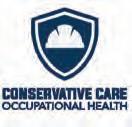
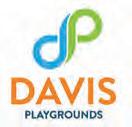









Conservative Care Occupational Health
conservativecareocchealth.com
501.918.9997
Friends of the League
Davis Playgrounds Inc
www.davisplaygrounds.com
501-920-6069 501-295-6523
Friends of the League
Entergy Arkansas www.entergy.com
501.541.1284
Friends of the League
Fire Hydrant Services and Repair
FlowHydrantServices.com
870.648.4801
Friends of the League
Friday, Eldredge & Clark, LLP
www.fridayfirm.com
501.370.1597
Friends of the League
Garver
501.376.3633
www.garverusa.com
Friends of the League
GFL Environmental, Inc.
800.564.4419
www.gflenv.com
Friends of the League
Heartland Business Systems hbs.net
800-236-7914
Friends of the League
i3 Verticals www.i3verticals.com
800.203.7981
Friends of the League
Lewis Architects Engineers lemvrw.com
501.223.9302
Friends of the League
LRS - South, LLC www.lrsrecycles.com
479-878-1384 479-878-1384
Friends of the League


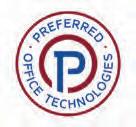








MBL Architecture mbl-arch.com
479.443.7121
Friends of the League
McGeorge Contracting Co., Inc. www.mcgeorgecontracting.com
501.490.1456
Friends of the League
Preferred Office Technologies www.preferred-office.com
479.782.7991
Friends of the League
Seal-Tite of Arklahoma, LLC sealtitearklahoma.myshopify.com 479.997.2449
Friends of the League
SIMMONS BANK www.simmonsbank.com
866.246.2400
Friends of the League
Southern Disaster Recovery www.gosdr.com
864.469.9776
Friends of the League
TeleComp telecomp.com
918.900.2421
Friends of the League
UA Division of Agriculture Cooperative Extension Service www.uaex.uada.edu
501.671.2013
Friends of the League
VDCI Mosquito Management www.vdci.net
Friends of the League
Wavetronix www.wavetronix.com 405.482.5442
Friends of the League
WSB www.wsbeng.com
918.392.5620, ext. 215 www.wsbeng.com
Friends of the League
EXHIBITOR GUIDE
ABcreative, Inc.
www.abcreative.net
405.519.1683
ACS Playground Adventures www.acsplay.com
405.721.3506
AllCare Specialty Pharmacy www.allcarepharmacy.com
855.780.5500
Allgeier, Martin and Associates, Inc. www.amce.com
417.680.7344
Apptegy www.apptegy.com
317.219.8686
Arkansas 811 www.arkansas811.com
501.472.1005
Arkansas State Animal Control Association www.aranimalcontrolassociation.com 501.743.1438
Arkansas Aquatics Conference- Cabot Parks and Recreation www.cabotparks.com 501.605.1506
Arkansas Black Mayors Association www.abmawatershedproject.com
501.913.2136
Arkansas Department of Agriculture Natural Resources Division www.agriculture.arkansas.gov/natural. resources 501.682.0547
Arkansas Federal Surplus Property dps.arkansas.gov/emergency-management/adem/federal-surplus-property 501.835.3111
Arkansas GIS Office www.transform.ar.gov/gis-office 501.682.2767
Arkansas Municipal Equipment www.ametrucks.com
501.601.5588
Arkansas Opioid Recovery Partnership www.arorp.org
501.526.4623
Arkansas Prostate Cancer Foundation www.arprostatecancer.org
501.379.8027
Arkansas Rural Water Association www.arkansasruralwater.org
501.676.2255
Arkansas Secretary of State sos.arkansas.gov
501.683.5453
ARNETEX - Arkansas Network Experts www.arnetex.com
501.588.0391
Arvest Wealth Management www.arvest.com
501.379.7337
AV Water Technologies Inc. www.avwatertech.com
936.661.8465
Black Hills Energy www.blackhillsenergy.com 888.890.5554
Blue Guys IT blueguysit.com 870.580.5582
Byrne and Jones Sport’s Construction www.byrneandjones.com 314.303.8683
CARDS Recycling & Disposal cardsrecycling.com
501.607.4898
CertaPro Painters of Central Arkansas certapro.com/little-rock 501.274.9709
CIMS Cemetery Software www.cimscemeterysoftware.com 608.644.2205
City of Little Rock www.littlerock.gov 501.371.6838
Columbia Southern University start.columbiasouthern.edu 800.977.8449 ext. 1877
Cromwell Architects Engineers, Inc. www.cromwell.com
501.372.2900
CSA Software Solutions www.csasoftwaresolutions.com 501.801.9900
Cunningham Recreation/GameTime/ RJR Enterprises cunninghamrec.com
800.438.2780
Cybersecurity and Infrastructure Agency (CISA) www.cisa.gov
501.487.8086
DLTS CDL Training www.DLTS-CDLtraining.com 913.952.7024
Edmunds GovTech www.edmundsgovtech.com
Engineering Services, Inc. www.engineeringservices.com 479.751.8733
Environmental Technical Sales LLC www.etec-sales.com 225.892.8719
ETC Engineers & Architects, Inc. etcengineersinc.com 501.517.6966
FirstStep Pavement Management firststeppavement.com 479.422.7687
Forge Institute www.forge.institute 650.430.4995
Halff Associates, Inc. www.halff.com 501.801.2690
Holophane Lighting www.holophane.acuitybrands.com 501.249.4756
InLine LLC inline.com 888-4InLine
Jan Pro of Arkansas jan-pro.com/arkansas 501.907.9315
JP Morgan www.jpmorgan.com/industries-weserve/public-sector/government 504.623.7809
Mainstream Technologies www.mainstream-tech.com 501.801.6700
Musco Sports Lighting www.musco.com 641.676.2388
NABHOLZ || Entegrity Energy Partners www.nabholz.comwww.entegritypartners.com 479.616.8110
Natural Hearing Centers
www.naturalhearingcenters.com
870.833.2332
Neel.Schaffer www.neel.schaffer.com
501.626.3735
Network Services Group www.nsgdv.com
501.492.4102
Next Step Innovation www.nextstepinnovation.com
601.708.4500
Office of the Attorney General Tim
Griffin
arkansasag.gov
800.482.8982
ORC
www.orcolan.com
704.529.3115
OWN, Inc.
www.weareown.com
417.866.2741
Play & Park Structures www.playandpark.com
800.727.1907
Radarsign LLC www.radarsign.com
678.965.4814
Raymond James raymondjames.com
501.671.1339
Regions Bank www.regions.com
601.955.8822
River City Hydraulics, Inc www.rivercityhyd.com
501.804.7342
Schulte Supply schultesupply.com
888.843.3711
Sky Bracket
www.SKYBRACKET.com 815.229.1600
Speech2Data LLC speech2data.com
630.232.8900 xt 228
State Aid Street Program citystreet.arkansas.gov
501.569.2346
Stephens Inc.
www.stephens.com
479.718.7444
SWEAP Connections www.sweapconnections.com
501.663.1797
Swift Recreation LLC www.swiftrecllc.com 504.342.4961
TEKConnectGov tekconnectgov.com 479.449.0449
The PlayWell Group www.playwellgroup.com
800.726.1816
TIPS - The Interlocal Purchasing System www.tips-usa.com
866.839.8477
Tyler Technologies www.tylertech.com
806.791.8200
UMB Bank
www.umb.com/institutional-banking/ corporate-trust-and-agency-services 816.860.8919
USS Arkansas Commissioning Committee
www.facebook.com/share/ g/1C6PEzuvJD
VC3
www.vc3.com 800.787.1160
Viking Industrial Painting www.viptanks.com 620.437.7335
Waste Connections of Arkansas 800.383.7422
WER Architects werarch.com
501.374.5300
Winthrop Rockefeller Institute www.rockefellerinstitute.org
501.680.0969
Wyndham www.wyndham.com 501.371.9000
Xylem www.xylem.com
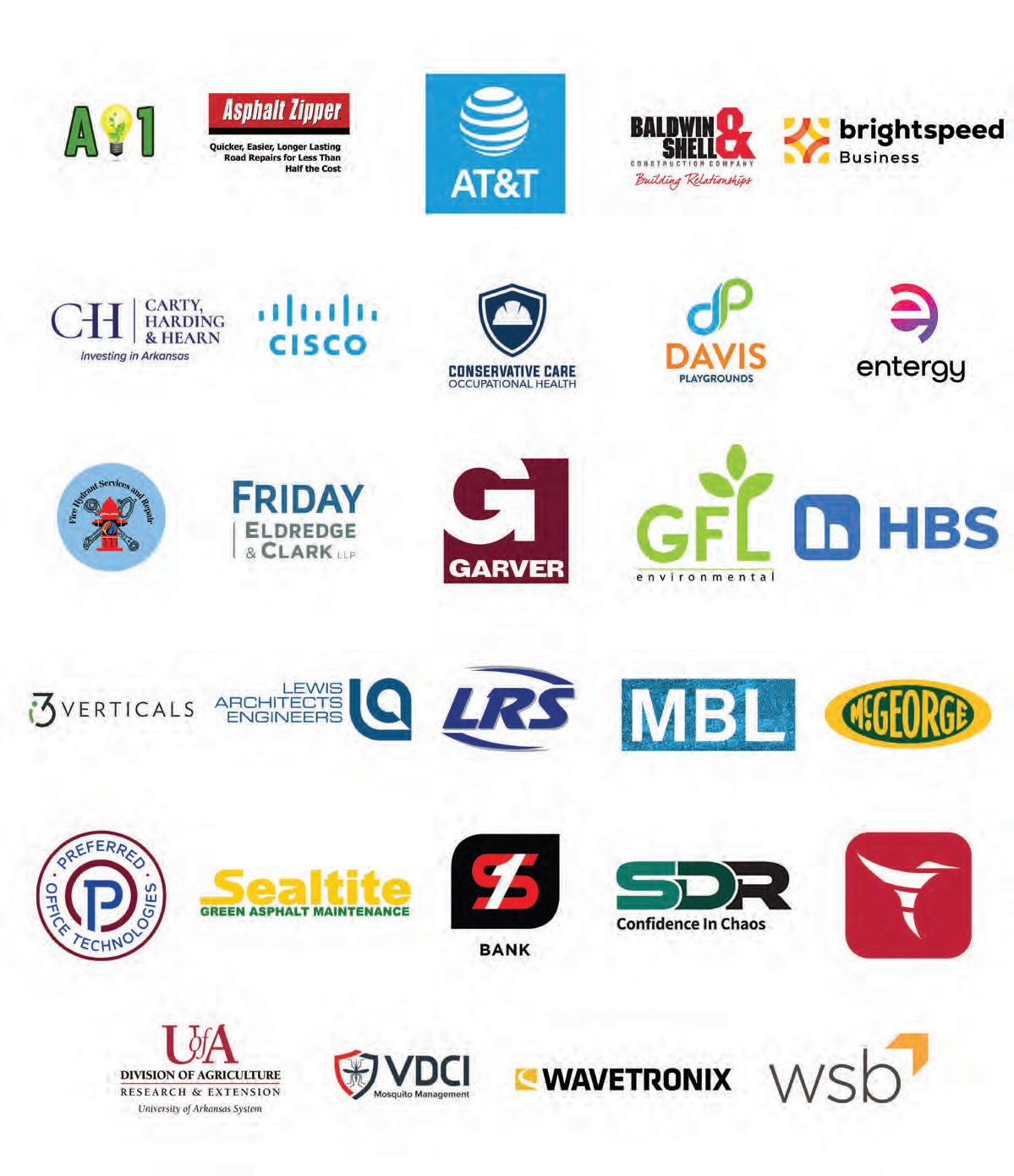



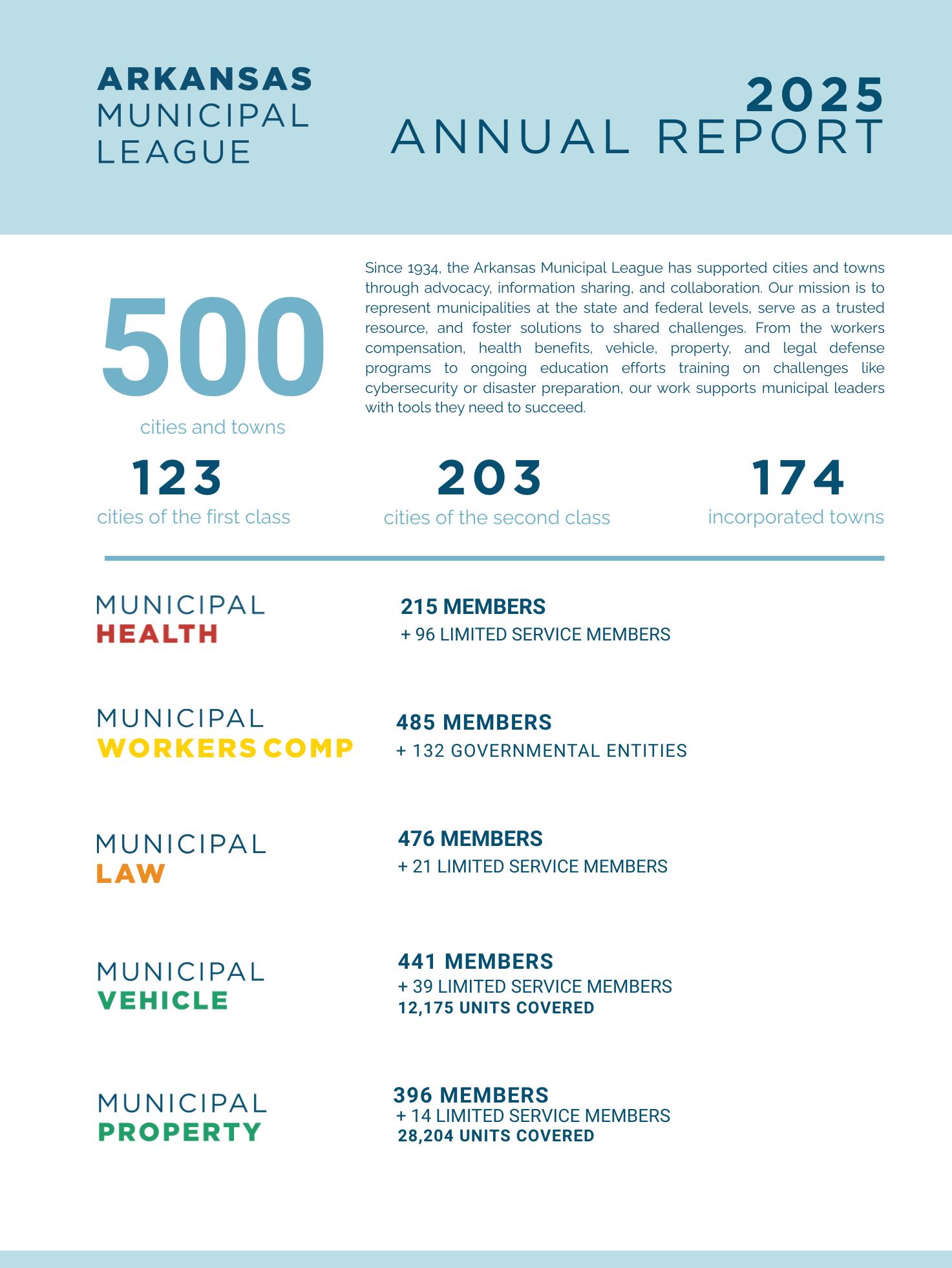
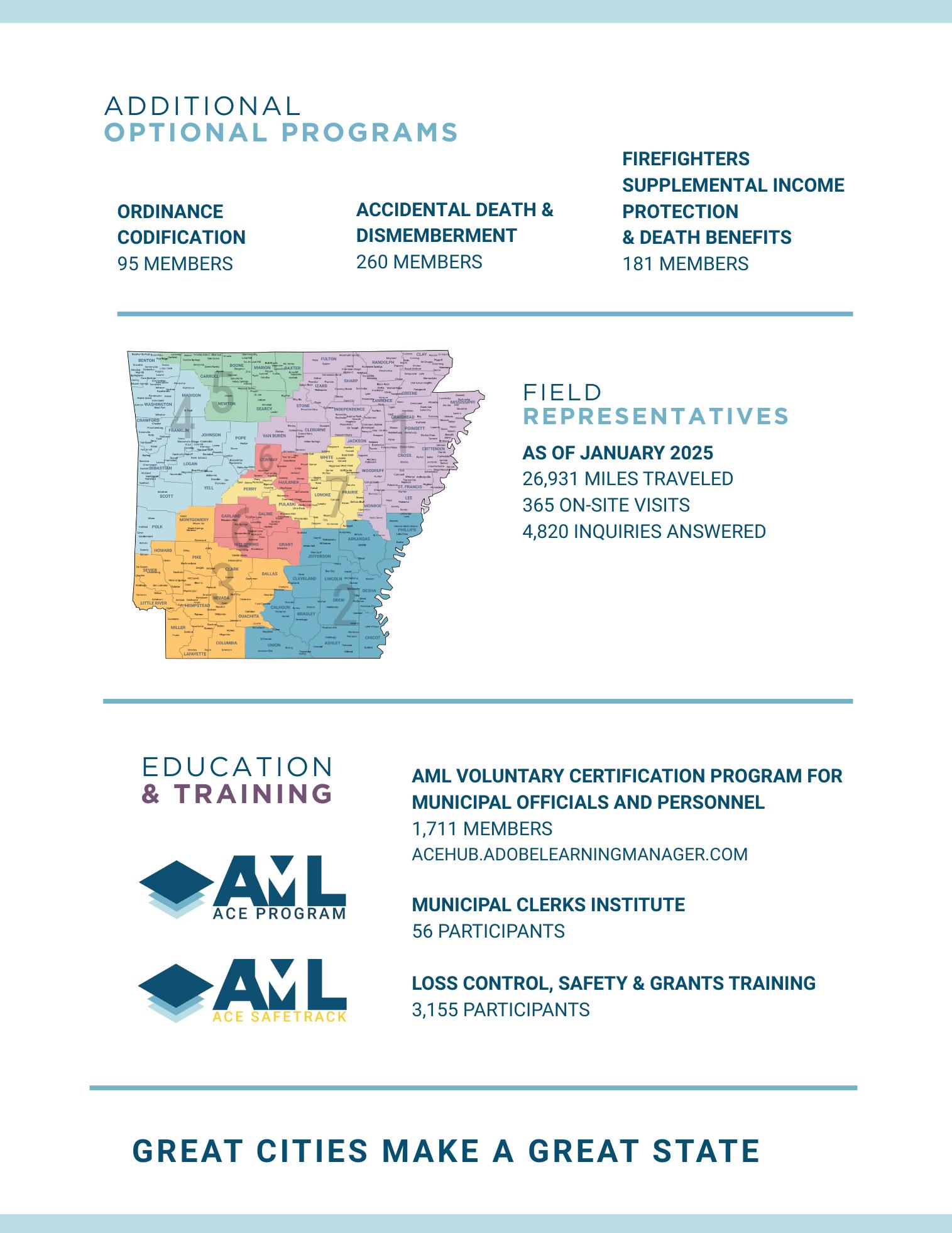
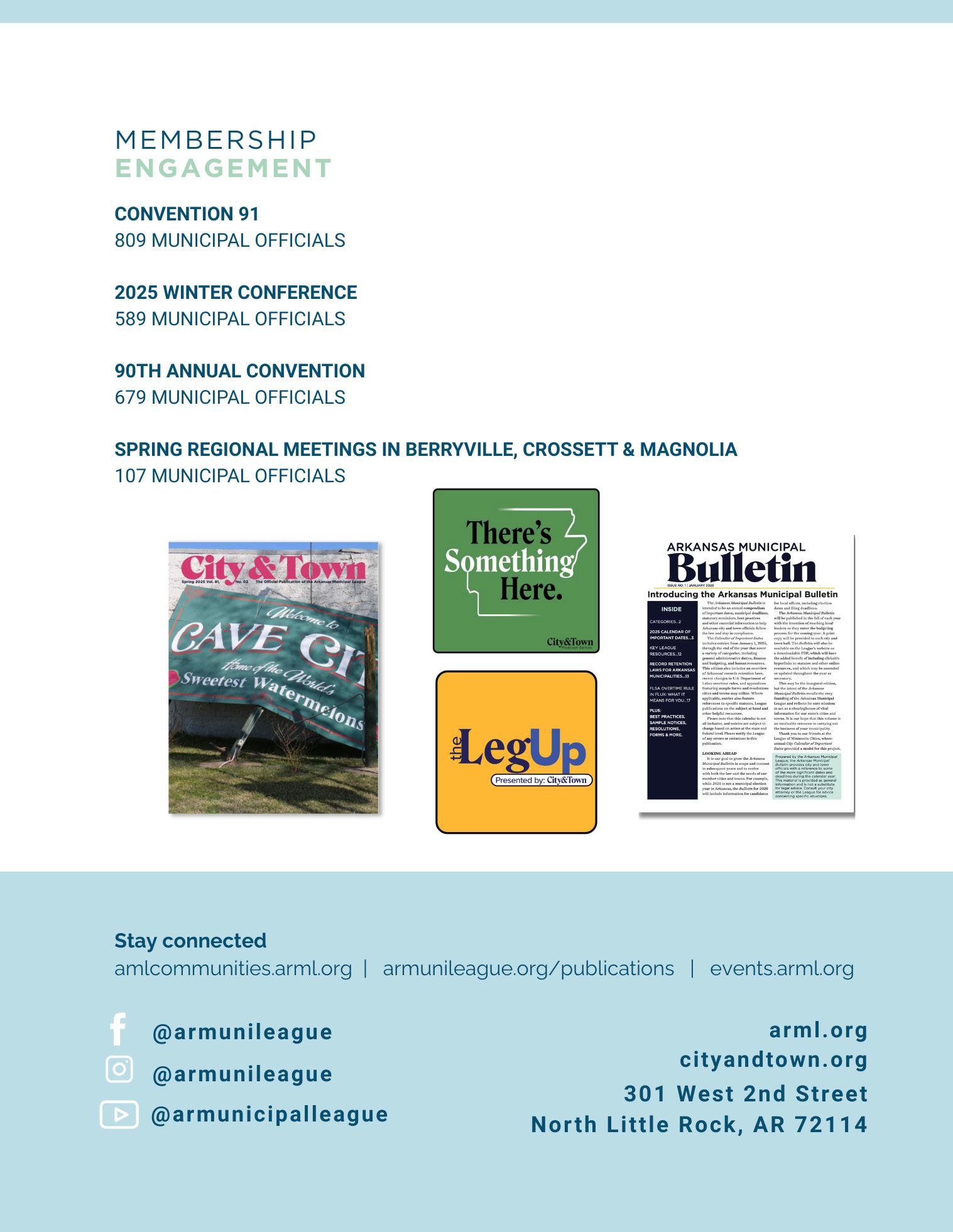
The planner's planner: the enduring legacy of Jim von Tungeln
BY JAMES T. WALDEN
Planners are seldom heralded. Though their work is felt by all in a community, attribution of that work is often hidden behind layers of steering committees, planning commissioners and elected officials whose opinions and approvals shape and bring a planner’s work to life. But if planners had a pantheon of pillars within the profession, Jim von Tungeln would be first among those listed.
With a career spanning over 50 years and countless night meetings on the road, he’s accumulated a long list of accomplishments, an impeccable reputation and a full catalog of great
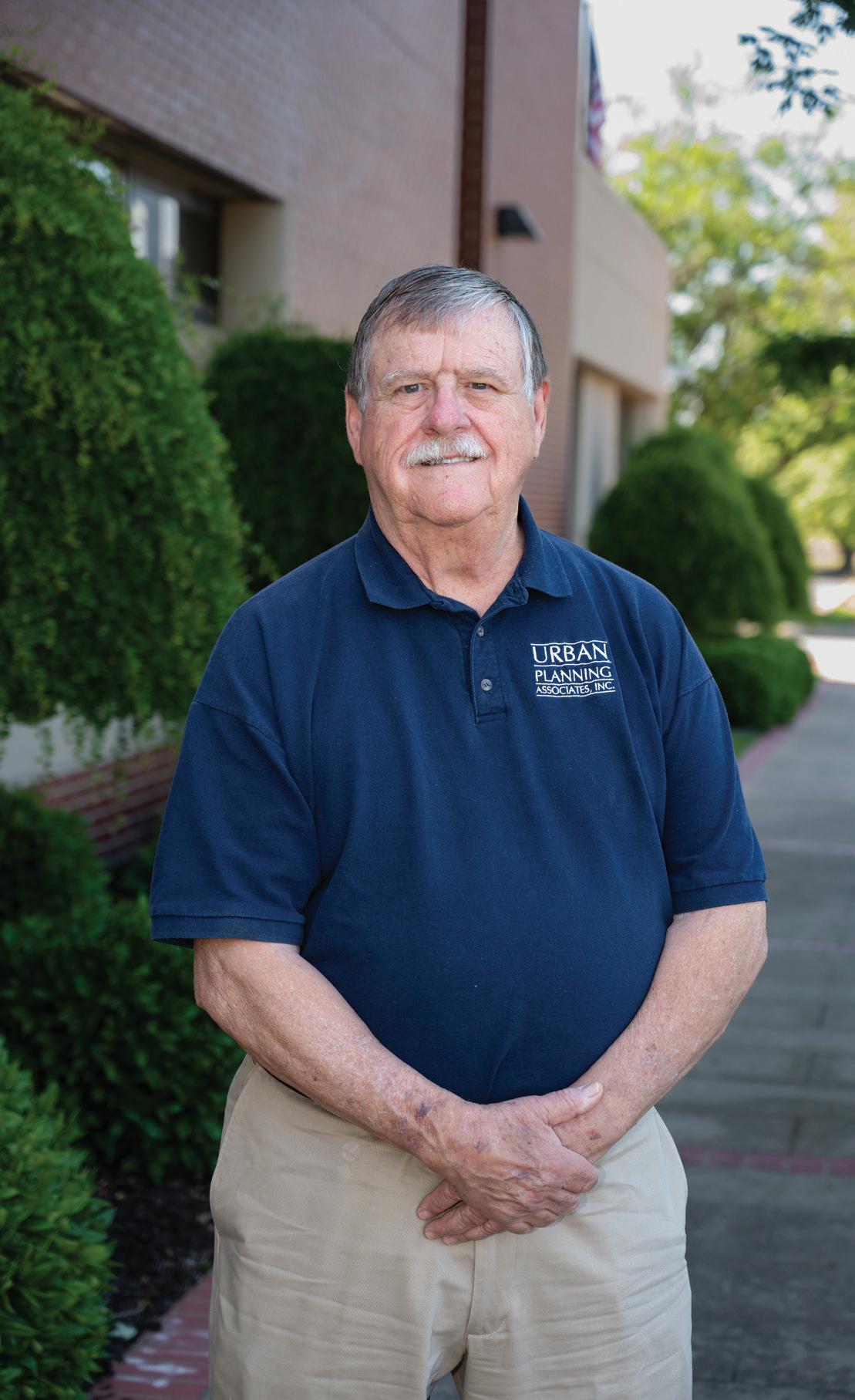
stories stolen and retold by others. Von Tungeln’s work has impacted communities in every corner of the state, played a deciding factor in a land-use case before the Arkansas Supreme Court, resulted in an immeasurable amount of sage advice to many vexed planners and mayors, and leaves a legacy of public service with organizations like the Arkansas Municipal League and Little Rock Planning Commission. He’s an equally fascinating person with a life story fit for the printed word and screen. A native son of Pine Bluff, he grew up on the outskirts of the city’s southside where the von Tungelns lived and operated a country grocery store. Like so many of his age, the novelty of television spurred his imagination and opened a new world to him. He recalls watching I Love Lucy and being mesmerized by the idea of city life where a young man like Little Ricky could live in a fancy apartment building and walk down the street to get ice cream. This early fascination with the city laid the foundation for his future career in urban planning.
Like many who grew up with parents who endured the Great Depression, his family saw education as a worthy pursuit. This nudge brought him to the University of Arkansas, where he majored in architecture. This decision was a compromise between his own interests and his father’s wishes for him to become an engineer. He took every course he could related to urban planning and fondly remembers a seminar by Ian McHarg that laid out the theoretical foundation for Design With Nature, one of the planning field’s most highly celebrated texts.
Following graduation in 1966 and seeking adventure and opportunity, he landed in San Francisco. Opportunity came in the form of a job as a draftsman with Babcock and Wilcox. Adventure came in immersing himself in a city of remarkable beauty and vibrancy, one 15-cent bus or trolley trip at a time. It was amplified by living near HaightAshbury while the hippie movement was fomenting a countercultural revolution. This adventure was short-lived due to his 1-A draft classification. By 1967, he’d joined the Navy just in time for the Tet Offensive and found himself stationed on mainland Vietnam in the Naval Security Force protecting naval bases. A tour of duty and a year and a half aboard
Jim von Tungeln’s impressive 50 years of urban planning have impacted Arkansans across the state.
PHOTO: BRIAN CHILSON, ARKANSAS TIMES
the USS Hunley later, he was honorably discharged to return to San Francisco.
As von Tugeln says, his “sainted mother” begged him to stay a while in Pine Bluff before returning to San Francisco. Searching for jobs, he experienced the discrimination commonly felt by Vietnam veterans. Through a circuitous route of connections, he ended up interviewing in downtown Little Rock with the upstart Urban Planning and Development Corporation run by Tommy Hodges and Jim Vines. Flush with upcoming planning projects funded through the 701-planning program, a part of urban renewal, the company hired him on the spot. Always being the first to arrive and last to leave, von Tungeln was soon asked to tackle production for the firm, and his career took off. He became a junior partner within a few years. It was a significant time for his personal life as well.
A move to a new apartment and a chance encounter with a pretty young farmer’s daughter and a Lonoke school teacher left him smitten. His charm over his looks eventually won her over. Jim and Brenda later married, forging a lifelong love and litany of enumerable stories that von Tungeln lovingly enjoys telling.
The late 1970s into the 1980s were a turbulent time in the planning profession in Arkansas. The establishment of planning and development districts decimated private firms in the state. The Reagan administration ended the 701-planning program, and federal revenue sharing with local governments nearly finished them off and ended many cities’ efforts at planning due to financial distress. This period led to professional shifts for von Tungeln, handling grants and business development for a regional engineering company. For a time, he took up real estate appraising. Things changed with a pivotal change in state policy.
In 1981, U.S. Rep. John Paul Hammerschmidt and Don Zimmerman of the Arkansas Municipal League teamed up to get the local option sales tax enabling statutes passed. Broad adoption of the local option sales tax by cities took a while, with Forrest City being one of the first to put the issue before voters. By the late 1980s and early 1990s, use of the local option sales tax became common … and von Tungeln’s phone started ringing.
After old clients began reaching out, he decided to start his own planning firm. The decision proved fateful, and his phone hasn’t stopped ringing since. And while other work might have proved very lucrative, his desire to advance the public interest by applying his planning knowledge left him diving back into the practice he loved.
Arkansas planning legend, City & Town icon, bids adieu
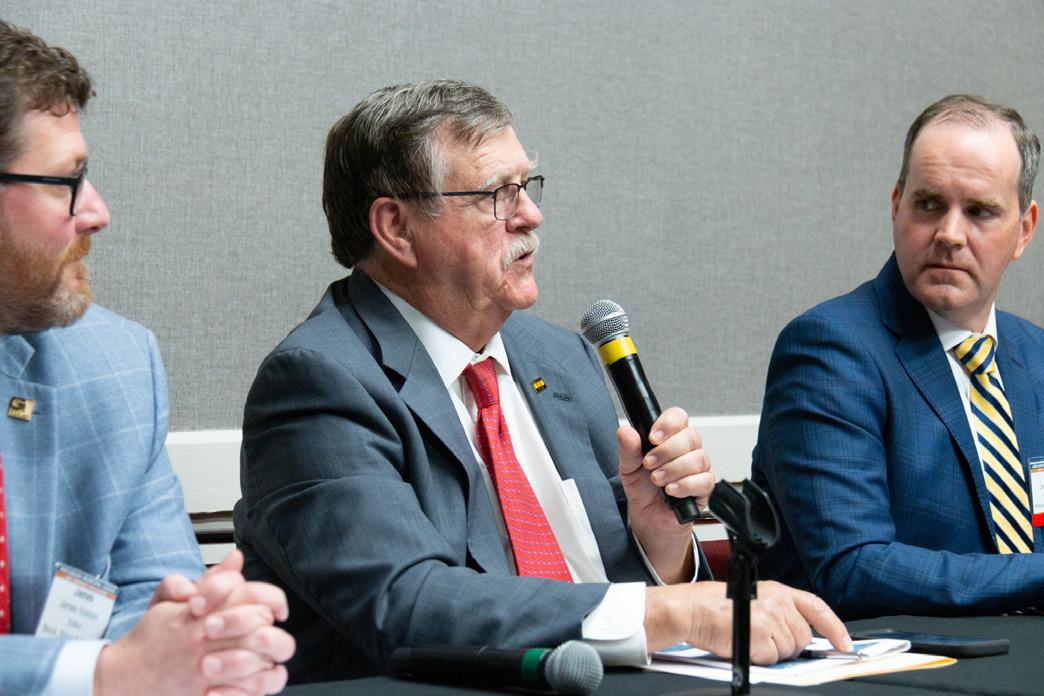
Jim von Tungeln, center, flanked by James Walden and John Wilkerson, participates in a planning breakout session during the League’s 89th Convention in 2023. Jim has been an invaluable resource to our cities and towns since joining the League as a consultant in the 1990s, and the voluminous amount of knowledge he has shared over the years through his writing in City & Town has kept our readers informed and, more often than not, entertained. I for one can’t help but wonder how the self-proclaimed “Best mayor in Arkansas,” Furlow Thompson of the fine city of Potluck, will take news of this retirement. I have a feeling we’d respond the same: Jim, don’t be a stranger!—Ed.
I can honestly say that Jim has made an enormous and positive impact on the state of Arkansas through his municipal planning work and drive for excellence. I’m proud to have worked with him, but I’m thrilled to be one of his friends. Jim always has a smile on his face, a calm demeanor and a real love for humanity in his heart. Thank you, Jim!—Mark Hayes, Executive Director, Arkansas Municipal League
I know what I know about planning because of Jim von Tungeln. Many of my earliest memories of Jim involve calling him during the most stressful part of the legislative session, asking him to educate me on a complex planning issue. His lessons came with wisdom, kindness and the occasional (and much-needed) laughter. I cannot imagine the League, or myself, being the same without him.—John Wilkerson, General Counsel and Legislative Director, Arkansas Municipal League
PHOTO: MARK POTTER, LEAGUE STAFF
In the late 1990s, he was brought on staff with the Arkansas Municipal League to help deal with the influx of planning issues that began perplexing mayors and city attorneys. Over his career, he has a lengthy list of clients from places like Little Rock all the way to small towns like Keo. Von Tungeln estimates that he’s directed projects in over 75 Arkansas cities and provided assistance to the majority of Arkansas’ nearly 500 cities and towns.
During his career, certain work has stood out. Von Tungeln served as an expert witness in the Utley v. Dover case, a matter over an annexation conducted by the city of Dover, heard by the Arkansas Supreme Court. His testimony proved pivotal in the favorable decision for Dover, with the court stating, “… the testimony of Mr. von Tungeln on this criterion clearly supports the trial court’s decision; therefore, we cannot say that the trial court’s finding on this point was clearly erroneous.”
substance,” a view that conveys the necessity that design can’t just inspire, it needs real policy to implement it.
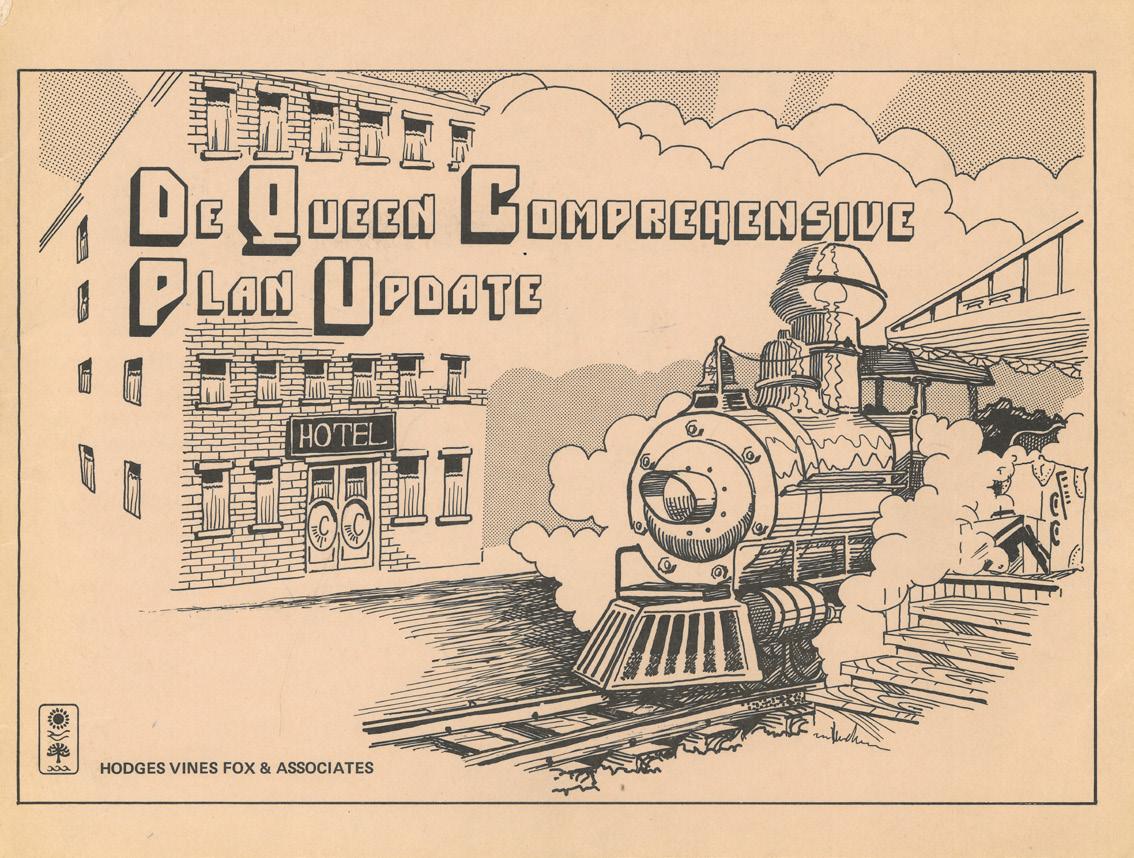
When projecting a future course for planning in our state, von Tungeln identifies education and selling of the value of planning. He sees a critical need for more in the profession and allied professions to operate from a strong understanding of the legal and practical foundations of planning to address real and critical issues like aligning utility capacity with land-use patterns, as well as addressing the fundamental needs of communities like safety and affordable housing. Succinctly, he says, “There is more to planning than roundabouts and trails.”
Other projects were comprehensive plans for the cities of Paragould, Batesville and Arkadelphia. A mark of a good plan and an even better planning effort is implementation. Each of these plans saw significant portions of the plan directly implemented. Von Tungeln notes these efforts stand in contrast to some of the planning he saw earlier in his career during the 701-planning program. In those days, some efforts by cities were treated as perfunctory work to unlock access to more grant funding.
Those efforts over 50-plus years have led him to other lessons learned as well. Von Tungeln says, “Planning is public administration,” a point he says many who dabble in planning fail to grasp. Von Tungeln sees the error of many who view urban design as a sole solution and who casually ignore issues of politics, property rights and decades of precedence established through case law and planning statutes. “Planning is about moving vision into policy,” he states. He views the stunning graphics produced by many urban designers as inspiring, but says, “Pretty pictures must have
Moreover, von Tungeln sees a need for the profession to demonstrate its value. We live in a time where trust in government and respect for professional opinions are quickly eroding. Planners must demonstrate that their abilities to see possibilities and understand the connectedness of systems matter. He believes planners must show why planning helps create better places.
Planners need look no further than Jim von Tungeln’s legacy to demonstrate their value. His work has bettered cities and the lives of so many across our state. His advice and knowledge have shaped both the law and countless decisions toward fairness and the interest of the common good. It’s a legacy that serves as a measuring stick and high bar for all who follow him.
This article originally appeared in the 2025 edition of Block, Street & Building, an annual publication celebrating the best in new urbanism in Arkansas. Block, Street & Building is produced by the Arkansas Times in partnership with the Arkansas Municipal League. Von Tungeln’s final "Planning to Succeed" column for City & Town begins on page 64.
One of von Tungeln's many urban renewal projects under Tommy Hodges and Jim Vines.
& More!
TRANSFORM YOUR OUTDOOR SPACES



At Swift Recreation, we bring your outdoor visions to life with turnkey solutions that inspire play, learning, and growth. Partnering with trusted brands like Little Tikes Commercial, No Fault Surfaces, and Modern Shade, we create safe, inclusive, and innovative spaces where children thrive. Quality, safety, and fun are at the heart of everything we do.


Housing affordabilty: some thoughts Planning to Succeed
BY JIM VON TUNGELN
The shortage of affordable housing has long been a concern of local governments. Recently, it gained the attention of state officials. The time seems right for action. But what action?
Therein lies the rub. Everyone seems to have a solution. Ideas abound. Seldom does one lower the price of a two-by-four, the value of land, or the hourly cost of employing skilled labor.
But wait. While solutions may not lower actual costs of materials and labor, they might lower the length of holding period before returns on such investments show a reasonable profit. They may lower the amounts of materials and labor required to achieve the end result. They might offer some innovative approaches. It deserves a look.

Some ideas claim that regulations stifle the provision of affordable housing. Certainly, room for reflection and revision exists. But do our cities really want to return to the days when more affordable housing was available, but oversight was minimal? Some folks still remember the stench of outdoor toilets in August. They also remember the rash of fires each December when holiday decorations overpowered electrical outlets.
Zoning has the privilege of being a modern target. Just eliminate single-family zoning districts, some say. The problem will resolve itself. Developers will suddenly stop meeting the market demand for single-family homes and start building apartments. It is certainly comforting to think so.
Current ideas assume that the problems are uniform across the spectrum of cities. Therefore, solutions should be as well. Is that an oversimplification? Maybe. Consider our state. We could divide the need for housing into at least three categories.
For one, growth is rampant and so is the need is for workforce housing. This brings planners into conflict with the troublesome supply and demand curve. This is a chart with prices on the vertical axis and quantities on the horizontal axis. Where they intersect indicates the price of a commodity.
When the demand exceeds the supply, prices rise. When the supply exceeds the demand, prices fall. But how far do they fall? With housing, the price of a house may fall to a point that improves marketability. It may or may not fall to a point that means affordability for service workers. Developers in these cities encounter trouble meeting demand, much less creating a surplus.
These are cities that might benefit from regulatory reform.
In another division, cities that are healthy, but growth rates remain low or moderate. Here the need is for a stable housing market. There is a demand for enough new housing units to replace obsolete ones or ones destroyed by disasters.
These are cities that need protection from blighting influences that might threaten stability. Infill development should satisfy demand for new housing.
For a vast number of our municipalities, the need
is simply for housing that is decent, safe and sanitary. There will be no gated communities built within their boundaries. No subdivisions claim protection by restrictive covenants. Our fellow citizens freeze in Arkansas winters and suffer during our summers in structures that are not fit for human habitation.
These are cities in which the private sector alone will not solve housing problems.
Unfortunately, legislation seldom, if ever, recognizes such differences in cities. Laws are unitary, but demand for housing is not a uniform concept. Some areas cannot meet the demand for housing. Some areas have seen few new homes in years, some none.
Consequently, we see that the issue of housing affordability is complex. As such, the requirement for a complicated and incremental approach asserts itself. Let us look at some current ideas. Some are in place, some are contemplated, and some are wishful.
Accessory dwelling units in all residential zones can add to the supply of housing at reduced costs. A new law in our state mandates this, and we look forward to documenting the results.
There are also experiments in outlawing single-familyonly districts in zoning codes. This could have the effect of “NIMBY-proofing” the development of multi-family developments that could then be built “by-right.” All zoning codes now allow for higher density developments. The problem? Opponents persist in shouting them down.
Addressing such resistance has more to do with leadership, education and communication than with prices of materials and labor.
Some incremental approaches deserve consideration. Infill development could create additional housing at a lower cost. In many cities, 30% or more land within their boundaries is vacant. Some is developable. Some is not. Many vacant lots could provide useful housing but can’t be developed properly within the current code requirements. Something like an Infill-Planned Development (PD) might allow creative uses of vacant lots in a profitable manner. Likewise, there are functionally obsolete developments within cities that might serve as housing with some creativity. One city in our state is dealing with a situation in which developments built for the tourist trade have seen such demand disappear. At the same time, the demand for affordable housing has increased. Converting the uses to meet regulations would be a daunting task. Might something like a Conversion-PD address the issue?
One aspect of zoning in our state deserves attention. Minimum lot sizes and setback requirements harken back to the day when land was plentiful, and infrastructure costs were much lower. Allowing the market, rather than the zoning code, to set these, within the bounds of health and safety, would be a welcome move.
As mentioned earlier, addressing the problems regarding the lack of affordable housing will require leadership. Municipal leaders must accept its importance. Other leaders and entities should as well. For example, when service workers cannot find affordable housing in their city of employment, this places additional burdens on overstressed highway systems. No city is an island.
The issue of housing is broad and complex. It is as much a human concern as an economic one. Shelter is an essential one in terms of human motivation.
In a 1940s study, American psychologist Abraham Maslow developed a theory of human motivation he termed “a hierarchy of needs.” This means that humans find motivation at specific levels, like the layers of a pyramid. Individuals must have fully met their needs at one level within the pyramid before becoming motivated to achieve the needs of the next level up. Put more bluntly, an individual who is struggling to put a roof over his head will focus on that before exploring his true calling in life. An empty stomach does not motivate a brain to seek compliance with social norms, much less prestige.
At the most basic level, our physiological needs include our bodily requirements, including the basics of shelter. If we lack any of these needs, we need to fulfill them before we can motivate ourselves to pursue other needs.
Thus, if we wish our citizens to find the motivation to become useful, productive and involved, they must first have shelter, food, water, and sleep. Hardly anyone would suggest depriving others of one or more of the latter three. We regard them as essential to the good of all. This leaves shelter as the unmet need.
What this means is that we shall never solve the problem of housing affordability until we decide that housing is a human right, one not decided by profit but by compassion and good government.
HR Tips
Civility as a loss control measure
BY TRACEY L. CLINE-PEW, SPHR, SHRM-SCP, LEAGUE STAFF
Pick up any newspaper, watch any newscast or speak with someone in human resources and it becomes evident that workplace and societal incivility are on the rise. The Society for Human Resource Management (SHRM) Civility Index for the fourth quarter of 2024 revealed that 74% of respondents expect incivility to persist or worsen in 2025. The human and financial costs of incivility are substantial, and if left unchecked, they will inevitably impact a municipality’s bottom line. It is time to examine civility as a loss control measure.
The cost of incivility

Reframing incivility as a risk management issue
SHRM’s Civility Index, released on August 7, 2024, estimates that U.S. organizations lose $1.2 billion per day due to reduced productivity and $828 million per day in absenteeism caused by workplace incivility—totaling more than $2 billion per day! More recent studies suggest this figure may now approach $2.7 billion daily. These staggering numbers reflect only reported instances; the actual cost could be even higher.
Recognizing workplace incivility
Workplace incivility manifests in many forms. Some behaviors—harassment, gossip, profanity, spreading discontent, conscious bias and overt rudeness—are easily recognizable. Others are more subtle, including:
• Taking credit for others’ work.
• Habitually arriving late to meetings.
• Micromanaging/excessive monitoring by supervisors.
• Failing to prioritize employee safety.
• Intentionally excluding colleagues.
Unchecked incivility jeopardizes employee well-being and leads to productivity losses, disengagement, absenteeism and increased turnover.
Instead of viewing incivility as a human resources problem, organizations should reframe the conversation in terms of risk management and loss control, adopting proactive strategies to mitigate its impact. Experts researching workplace incivility consistently agree on the following key strategies for cultivating civility:
• Ensure leadership models civility.
• Establish a code of conduct.
• Clearly define expectations.
• Educate employees.
• Prioritize consistent communication.
• Hire for civility.
• Address incivility promptly.
• Recognize and reward civility.
Leadership support & accountability
Civility must start at the top. Leaders—department heads, directors, managers, supervisors and team leaders—should be trained in civility and actively involved in developing their organization’s civility code. Holding leadership accountable ensures they model and promote civil behaviors, reinforcing expectations across the workplace.
Defining a civility code of conduct
Organizations should collaborate across departments to define the components of a civil and respectful work environment. The Arkansas Municipal League adopted Brian Cave’s Code of Civility, which emphasizes:
• Greeting and acknowledging one another.
• Saying "please" and "thank you."
• Treating each other with respect, regardless of circumstances.
• Considering the impact of our behavior on others.
• Welcoming feedback.
• Being approachable.
• Communicating directly, sensitively and honestly.
• Recognizing the contributions of others.
• Respecting others’ time commitments.
• Addressing incivility when it arises.
To reinforce workplace civility, the League also incorporates a civility statement in all job descriptions, ensuring expectations are clearly defined from the outset.
Defining & communicating expectations
Most municipalities already maintain policies promoting a civil workplace—including standards of conduct, anti-harassment and anti-bullying policies. However, integration with civility policies ensures expectations remain clear.
Employees should be educated on civility guidelines, emphasizing respect, professionalism and conflict resolution strategies. Employers must avoid assuming all employees inherently understand professional behavior, as some may lack foundational skills like active listening, composure in difficult situations or delivering/receiving constructive feedback.
Hiring for civility
Municipalities can prioritize civility during hiring by conducting group interviews with existing employees to evaluate cultural fit. Another strategy includes incorporating behavioral interview questions, e.g., “Describe a time you responded to an insensitive remark from a colleague” or “How would you handle witnessing workplace bullying?”
Checking references thoroughly to assess prior workplace behaviors is also a necessity.
Addressing incivility & accountability
Organizations must avoid excusing or ignoring chronic incivility, as inaction dilutes efforts to promote civility and exacerbates workplace toxicity. Intervening early prevents disagreements from escalating. Supervisors should mediate disputes transparently, reinforcing ex-
pectations. If necessary, leverage Employee Assistance Programs (EAPs) for training and support.
If an employee repeatedly disregards civility policies, organizations should enforce clear disciplinary action, ensuring fairness while maintaining workplace integrity.
Recognizing & rewarding civility
Recognition fosters engagement and motivation—and it doesn’t have to be costly. Simple yet effective strategies include:
• Providing regular positive feedback.
• Highlighting civility efforts in company newsletters.
• Creating peer recognition bulletin boards.
• Providing handwritten notes to employees thanking them for their efforts.
By creatively acknowledging civil behaviors, organizations reinforce a positive and respectful workplace culture.
Final thoughts
Civility in the workplace is not just a human resources initiative, it is a loss control strategy essential for organizational success. By fostering a civil environment, municipalities reduce risk, improve productivity and protect employee well-being.
Below are some excellent articles and resources on civility if you are interested in learning more:
• “Defending Civic Trust: The Responsibility of Local Leadership,” by Matt Lehrman – armuni.org/DefendingCivicTrust
• SHRM’s Civility Starter Kit – shrm.org/civility
• Certificates in HR Ethics, Fostering an Inclusive Culture & More – learn.hrci.org
• Harassment Prevention and Respectful Workplaces Training – eeoc.gov
• Harvard Business Review Magazine, “The Price of Incivility,” by Christine Porath and Christine Pearson, January – February 2013
As a lifelong learner, I would love to hear your ideas about building a culture of civility and professionalism. Please feel free to share your thoughts with me at tpew@arml.org.
Community Development
Building homes, building hope: The P3 Group's transformative development work
A community-driven solution to housing and economic development
BY APRIL MCCULLOUGH
As housing shortages and economic challenges intersect in cities across Arkansas, the need for innovative, community-driven solutions has never been greater. Enter The P3 Group, Inc., the nation’s largest minority-owned public-private partnership developer.
Public-private partnerships (P3s) provide access for government agencies to improve public infrastructure by leveraging the resources and expertise of the private sector. Governments worldwide are facing growing infrastructure needs and often lack the capacity or assets necessary to provide solutions or critical resources for citizens. Partnerships with the private sector can provide new and creative solutions to development challenges.
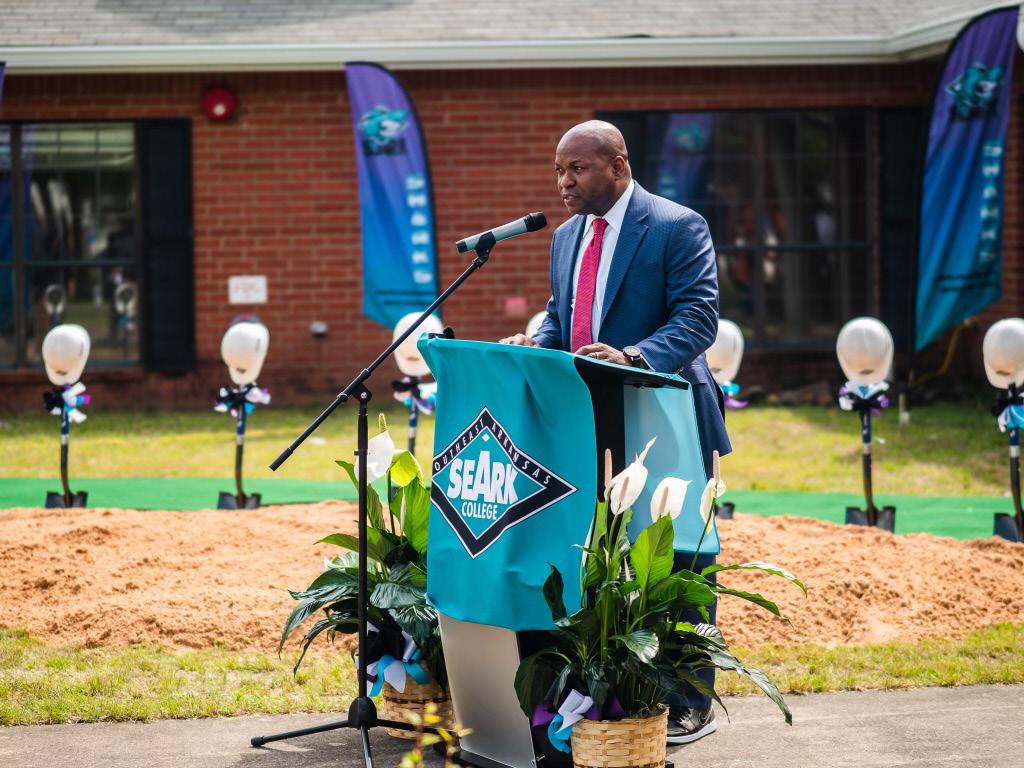
and support local quality of life initiatives one project at a time. Using industry experts, the P3 Group utilizes a collaborative approach to support community development efforts. This entails combining the resources of national firms with local contractors to serve the best interests of the community.
The P3 Group has worked on various projects in Arkansas. Their first state municipal P3 was in partnership with the city of West Memphis. In West Memphis, they built the first new municipal facilities since 1974.
P3 Group President and CEO Dee Brown speaks at a recent groundbreaking in Pine Bluff.
“When public investment matches the private investment, there are successful outcomes,” said Grandon Gray, PCED, senior vice president and chief operating officer of the P3 Group.
The P3 Group’s team members approach community development through the art of listening to make vision become reality. The P3 Group’s integrative design-buildfinance model is simple: They aim to define a project using a holistic and collaborative approach, develop resilient, sustainable and transparent solutions, and empower the local community to implement the solutions through technology, education and capacity building.
With a mission focused on prioritizing purpose over profits, the P3 Group partners with elected leaders to meet the unique needs of their communities. The goal is to build trusted relationships, community confidence
Currently the P3 Group is responsible for the revitalization of downtown Pine Bluff with the development of the Courtyard by Marriott, located adjacent to the Pine Bluff Convention Center. This 125-room hotel will support tourism and enhance the downtown core.
As the P3 Group continues to push forward with new housing developments in Marion, Newport and beyond, their model is more than a blueprint for construction—it is a strategy for transformation. With each project, they are not just developing buildings, they are investing in futures, redefining civic partnership, and laying the foundation for healthier and more connected communities.
The work of the P3 Group serves as a powerful reminder of what’s possible when private innovation aligns with public purpose, and when developers view people—not property—as the heart of community development.
For more information visit thep3groupinc.com.















Prevent heat-related illness during the dog days of summer
BY ASHLEY BOOTH NORSE, M.D.

Now that summer is in full swing, many of us are spending our spare time at the park, in the swimming pool or enjoying other fun outdoor activities with friends and loved ones. But as we enter the most sweltering weeks of the season, we also face an increased risk of heat-related illness.
Exposure to high temperatures and humidity can quickly take its toll, overloading the body’s cooling mechanisms and leading to potentially serious medical complications. Each year, first responders and hospitals across the state treat hundreds of Arkansans who are suffering from the effects of heat-related illnesses—and unfortunately, some of those cases prove to be fatal.
Some people are more vulnerable to the heat, including young children, older adults and people with chronic medical conditions. However, it’s important to understand that all of us are susceptible to heat-related illness if we don’t take the proper precautions.
Let’s look at a few warning signs and some ways to keep safe in the sun this summer.
Effects of the heat
Heat-related illnesses vary widely in symptoms and severity, but all of them need to be taken seriously because of their potential to worsen with continued exposure. On the milder end of the spectrum, someone might experience a heat rash or painful muscle cramps. Heat exhaustion is a moderate form of illness that produces symptoms such as dizziness, nausea and headaches.
The most dangerous of these illnesses is heat stroke, which occurs when the body loses the ability to regulate its temperature. Symptoms include fainting, slurred speech, a rapid rise in body temperature and a fast heartbeat.
Heat stroke is a serious medical emergency that can cause permanent damage or death if it’s not treated promptly. If someone is displaying heat stroke symptoms,
call 911 and immediately move the person to a cooler or shaded area. Apply cold, wet cloths or ice packs to help lower the person’s temperature until emergency services arrive.
Preventive measures
Of course, the simplest and most effective way to reduce the risk of heat-related illness is to stay out of the sun during the hottest parts of the day. But we know that’s not always possible. Anyone outside during these times should limit their physical activity and take frequent breaks either indoors or in the shade.
While outside, wear light-colored, loose-fitting clothing. A wide-brimmed hat and sunglasses are also recommended, as they offer protection for the face, head and neck. For exposed parts of the body, use a mineral-based sunscreen with an SPF of 15 or above and reapply frequently throughout the day.
It’s also extremely important to stay hydrated. The body cools itself through perspiration, and many heat-related illnesses stem from the resulting loss of fluids and salt. Consume plenty of liquids such as water and sports drinks while avoiding alcoholic or caffeinated beverages that might lead to dehydration.
Be proactive about hydration, and don’t wait until you feel thirsty—that’s a signal that the body is already losing fluids.
Know your limits
Even with all these precautions, there will likely still be times when you start to feel the effects of the summer heat. In these instances, it’s important to avoid pushing yourself beyond your limits. If you start to feel odd or experience any of the symptoms of heat-related illness, then your body is urging you to slow down and cool off.
I hope you take these steps to stay safe while enjoying all that our beautiful state has to offer this summer.




Infrastructure that moves communities
Infrastructure that moves communities forward to meet tomorrow’s needs. forward to meet tomorrow’s needs.
Multimodal Transportation Planning
Roadway Design & Reconstruction
Accessibility & Equity Planning
Sustainable & Resilient Infrastructure
Asset Management & Lifecycle Planning
Smart City & Emerging Technology Integration
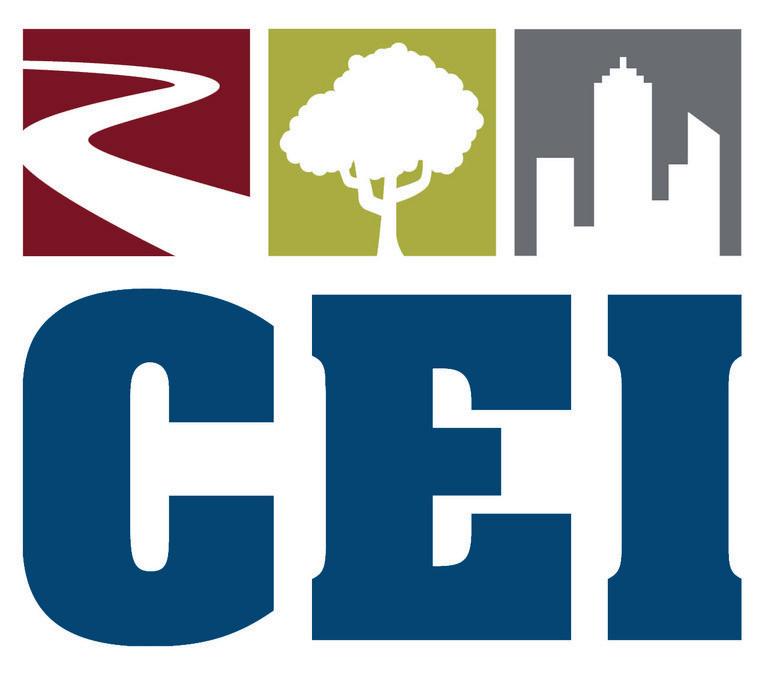
Health and safety fundamentals
BY CODY TRAYWICK
Creating a safe and healthy workplace doesn’t happen by chance—it’s the result of deliberate planning, proactive strategies and a company-wide commitment to preventing harm before it happens.
According to the Occupational Safety and Health Administration (OSHA) the primary goal of a safety and health program is to prevent workplace injuries, illnesses and deaths as well as the suffering and financial hardships these events can cause for workers, their families and employers.
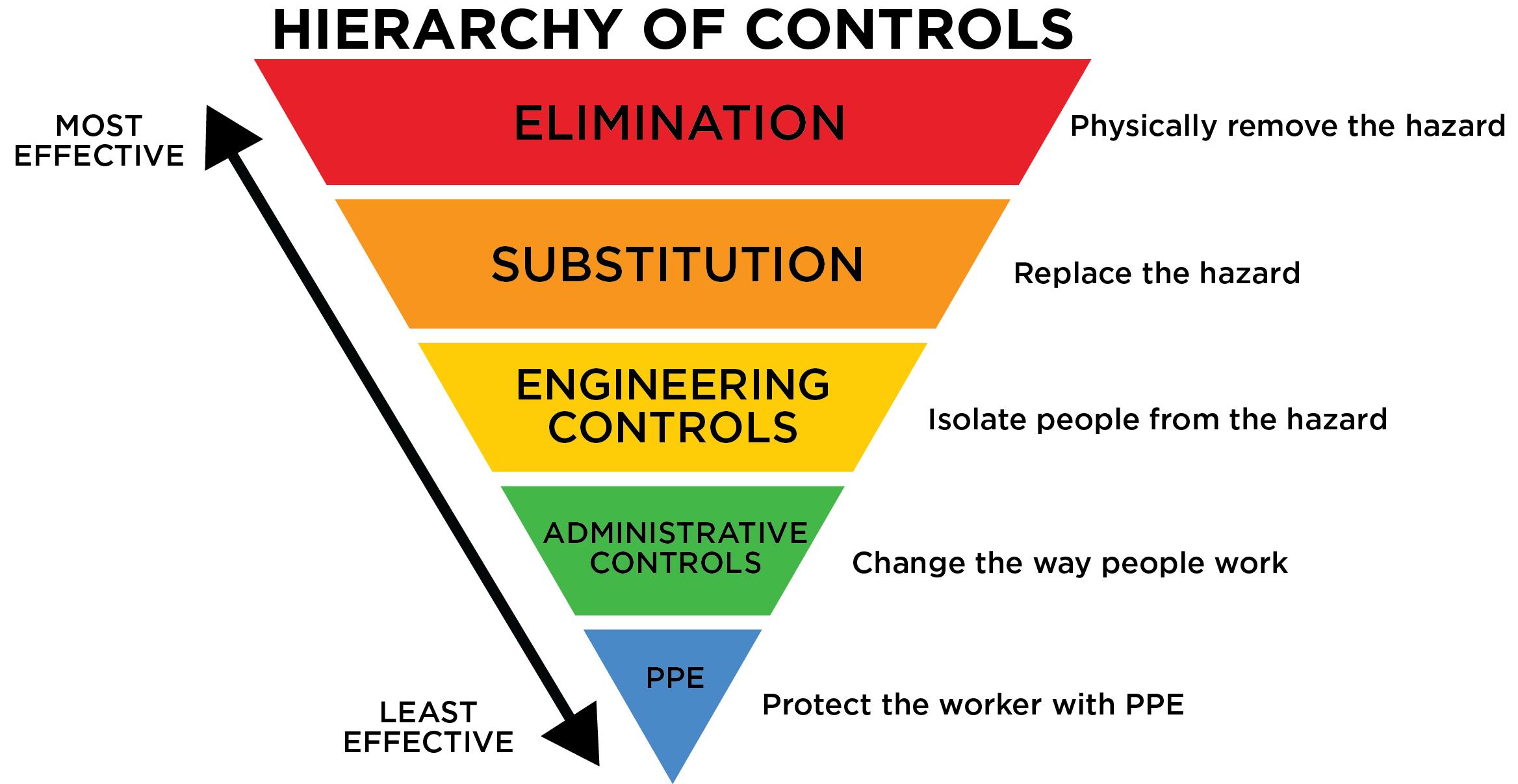
Historically, approaches to jobsite safety have been somewhat reactive; that is, addressing problems only after a worker sustains injury or once a new regulation or standard is published. Although with ever-evolving jobsites, proactive approaches have become far more effective in achieving safety and health program goals.
The key tenets to an effective and proactive safety and health program include a strong safety culture, jobsite analysis, hazard prevention/mitigation and appropriate training. These elements are essential for managing safety across a variety of jobsites and dynamic work environments.
A strong safety culture requires buy-in from both management and employees. Everyone must be involved in identifying hazards, reporting conditions and contributing to solutions. This requires open communication between employees and management. The employer’s role extends beyond simply providing resources—they must also establish the practices and procedures for safety programs and ensure compliance. An essential practice is jobsite analysis.
Jobsite analysis involves the identification of potential hazards, assessing their severity and implementing controls to mitigate their risk. Implementing a jobsite analysis (JSA) is a key step to protecting your employees,
the public and the environment from hazards that may arise. For project sites with various scopes and dynamic operations, a JSA is a primary measure for risk mitigation. Jobsites may be remote, heavily-vegetated or in a dense urban setting. Understanding the hazards that each type of site may present in combination with utilization of control measures, appropriate training, and good practices and policies help to mitigate risk.
Some of the most basic practices that all employees can contribute include good housekeeping of work areas. These practices are applicable to all jobsites and to our personal lives. Further, all employees must be on the lookout for hazards. When a hazard has been identified, a hierarchy of control options should be considered.
The most effective control option is to remove the hazard. Can the hazard be physically removed from the site or eliminated from the process?
If elimination isn’t feasible, consider substitution: Can the hazard be replaced with something less hazardous? Is there an alternative, less hazardous process that can be utilized?
In many situations, some hazards will remain. Engineering controls reduce exposure by preventing hazards from coming into contact with workers. Is there a way or are there devices to isolate workers from the
hazard? Some examples of engineering controls include noise enclosures, ventilation systems and machine guards.
Even still, risk from a hazard may exist. Administrative controls change the way work is done or give workers more information. Are there procedures that can be put in place to mitigate this risk? What training does a worker need to perform their job around this hazard? Are there appropriate warning measures in place to inform the worker? Administrative controls may include procedures and training specific to the hazard. Additionally, administrative controls include signage, detection and alarm systems, and messaging systems to properly inform the worker about the hazard.
Finally, the most basic control method is personal protective equipment (PPE). PPE can vary from hazard to hazard and therefore from jobsite to jobsite. Types of PPE may include safety glasses, protective clothing, hardhats, hearing protection, personal fall protection
and respirators. Not all types of PPE are appropriate and effective for all jobsites and all hazards.
Remember, the first step is to identify the hazard. This step requires participation from all workers! Then brainstorm how the hazard can be eliminated, substituted, engineered out, administratively controlled, or what PPE can be used with other controls. At the heart of it all is participation. This approach is most effective when there is a joint effort from workers and management, grounded in open communication and shared accountability.
When supported by thorough jobsite analysis, effective hazard mitigation and targeted training, a strong safety culture does more than reduce accidents. It promotes employee well-being, increases productivity and strengthens the organization's reputation. Ultimately, safety is not just a set of rules. It is a shared mindset that empowers every worker to thrive in a secure, confident and high-performing environment.
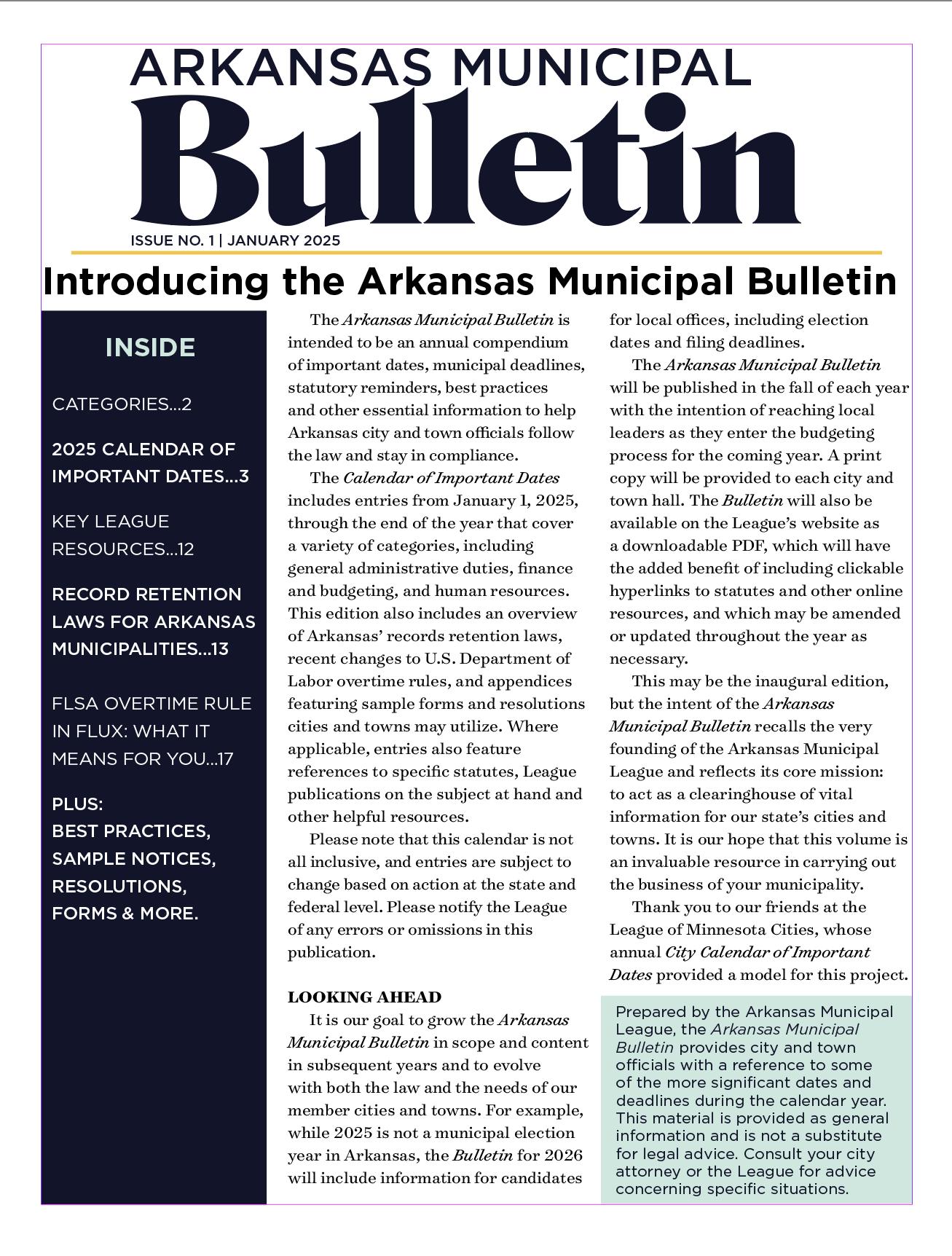

Scan the QR code to download the most up-to-date version of the Arkansas Municipal Bulletin . The Bulletin is printed each January and distributed by your Field Reps and at Conference and Convention.
2024/2025 State Turnback Funds
Actual Totals Per Capita
Actual Totals Per Month
Actual Totals Per Month
Love seeing these turnback numbers? We want to know! Email citytown@arml.org and let us know if you want to keep seeing them in the magazine, or if you prefer to access them each month at armuni.org/Publications.
$3,514,392.30 supplemental for July 2024
Local Option Sales and Use Tax in Arkansas
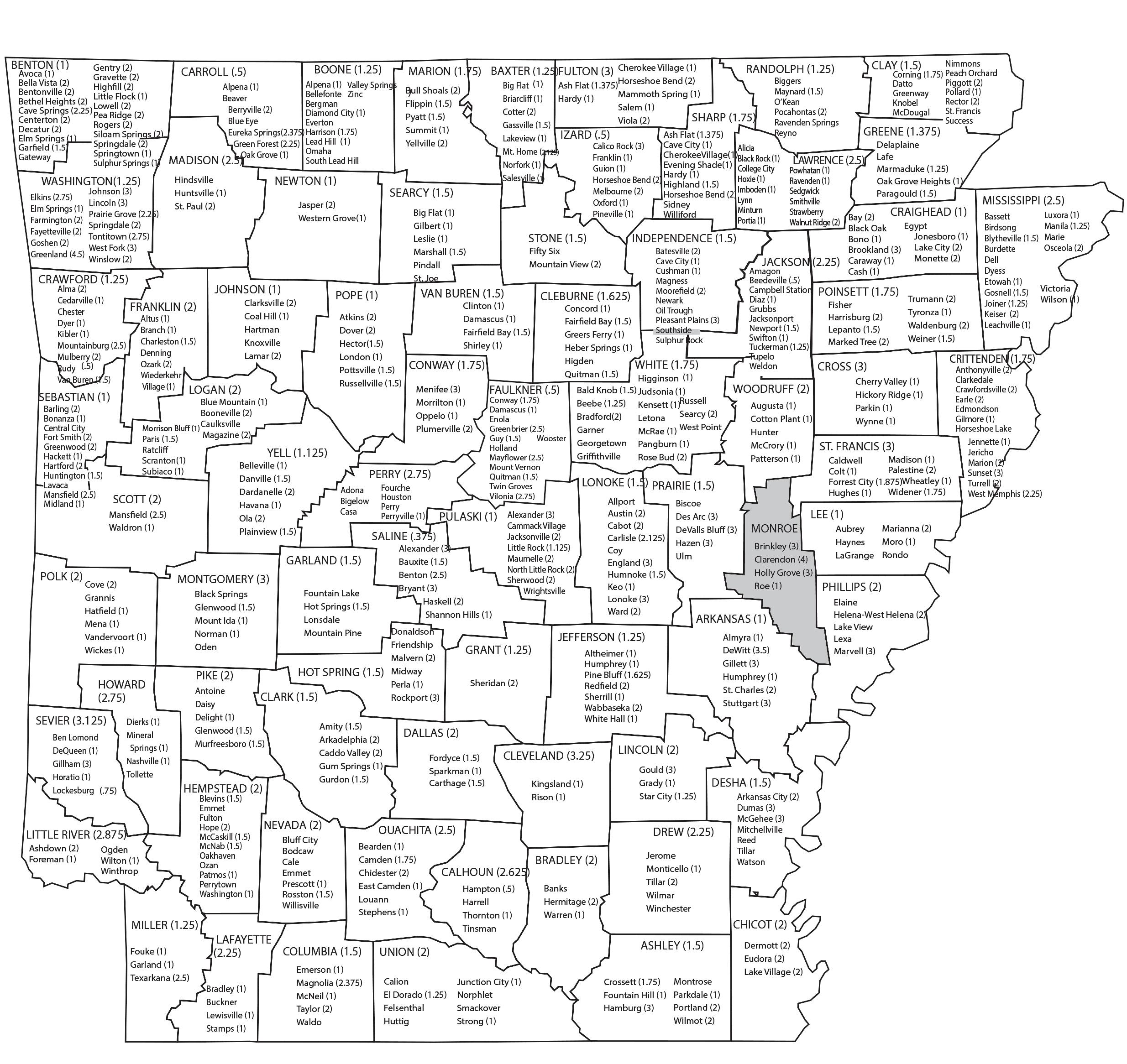
KEY: Counties not collecting sales tax
Source: Rachel Garrett, Office of State Treasurer See also: www.dfa.arkansas.gov
59
25
44
75
77
31
60
66
79
48
4,906 79
16
70
65
Hill 5,052 44
6,815 10
3,325 85
3,267,868 05 Corning 93,453 75 Cotter 20,001 89 Cotton Plant 3,817 41
21,541 71 Crawfordsville 11,914 69 Crossett 259,874 67 Cushman 3,500 54 Damascus 11,225 80 Danville 68,944 55 Dardanelle 207,070 74 Decatur 48,990 31 Delight 6,979 80 De Queen 176,951 47 Dermott 29,120 21 Des Arc 80,147 19 DeValls Bluff 23,646 41 DeWitt 214,287 69 Diamond City 3,902 35
4,338 05 Dierks 20,765 03
60,001 48
98
3,882 96
28,816 54
57
61
75
21
82
43
37
17
5,212 75
32
71
Mineral
Mineral
5,471 24
228,026 52
4,293 89
27,262 67 Mountain Home 1,272,476 25 Mountain View 252,972 64 Mountainburg 22,414 03
41,259 97
38,430 96
141,220 30
267,737 11 Norfork 9,125 46 Norman 5,234 21
Little Rock 4,008,517 26 Oak Grove 1,392 64 Oak Grove Heights 9,393 19
19,787 68
5,333 42 Osceola 317,802 07
4,182 13
214,530 17
41,519 46 Pangburn 9,719 30 Paragould 909,524 04 Paris 93,918 10
476 41
6,089 82 Patmos 125 89
1,090 50
Ridge 357,215 14
5,038 25 Perryville 27,652 53 Piggott 93,448 36 Pine Bluff 1,227,031 36 Pineville 2,496 19 Plainview 6,393 24 Pleasant Plains 24,458 20 Plumerville 14,528 08 Pocahontas 416,393 00 Pollard 2,765 46 Portia 5,900 10 Portland 19,001 56 Pottsville 55,375 77 Powhatan 603 26 Prairie Grove 261,081 10 Prescott 117,575 65
5,514 11
34,158 48
5,568 84 Rector 44,329 56
45,203 23 Rison 21,604 68 Rockport 36,795 03
Roe 899 24
Rogers 5,348,284 17
Rogers 4,815,052.62
Rose Bud 32,967 21
Rose Bud 33,406.57
Rosston 5,540 64
Rosston 3,605.56
Rudy 15,226 21
Rudy 14,343.20
Russellville 1,189,794 51
Russellville 1,397,368.13
Salem 24,545 92
Salem 26,453.27
Salesville 4,828 10
Salesville 4,495.67
Scranton 5,830 34
Scranton 5,013.48
Searcy 1,626,120 72
Searcy 1,120,048.76
Shannon Hills 19,984 27
Shannon Hills 16,443.33
Sheridan 339,979 27
Sheridan 328,492.42
Sherrill 757 23
Sherrill 732.93
Sherwood 1,297,305 95
Sherwood 1,250,593.22
Shirley 5,109 77
Shirley 5,840.81
Siloam Springs 1,040,114 69
Siloam Springs 1,044,161.74
Sparkman 4,742 80
Sparkman 5,077.54
Springdale 4,342,774 59
Springdale 4,128,423.71
Springtown 710 63
Springtown 337.87
St. Charles 2,462 55
St. Charles 1,616.87
St. Paul 4,041 49
St. Paul 5,260.95
Stamps 17,629 06
Stamps 16,016.03
Star City 63,740 31
Star City 64,408.05
Stephens 6,055 54
Stephens 6,254.15
Strong 10,371 58
Strong 11,186.32
Stuttgart 722,276 25
Stuttgart 693,418.09
Subiaco 9,427 55
Subiaco 7,885.42
Sulphur Springs 8,350 99
Sulphur Springs 7,594.77
Summit 6,639.90
6,688 10
9,724 72 Swifton 6,615 44 Taylor 13,075 86 Texarkana 558,311 57 Texarkana Special 253,836 46 Thornton 2,481 04 Tillar 4,029 37 Tontitown 573,085 41
Sunset 7,713.31
Swifton 6,003.84
Taylor 12,815.06
Texarkana 550,663.36
Texarkana Special 245,452.45
Thornton 1,576.55 Tillar NA
Fairs & Festivals

July 24-26, CAVE CITY, Cave City Watermelon Festival cavecitywatermelonfestival.com
August 5-9, TONTITOWN, Tontitown Grape Festival tontitowngrapefestival.com
August 8-9, HOT SPRINGS, 8th Hot Springs Baseball Weekend hotsprings.org/events/seventh-annual-baseball-weekend
August 22-23, MENA, Queen Wilhelmina Rod Run queenwilhelminarodrun.com
August 30, JACKSONVILLE, FestiVille in Jacksonville cityofjacksonville.net/270/FestiVille
August 31, HOT SPRINGS, Labor Day Weekend Fireworks hotsprings.org/events/labor-day-fireworks
September 21, LITTLE ROCK, 14th Downtown Food Truck Festival littlerock.com/events/annual-festivals-events/downtown-food-truck-festival
September 27, HARDY, 33rd Hardy Homesteaders Day
October 1-4, EUREKA SPRINGS, Bikes Blues & BBQ bikesbluesandbbq.org
October 4, PARIS, Frontier Day Festival parisarkansas.com
October 9-11, TRUMANN, Wild Duck Festival
October 10-11, YELLVILLE, 79th Yellville Turkey Trot yellvilleturkeytrot.com
October 12, PEA RIDGE, 36th Mule Jump pearidgemulejump.com



DOWNLOAD AND FIGHT THE OPIOID EPIDEMIC

SCAN ME



